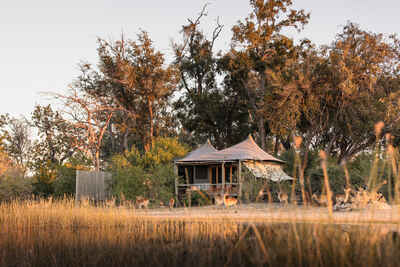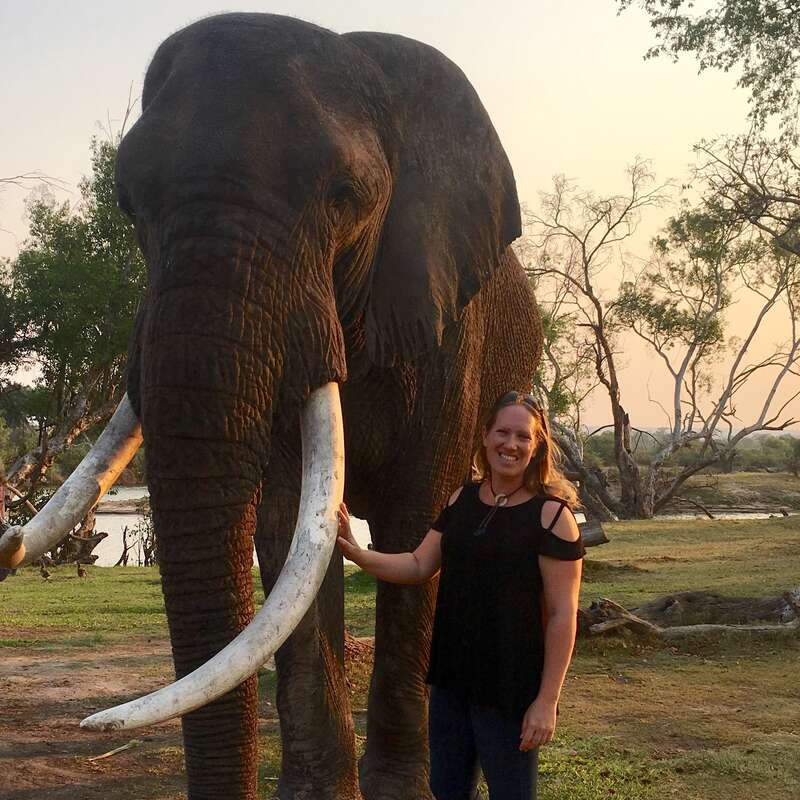About Little Vumbura
Little it may be, but this intimate lodge deep in the Okavango still packs quite a punch.
From its remote island hideaway, Little Vumbura looks out across the private Vumbura Reserve. With seasonal floodplains criss-crossed by permanent channels, and drier areas punctuated by tracts of woodland, this is an exceptionally varied area.
Key to its appeal is that diversity, which attracts a phenomenal range of wildlife – from big cats and wild dog to elephant and vast herds of buffalo.
It also opens the door for land and water activities, be it a gentle paddle in a mokoro or a leisurely motorboat trip, a guided walk or a full-on 4WD game drive. And if that's not enough, consider fishing, or even a scenic helicopter flight.
Back at camp, lofty roofs rising up from tented structures are redolent of a circus big top – while enhancing the feeling of light and space. Shades of blue and sun yellow define the lounge, the blues echoed in the ceramic basins of each smart but comfortable chalet.
Rouse yourself from your private deck, help yourself to a drink and cool off in the plunge pool – or head for the library
Our view
We've been visiting Little Vumbura for many years now and it's long been a favourite. The camp is very comfortable, and we've had some very good guides and generally good food. But what really stands out is the Vumbura Reserve. Not only is it an exceptionally pretty area – and thus a great backdrop for photography – but it also offers fantastic mokoro and boat trips, as well as game drives that deliver regular, good and varied game viewing.
Accommodation
6 tented chalets
Children
Best for aged 13+
Open
All year
Activities

4WD Safari

Birdwatching

Boat trip

Fishing

Guided walking safari

Helicopter

Mokoro

Private activities
Traveller reviews of Little Vumbura
139 real, un-edited reviews from Expert Africa's travellers.
Arrived 1 May 2025, 2 nights
"Little Vumbura A totally great experience"
Overall rating: Excellent
Arrived 1 Nov 2023, 3 nights
"Little Vumbura review"
Overall rating: Excellent
Arrived 12 Oct 2023, 3 nights
"Little Vumbura review"
Overall rating: Excellent
Arrived 23 Sep 2023, 3 nights
"Magical"
Overall rating: Excellent
Arrived 16 Sep 2023, 3 nights
"A comfortable but slightly jaded camp"
Overall rating: Good
Arrived 16 Aug 2023, 3 nights
"Little Vumbura review"
Overall rating: Excellent
Arrived 11 Aug 2023, 3 nights
"Little Vumbura review"
Overall rating: Excellent
Arrived 9 Nov 2022, 3 nights
"Little Vumbura review"
Overall rating: Excellent
Arrived 9 Nov 2022, 3 nights
"Little Vumbura review"
Overall rating: Excellent
Arrived 26 Sep 2022, 4 nights
"Little Vumbura review"
Overall rating: Excellent
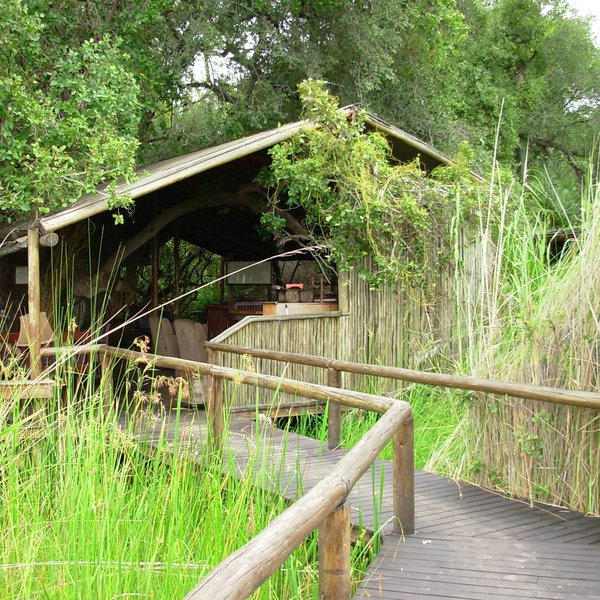
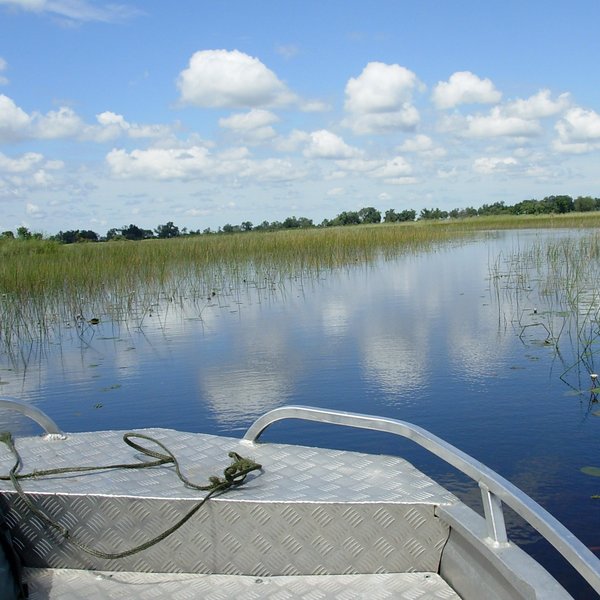
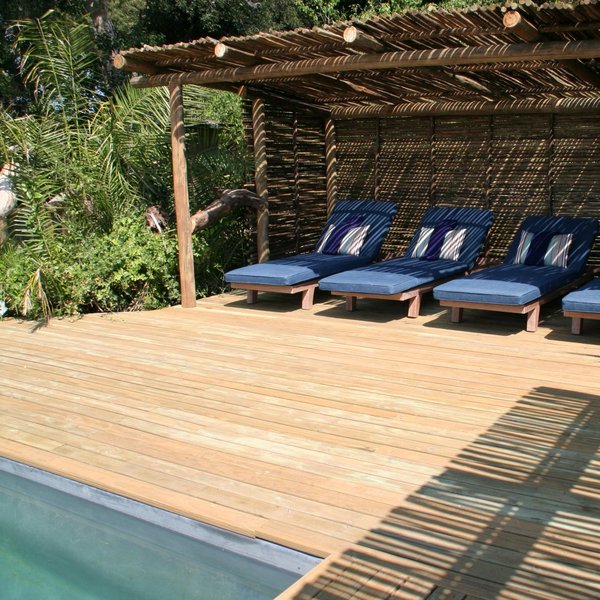
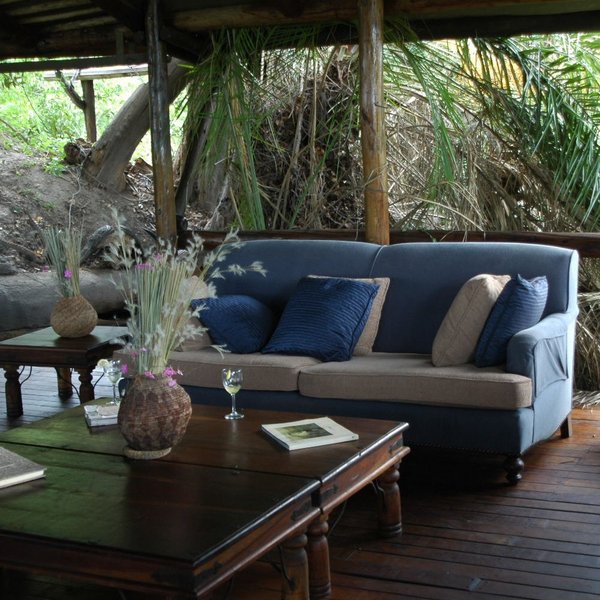
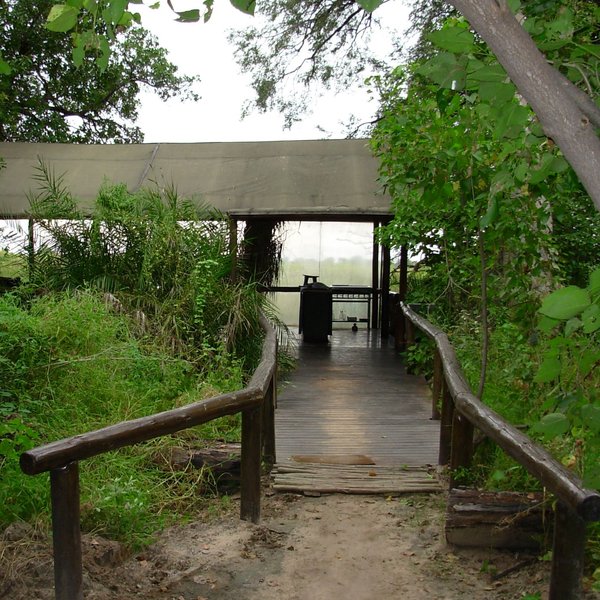
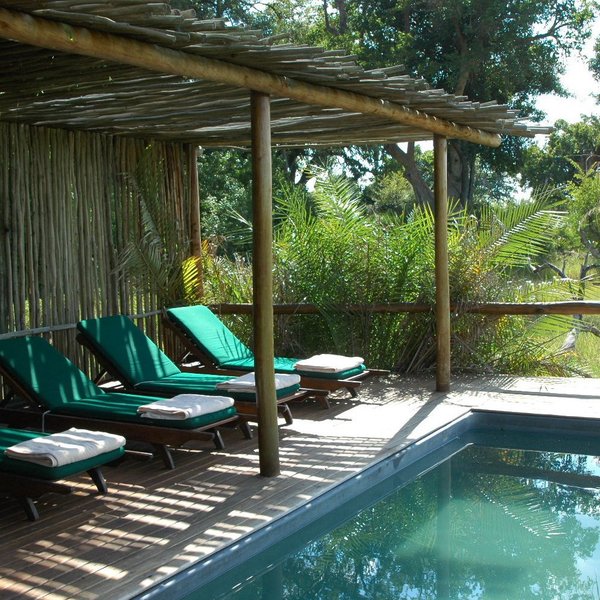
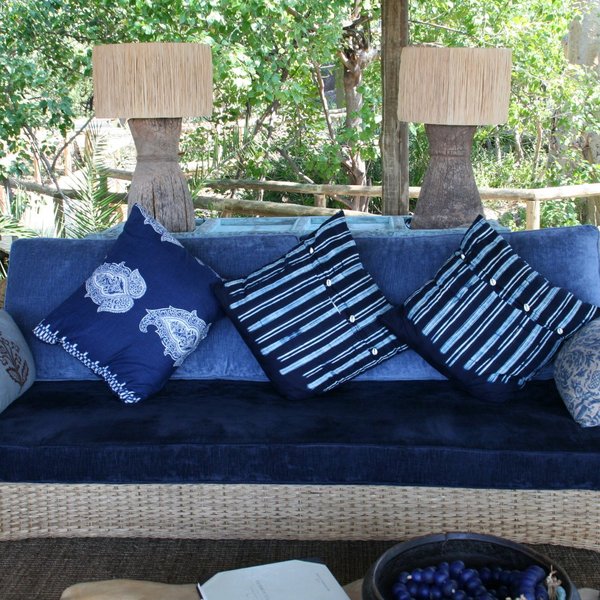
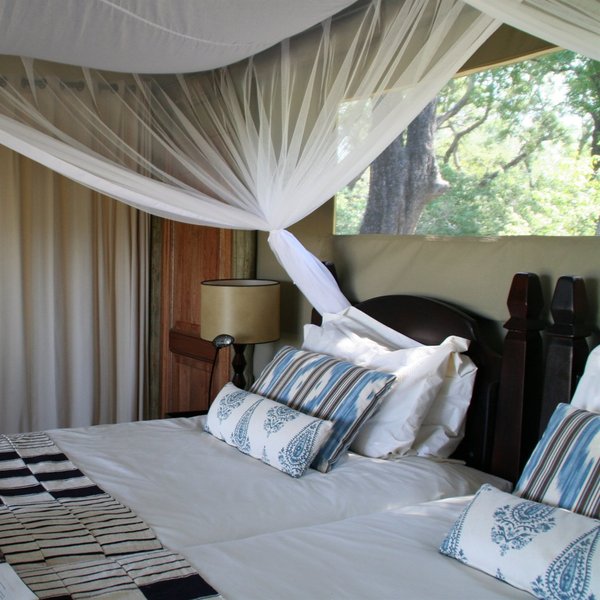
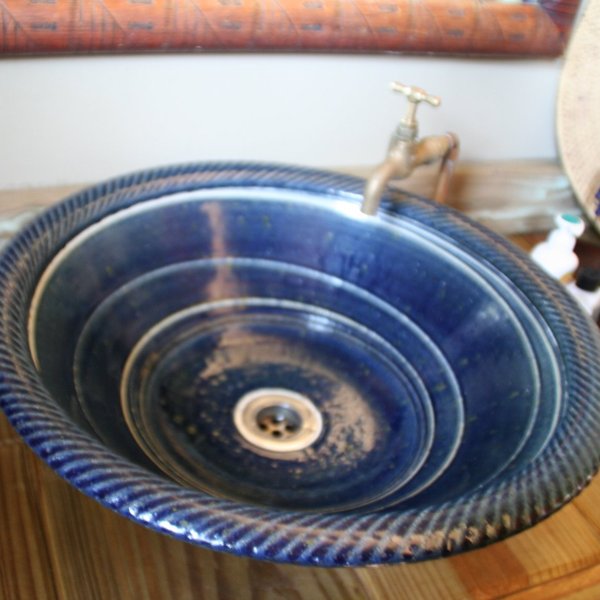
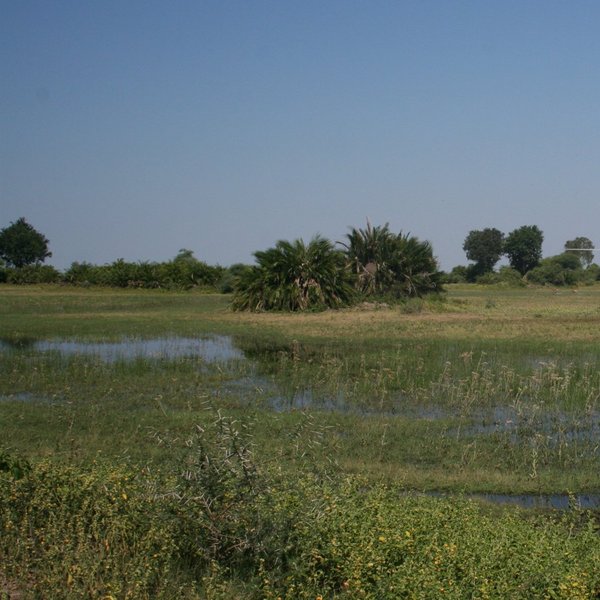
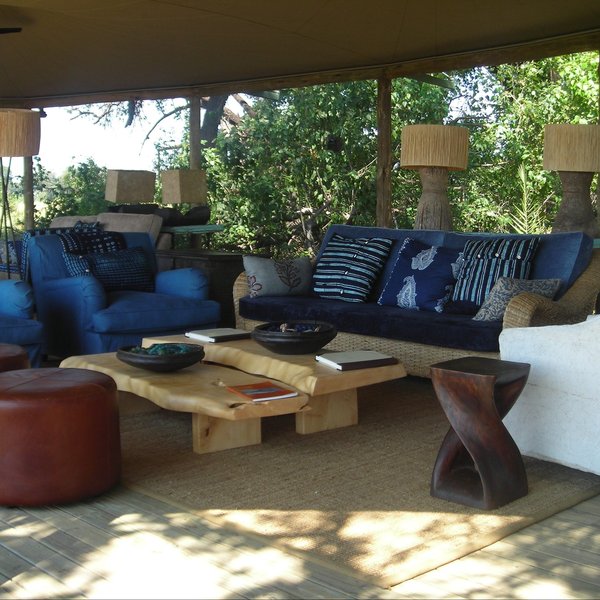
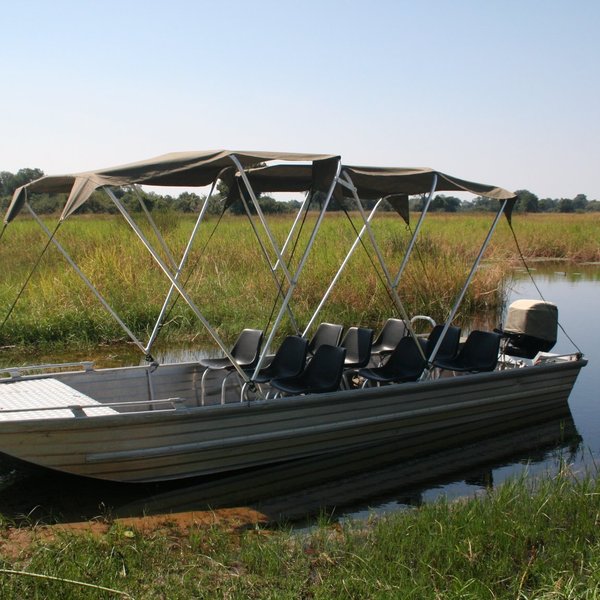
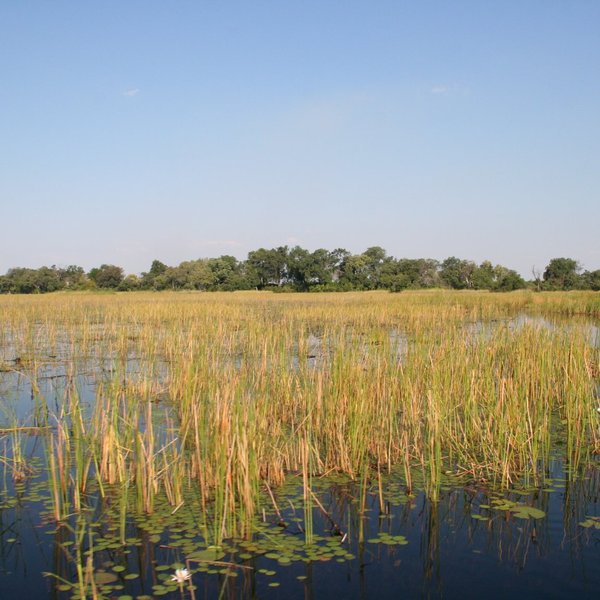
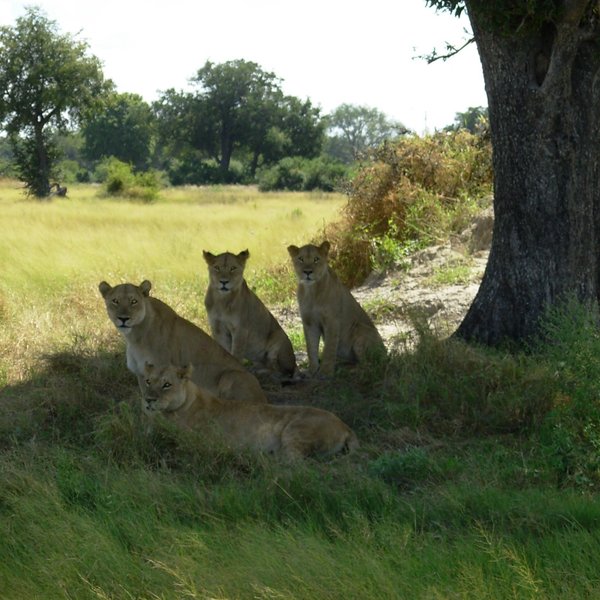
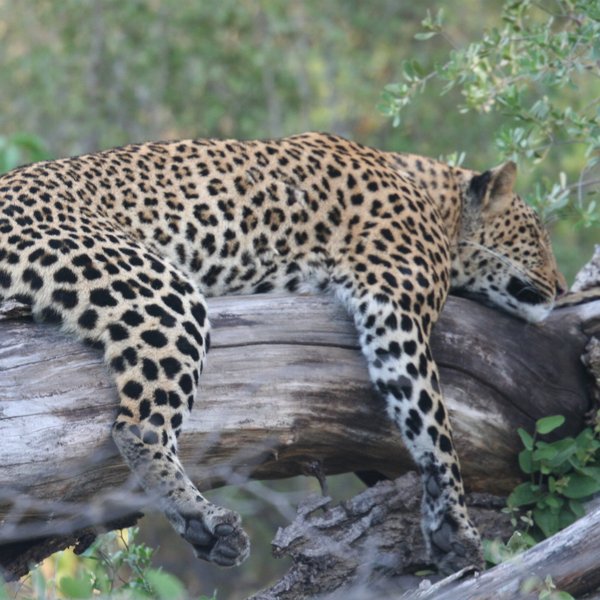
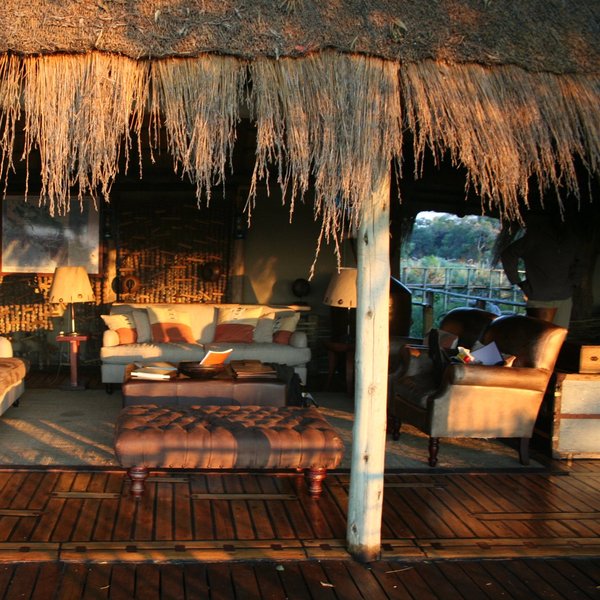
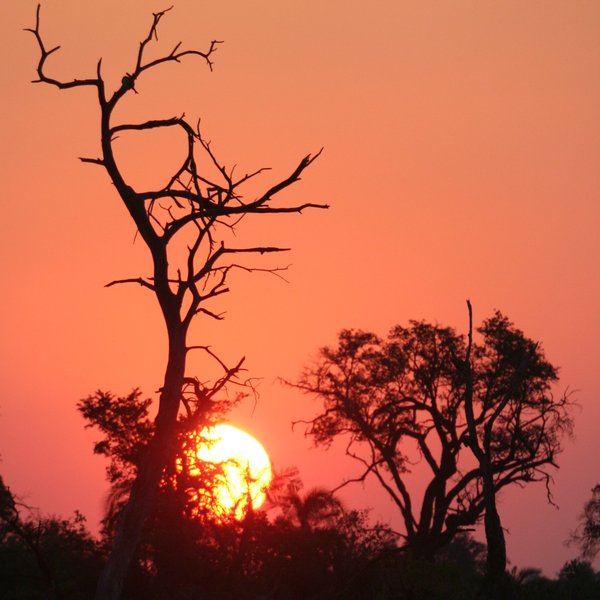
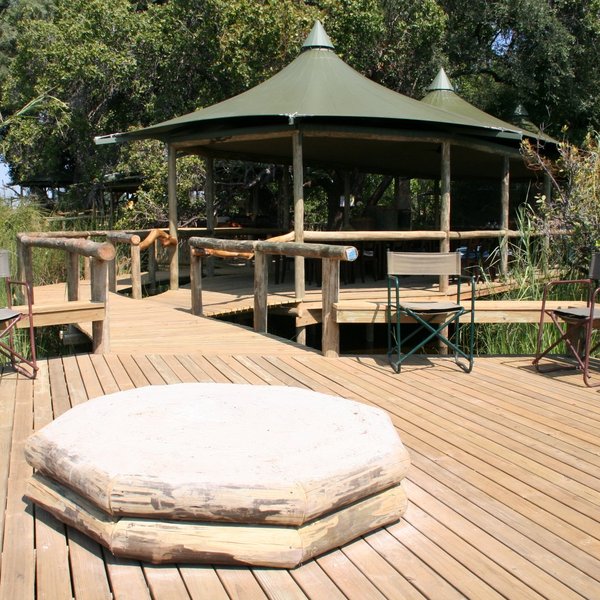
Expert Africa's gallery
When we travel we take lots of photos ourselves to give you a real and un-edited view of the safaris. See our 47 pictures of Little Vumbura to get the candid view.
View gallerySafaris visiting Little Vumbura
Just ideas, we'll always tailor-make a trip for you
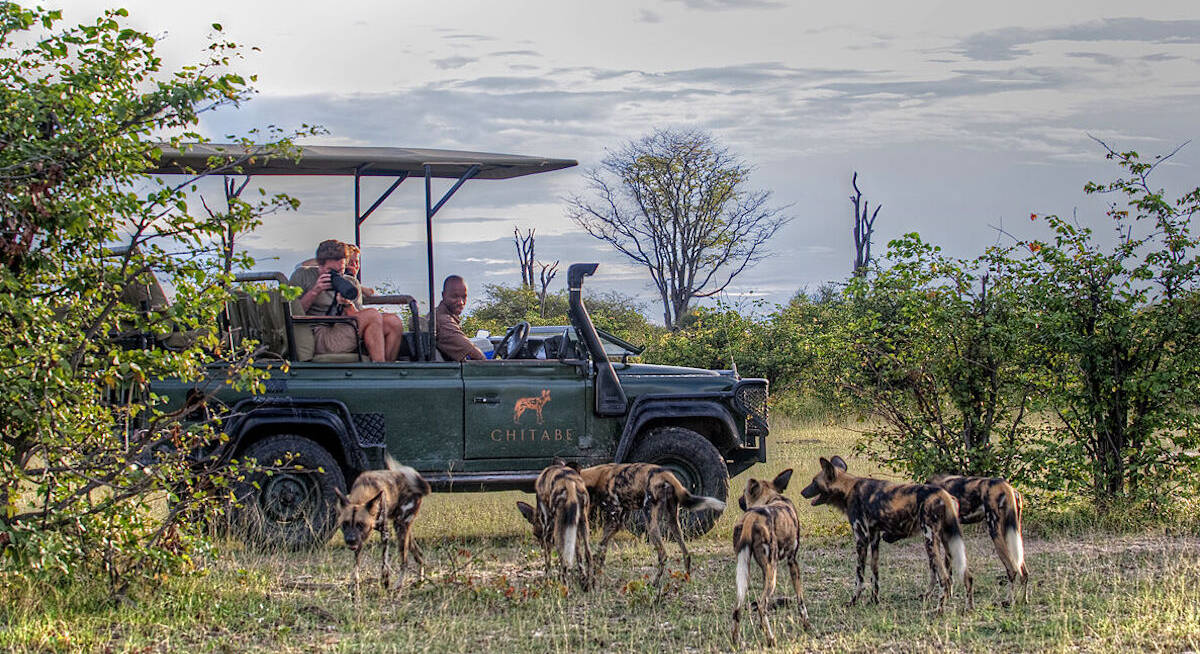

Bushbuck Safari
8 days • 3 locations • 1 country
MAUN AIRPORT TO MAUN AIRPORT
Discover three of Botswana’s best game-viewing regions with stays in the private Linyanti, Chitabe and Vumbura reserves. Intimate, smart camps offer a range of activities by which to discover these stunningly varied habitats.
Visiting Okavango Delta, Kwando-Linyanti
US$18,020 - US$31,740 per person
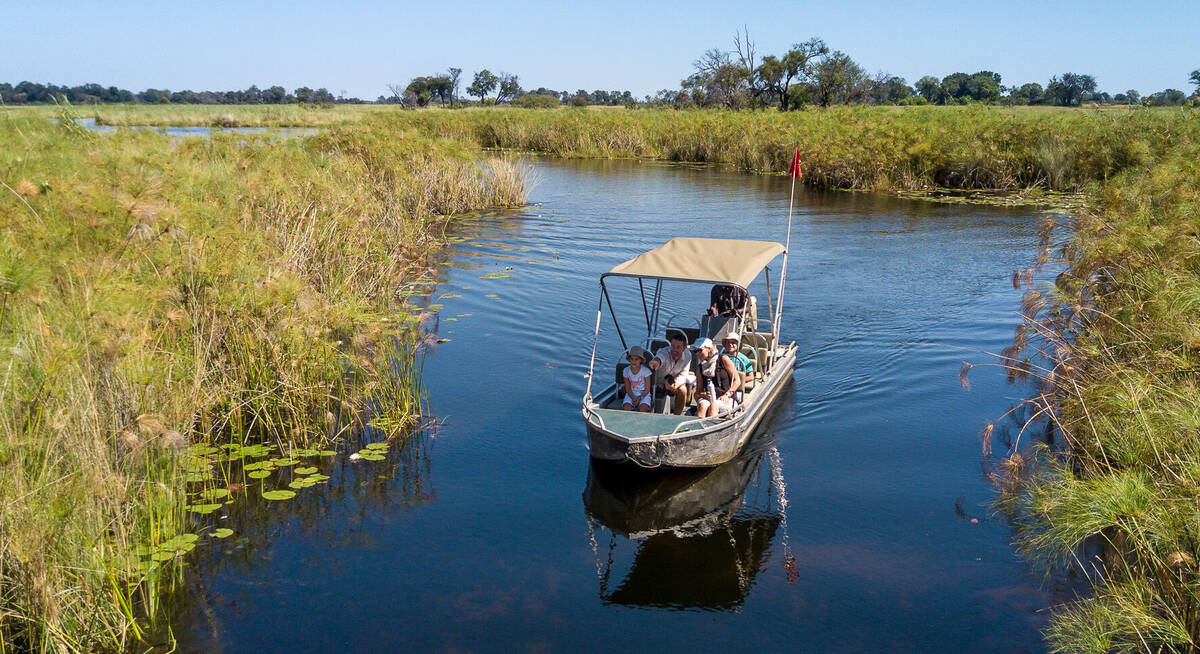
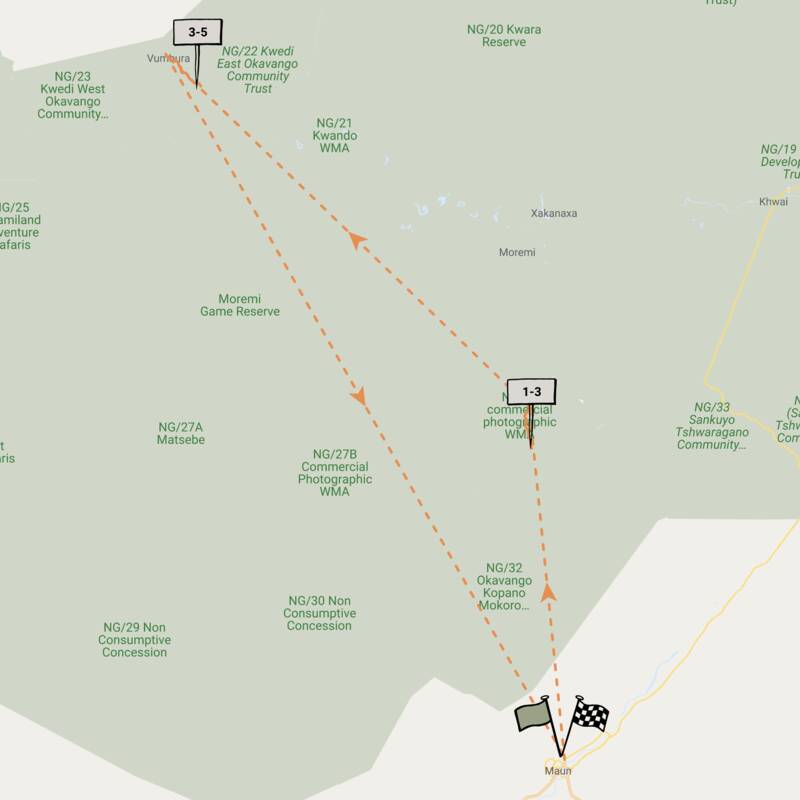
Slaty Egret Safari
4 days • 2 locations • 1 country
MAUN AIRPORT TO MAUN AIRPORT
Two luxurious, intimate camps provide a highly personalised exploration of the Chitabe concession and private Vumbura reserve within the Okavango Delta. A range of water and land activities allows for stunning sightings.
Visiting Okavango Delta
US$7,920 - US$14,550 per person
Little Vumbura: Our full report
Intimate, remote but eminently comfortable, Little Vumbura is built on a secluded island in the private Vumbura Reserve.
The camp is surrounded by water, both permanent deep channels and seasonal shallower floodplains, with access to good tracts of dry open plains, woodland and riverine forests. It's an interesting reserve, with a particularly diverse set of environments within easy reach of the camp, and a high density of game.
Sharing the reserve with Little Vumbura is its larger and more opulent sister camp, Vumbura Plains.
After the short boat to the island, guests disembark onto an innovative floating jetty (made of large, hollow, plastic cubes pieced together like a jigsaw puzzle), which leads to Little Vumbura's open-sided main areas. Here, tall, circular tented roofs enhance the cool and spacious feel, though there are roll-down canvas blinds in case of inclement weather.
The lounge is decorated in vibrant tones of blue and yellow to complement the water setting, which we thought was an attractive departure from the traditional safari khaki. A couple of very comfortable sofas, along with armchairs and coffee tables, are arranged to maximise the views over the water.
A little more secluded is the small library area, which feels rather like a tree house built around a vacant termite mound. Furnished with a couple of armchairs, it has a good selection of reference books and wildlife magazines. A few steps away, a short wooden walkway brings you to the launching area for mokoro (a traditional dug-out canoe) activities.
To the other side is the dining area, with a very long wooden dining room table (which can be broken into smaller tables for individual dining), and a wooden buffet counter. You'll also find a well-stocked bar with a relaxed help-yourself approach and a tea and coffee station, where hot water is available throughout the day.
Along another short walkway is the star deck and firepit, which juts out over the water. It's a great spot to retire after dinner, especially when the fire is roaring on a cool evening. Set back is a small secluded plunge pool, whose decked area is topped with comfortable sunloungers and a large sunbed under a shaded canopy.
Little Vumbura also has a curio shop with a wide selection of products, including wildlife reference books, postcards, their in-house range of Earth skincare products, safari shirts, fleeces and hats, and locally made baskets, children's toys and jewellery.
Wooden walkways, slightly raised to allow for fluctuations in water levels of the Delta, lead from the central area to the six tented chalets - including a family tent with two en-suite bedrooms and an interleading door, and a honeymoon tent. All are very comfortable. Pale timber floorboards, floor-to-ceiling mesh windows and circus-top style canvas roofs lend an air of space and light.
The tents are furnished with the usual double or twin beds – with mosquito nets – and a fan connected to the headboard. Inside are a comfortable sofa and coffee table, with a writing desk and chair. Out on the small private deck, a pair of canvas-backed chairs enjoy a view of the lagoon. There is an en-suite shower room, and a separate toilet. We particularly liked the beautiful blue ceramic his and hers basins on the washstand.
The honeymoon tent has exactly the same furnishings as the other tented chalets, but with the addition of an outdoor bathtub on the private deck, with views over the floodplains.
Activities at Little Vumbura are varied, with both water and dry-land excursions. Deep-water channels allow for motorboat trips, while shallow channels enable excursions by mokoro. Morning and afternoon safaris by 4WD are very rewarding in the Vumbura Reserve, too. It is important to note, though, that due to the boat access the camp does not offer night drives, which can restrict afternoon explorations.
In our view, the private Vumbura concession is one of the best areas for game in the Okavango Delta, and we've had excellent sightings over the years of lion, leopard, cheetah and wild dog. On our most recent stay in January 2024 the game viewing was phenomenal! Highlights included three wild dog sightings, one with a leopard in the same sighting, along with numerous herds of sable antelope, a vast herd of buffalo, two prides of lions with cubs and a very memorable herd of elephant having a mud wallow. Top of the bill was a mother sitatunga antelope and her little fawn, something our guide had not seen in six years of working in the Vumbura Reserve.
Our afternoon motorboat safari was very scenic, rewarding us with a Pels fishing owl at a nest, numerous African swamphens and a close encounter with a large crocodile sunning itself.
On one visit a member of the Expert Africa team also spent a fantastic afternoon fishing on the local waterways. Bream and African pike are abundant and a spot of catch-and-release fishing with your guide is a really great way to unwind and relax. Guided walks can also be arranged on request, although for safety reasons these are at the discretion of the managers and should be requested in advance of your stay. At an additional cost, scenic helicopter flights are also available.
Activities
4WD Safari
Birdwatching
Boat trip
Fishing
Guided walking safari
Helicopter
Mokoro
Private activities
Families & children
- Attitude towards children
- Children over 12 are welcome at Little Vumbura. The camp may accept children aged 6–12, but private activities must be booked, and these will be at an extra cost. Children younger than six may be accepted by special arrangement, but only if the entire camp is reserved for exclusive use.
- Property’s age restrictions
- Note that minimum age requirements also mean that children are allowed on boat trips from the age of six years, but on mokoro trips only from the age of 13 years.
- Special activities & services
- Little Vumbura has a complimentary “Bush Buddies” programme, whereby a dedicated member of staff is allocated to families with children. This option needs to be requested in advance, prior to arrival. Each child is given a safari bag filled with items such as a bug viewer, a safari guide booklet, water bottle, cap and torch. Activities, variously entertaining and educational, may include arts and crafts, short nature walks around the camp, tracking lessons, bird and animal call identification, treasure hunts, baking biscuits and cooking lessons in the bush (for example, pizza-making in termite mounds), as well as dancing and drumming, star-gazing and storytelling.
The camp will also arrange separate mealtimes and menus for families with young children. - Equipment
- No special equipment is available, but there is a two-bedroom chalet with an interior inter-leading door that is suitable for families. Both bedrooms are en-suite.
- Generally recommended for children
- We would recommend Little Vumbura for more mature children aged 13 years or older, because noise travels in this small camp and it is in very close proximity to deep water.
- Notes
- Little Vumbura is unfenced, and wildlife is known to wander through the camp on a regular basis. The pool is unfenced, too, and the camp is often completely surrounded by water. Children must be under the constant supervision of their parents or guardians.
Food & drink
- Usual board basis
- Full Board & Activities
- Food quality
- Over many years, we have very much enjoyed the food at Little Vumbura, and on our latest visit, in January 2024, all the dishes were delicious. As far as possible, ingredients are locally sourced. With advance notice, the camp can cater for vegetarian and many other dietary requirements.
The day usually starts with a light breakfast of toast, fruit, cold meats and cereal, along with tea and coffee, served prior to your early-morning game activity.
Brunch, including a hot option, is offered after the morning activity. On our most recent visit, although we arrived late, we were served a delicious meal of lamb kebabs, chickpea and green bean salad with feta, couscous with mixed fresh herbs and tomatoes, and a zesty lime and basil rice salad.
Afternoon tea, at around 4.00pm, usually combines a savory snack, like homemade sausage rolls, with something sweet such as fresh doughnuts and a fruit salad. These are served with fruit juice, hot and iced teas and coffees.
Dinner is usually a plated starter with a buffet for the main course. We had a delicious butternut soup to start. This was followed by a variety of dishes which included vegetarian lasagne, grilled chicken, a green salad and caramelised carrots. Dessert was crème brulé. All the dishes were delicious.
On previous trips our team have enjoyed a traditional meal of braaied (grilled on an open flame) lamb chops, oxtail stew, bean casserole, chickpea tagine and grilled fish, with cauliflower, green beans, stuffed gem squash and salad. - Dining style
- Group Meals
- Dining locations
- Indoor and Outdoor Dining
- Further dining info, including room service
- Breakfast and lunch are usually group meals, with individual tables set up according to passengers in each game vehicle for brunch. Private dining can be arranged.
- Drinks included
- Bottled water, soft drinks, local beers and spirits and a limited selection of (usually) South African red and white wines are included. Champagne and imported wines and spirits will cost extra and may need to be requested in advance.
Guests are given an aluminium water bottle on arrival which they are encouraged to top up with cold water in the camp's main area during their stay.
Our travellers’ wildlife sightings from Little Vumbura
Since mid-2018, many of our travellers who stayed at Little Vumbura have kindly recorded their wildlife sightings and shared them with us. The results are below. Click an animal to see more, and here to see more on our methodology.

100% success

100% success

100% success

96% success

93% success

75% success

71% success

71% success

70% success

52% success

27% success

24% success

8% success

4% success

4% success

0% success

0% success

0% success
Getting there
- Location
- Okavango Delta Safari Reserves, Botswana
- Ideal length of stay
- We recommend three or four nights at Little Vumbura.
- Directions
- Vumbura Airstrip is a 40-minute light aircraft flight from Maun. Depending on water levels, the journey to camp is usually a 45-minute game drive followed by a boat transfer of between five and 25 minutes.
- Accessible by
- Fly-and-Transfer
Special interests
- Birdwatching safaris
- Little Vumbura is a first-rate camp for birdwatching in Botswana. From shallow and deepwater floodplains and channels to dense, shady woodlands, our sightings have included swallowtail bee-eaters, Pels fishing owls, white-backed ducks, brown firefinches, slaty egret and rufus-bellied herons.
- See ideas for Birdwatching safaris in Botswana
- Wildlife safaris
- Little Vumbura offers some of the best wildlife safaris in Botswana. It's in one of the Okavango's prime game areas, with a real depth and range to the wildlife. In our last few visits here, we have had good sightings of lion, leopard, and wild dog – as well as sable antelope.
- See ideas for Wildlife safaris in Botswana
Sustainability
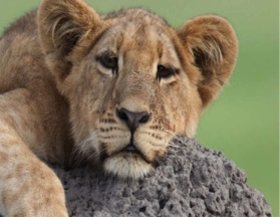
The Botswana Lion Genetics Project
Wildlife at Little Vumbura is flooded with predators including the African wild dog, as well as leopard, cheetah and African wildcat. However, the well-known prides of lion are the most popular among guests and photographers alike. However, to ensure the protection and conservation of the species, Little Vumbura contributes to a study on Botswana Lion Genetics initiated by Wilderness Trust.
The purpose of the project is to research the past and present genetic structure of the lion population centred in Botswana’s Okavango Delta in order to predict and mitigate future harmful scenarios.
In addition, the project aims to identify possible genetical threats that may have occurred as a consequence of habitat loss, changes in the eco-system or migration.
During the first stage of the project, samples from within the Delta were collected using biopsy darts and each lion was darted and photographed. Later in the process, with the Trust funded laboratory equipment that allowed researchers to compare the samples against 100-year-old historical data gathered from museum material (Natural History Museum, London) and ancient DNA techniques generating a historic estimate of genetic diversity to compare to the current population.
Results show that despite having an estimated population of 1 500 lions in the Okavango Delta, untenable inbreeding risks the long term sustainability of the population. Therefore, proper conservation management is required to sustain the continuity of this species.
See more great sustainability projects in Botswana
Communications
- Power supply notes
- The camp uses a generator and inverter system. The generator is run during the day and batteries are charged for lights, fans, etc in the evening. Each room has a plug for charging batteries, although an adaptor will be required. Note that hairdryers draw too much power and cannot be used.
- Communications
- WiFi is provided in the chalets only, but there is no cellphone reception, no direct phone and no email. Communication is maintained with the head office in Maun via radio.
- TV & radio
- There is no TV or radio.
- Water supply
- Other
- Water supply notes
- Water is sourced from the Delta and is treated by reverse osmosis. All the chalets have running hot and cold water, with a flushing toilet.
Health & safety
- Malarial protection recommended
- Yes
- Medical care
- The nearest doctor is in Maun. All management and guides are first-aid trained and medical evacuation is available in case of emergency. There is a nurse on call (via radio) 24 hours a day. Please note that it is only possible to fly out of camp during daylight hours as the bush airstrips do not have any lighting at night.
- Dangerous animals
- High Risk
- Security measures
- Guests are escorted to their rooms after dark as the camp is unfenced and dangerous wildlife is known to wander through. A thorough safety briefing is given on arrival. “Fog horns” are provided in the chalets to attract attention in case of emergency.
- Fire safety
- There are fire extinguishers at all the tents and in the main area.
Useful info
- Disabled access
- On Request
- Laundry facilities
- A laundry service is included. Laundry is collected in the morning and usually returned the same day, weather permitting. For cultural reasons and because the clothing is generally hand washed, the staff do not wash underwear. Detergent is provided in each chalet for guests who wish to do hand washing.
- Money
- No exchange facilities are offered. There is a small safe in each chalet, and a larger one in the office.
- Accepted payment on location
- Mastercard and Visa credit cards are accepted; Diners and Amex are not. Cash in the form of South African rand, GB sterling, US dollars, euros and Botswana pula is accepted.
Plan and book your trip with Expert Africa
All of our trips are tailor-made, so we'll always adapt them to suit you. Talk to an Expert and let us plan and arrange your perfect trip.

Talk to an Expert
Call or email us now! We’ll match you with the Specialist in our team who is best suited to help you. Then together we can start planning your trip.

Set up your itinerary
Based on our experience and your ideas, your specialist will create a detailed, costed itinerary. We’ll refine it together, until we have a trip that you’re perfectly happy with.

Prepare for your trip
The same Specialist will make the seamless arrangements for your trip, send you detailed travel documents, and be available to answer any questions before you depart.

Travel with peace of mind
After you set off, you’ll be cared for by our partners in Africa, most of whom have worked with Expert Africa for decades. And if you ever need us urgently, we’re available 24/7.

When you return
We love to learn about your trip, and so will always be grateful if you’ve the time to give feedback to your Specialist when you return.
Little Vumbura's location
Look closer at the environment and surroundings of Little Vumbura.
Excursions from Little Vumbura
Optional extra day-trips and excursions possible whilst you're staying at Little Vumbura. Talk to us: these are usually best arranged before you go.
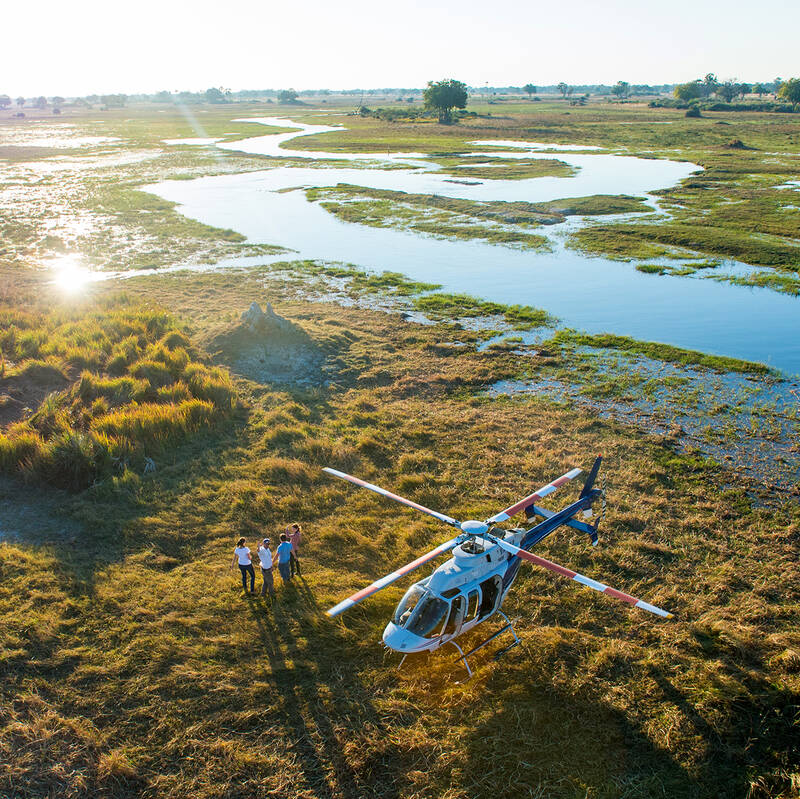
Helicopter Flight - Botswana
Various: from 30 minutes to half a day.
Low-flying, agile and offering superb views, helicopters are an ideal way to move around the Okavango Delta.You can use them instead of fixed-wing inter-lodge transfers or as an addition to other wildlife watching activities, and of course, helicopters can hover to allow that perfect pic, whereas fixed-wings can’t.
More about Helicopter FlightOther lodges in Okavango Delta Safari Reserves
Alternative places to stay in this same area.
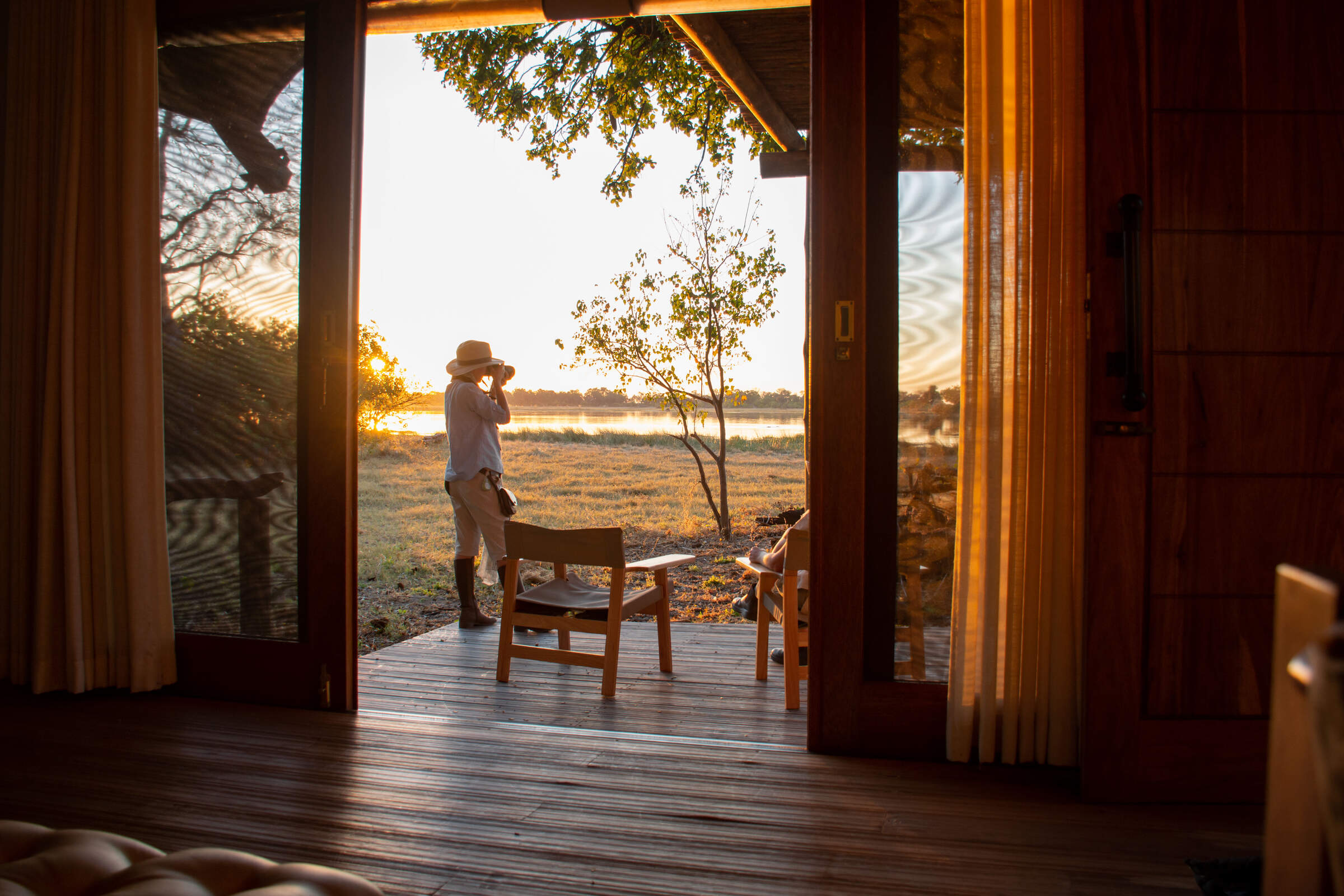
Kwara Camp
Kwara Camp's private reserve boasts land and water activities year-round, with excellent game-viewing opportunities and access to permanent channels of the north-east Okavango Delta.
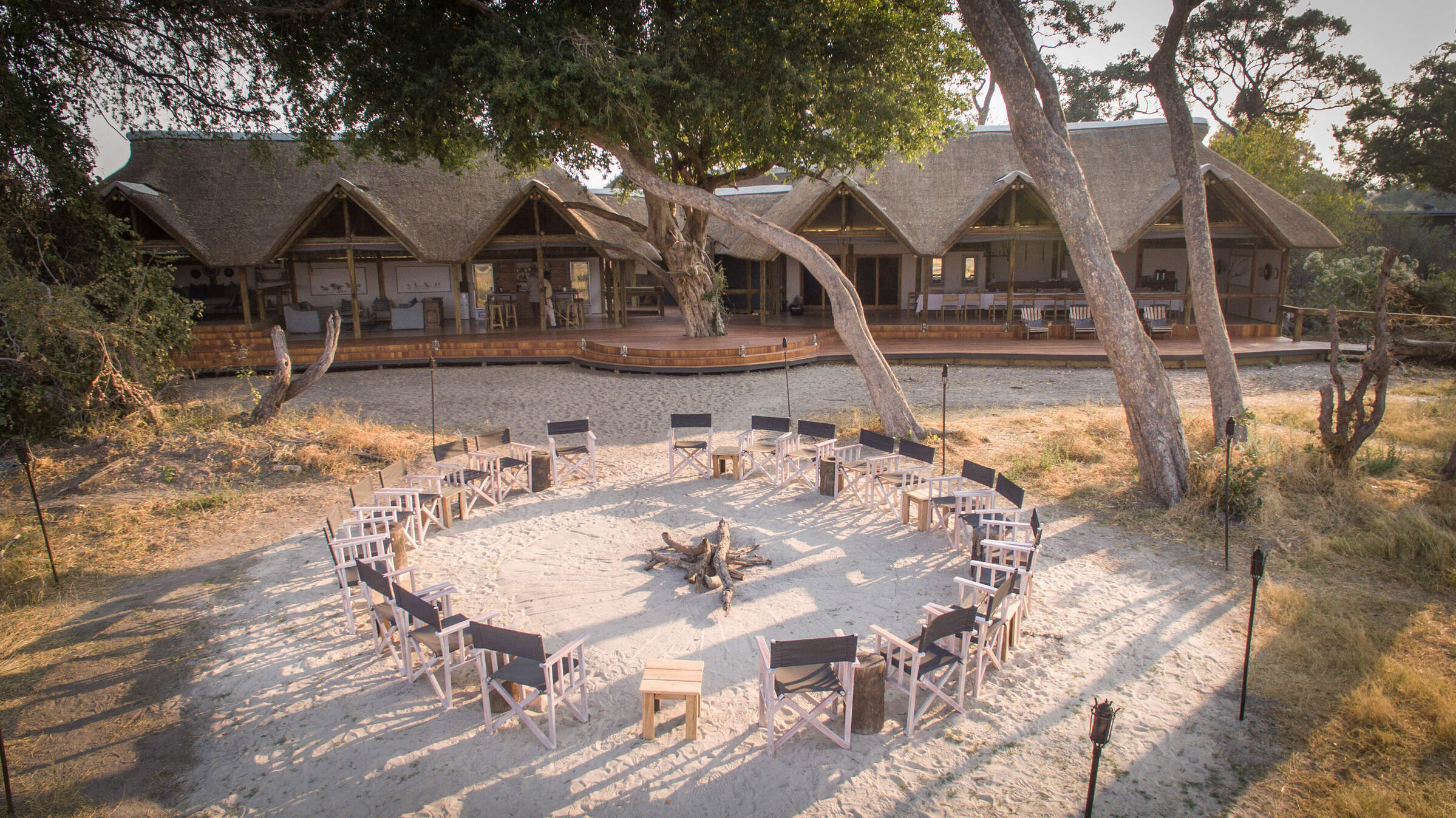
Splash Camp
Set in the Kwara Reserve, offering superb wildlife viewing year-round, Splash offers both land and water activities led by guides with a particular knack for tracking big game.
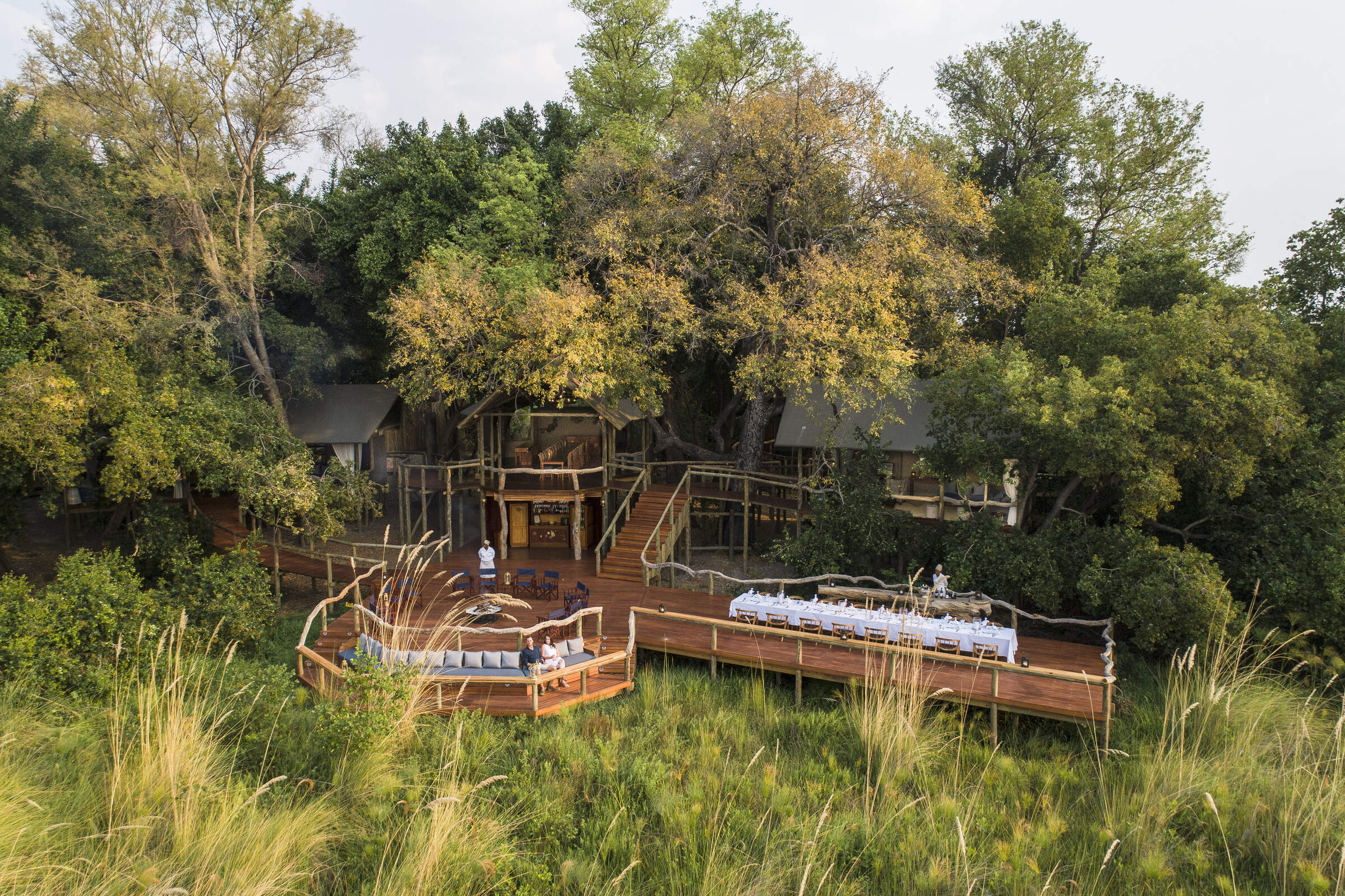
Shinde Camp
With experienced staff and a wealth of activities, Shinde offers a traditional safari in an exceptionally varied and wildlife-rich environment.
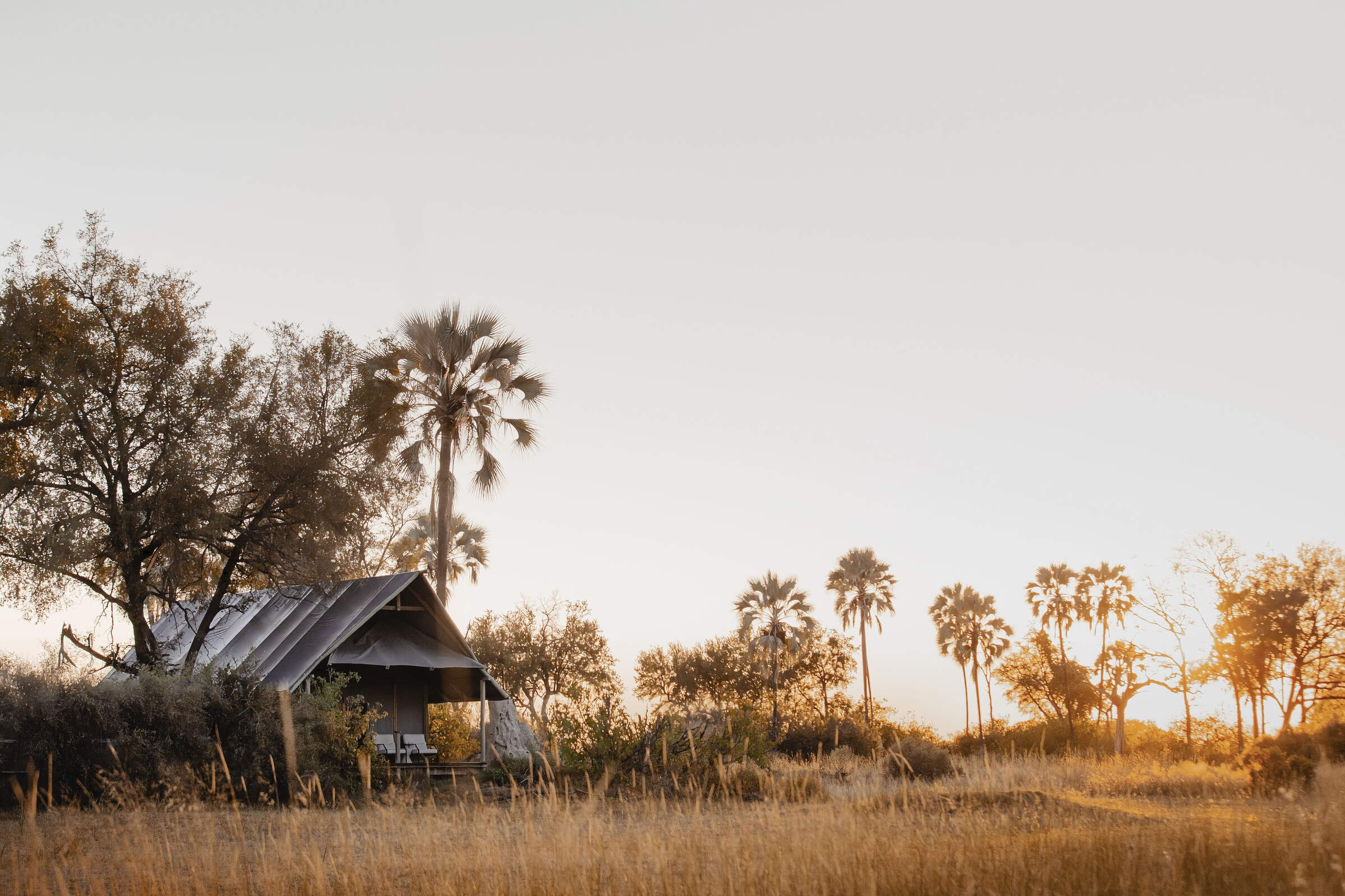
Chitabe Lediba
Chitabe Lediba, in Botswana's southern Okavango Delta, is a small family friendly safari camp; it offers great dry-land safaris and in our experience consistently delivers good game sightings.
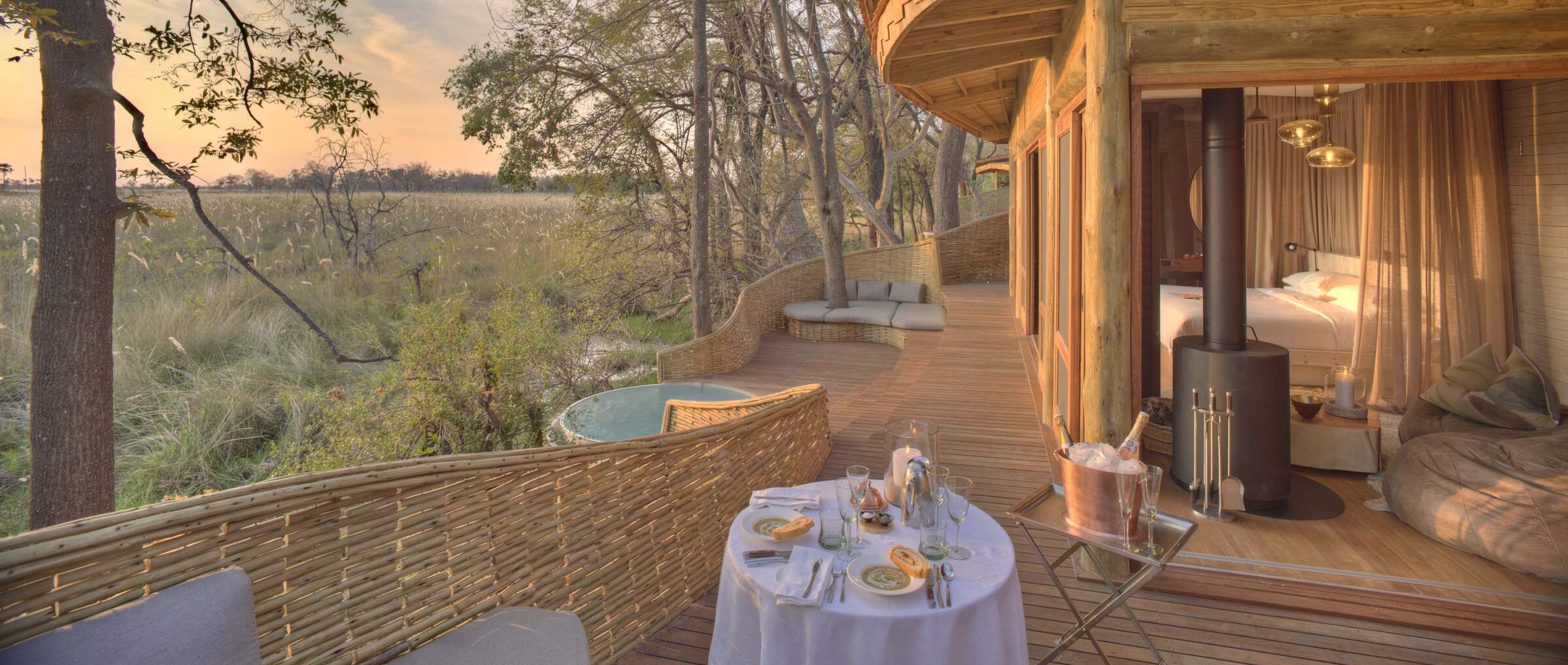
Sandibe Safari Lodge
The luxurious Sandibe Okavango Safari Lodge lies in a private concession in the heart of the Okavango Delta, beside Moremi Game Reserve, with superb big-game viewing.
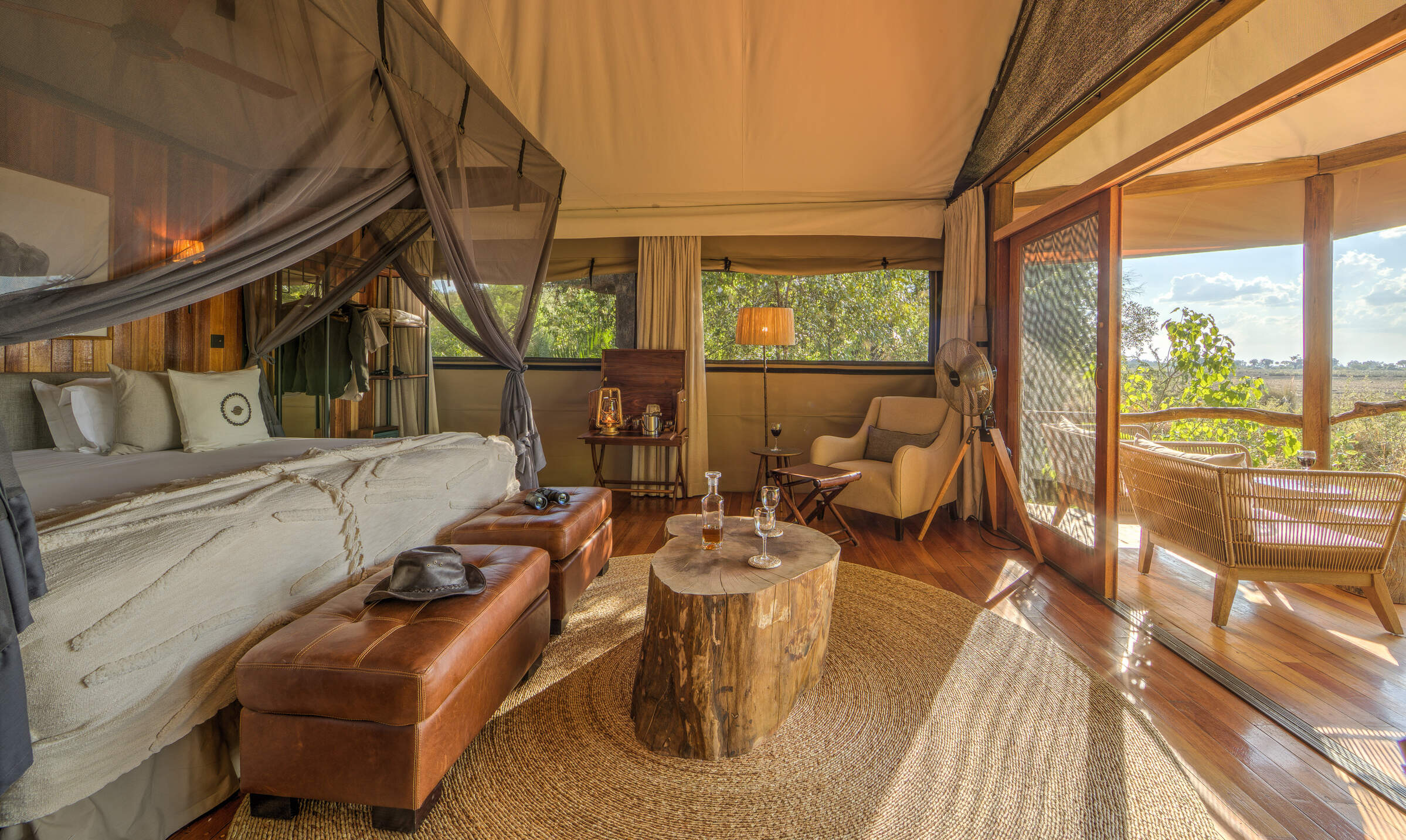
Kanana
In a beautiful part of the Delta, Kanana focuses on fantastic water activities and birding – including exclusive access to an impressive heronry.
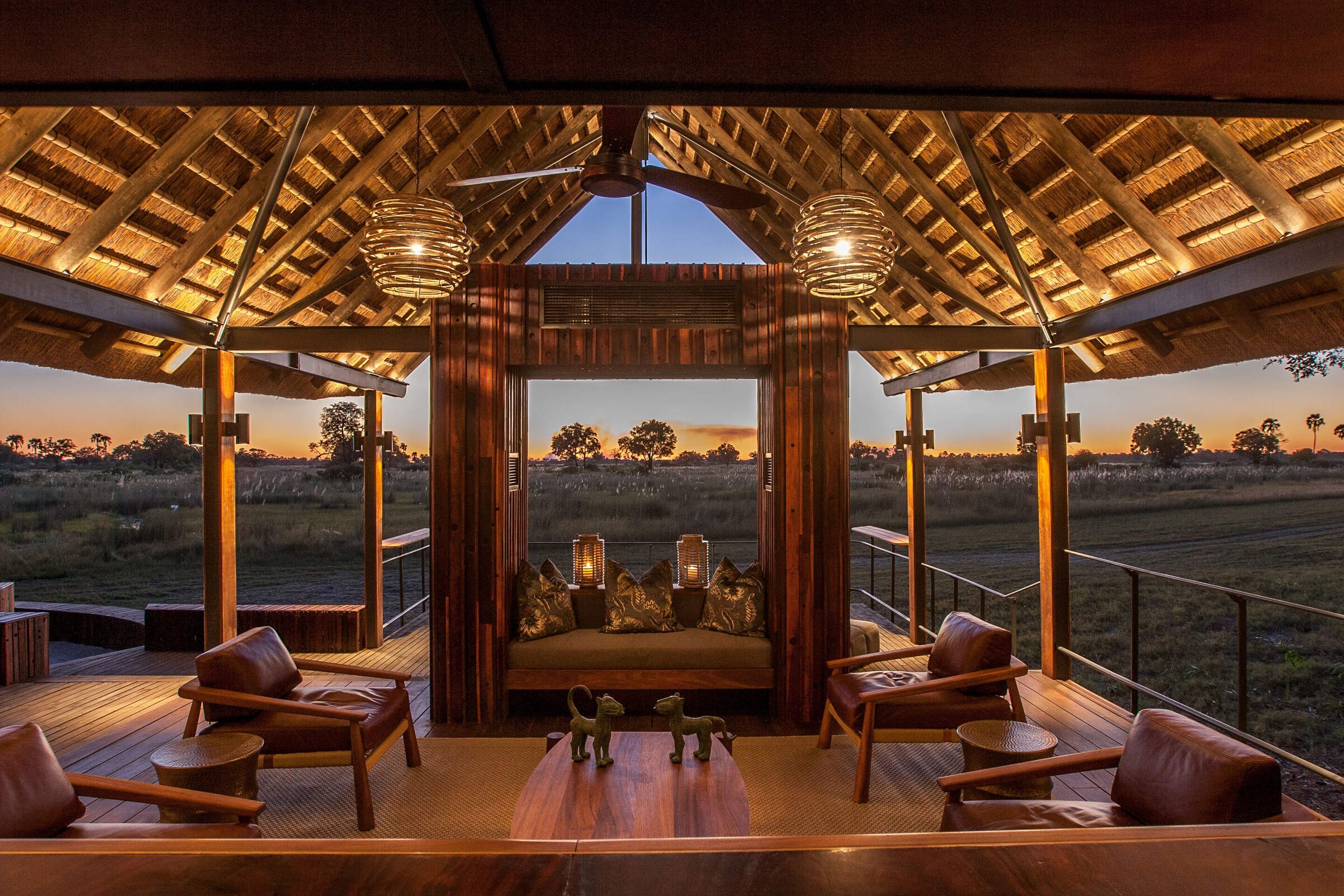
Chitabe Camp
In the southern Okavango Delta, the excellent Chitabe Camp concentrates on dry-land safaris in an area that we've found particularly good for wild dog sightings.
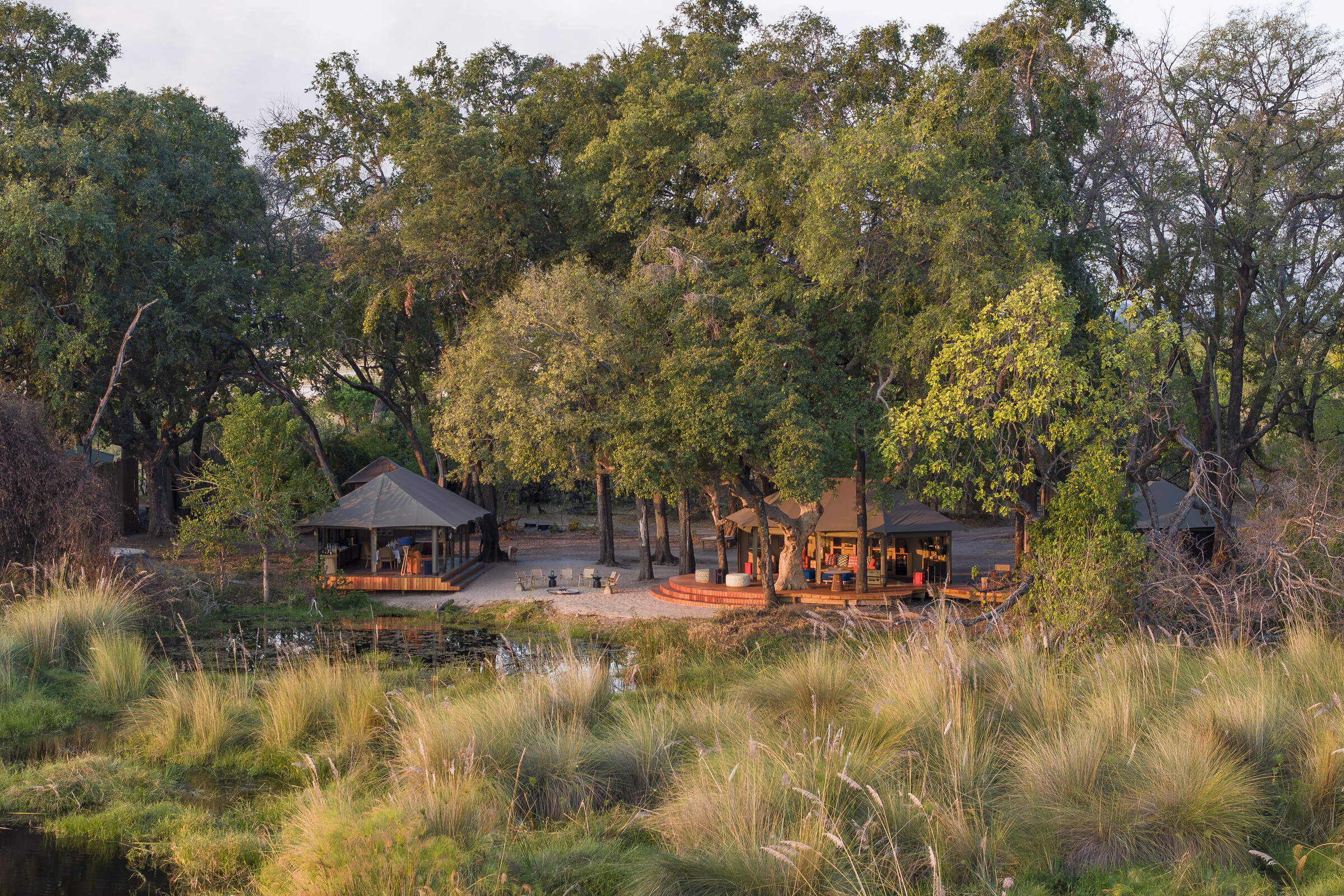
Shinde Footsteps
Small and simple, but comfortable, Shinde Footsteps focuses on walking safaris as well as game drives; it also runs a special children's programme so is particularly suitable for families.
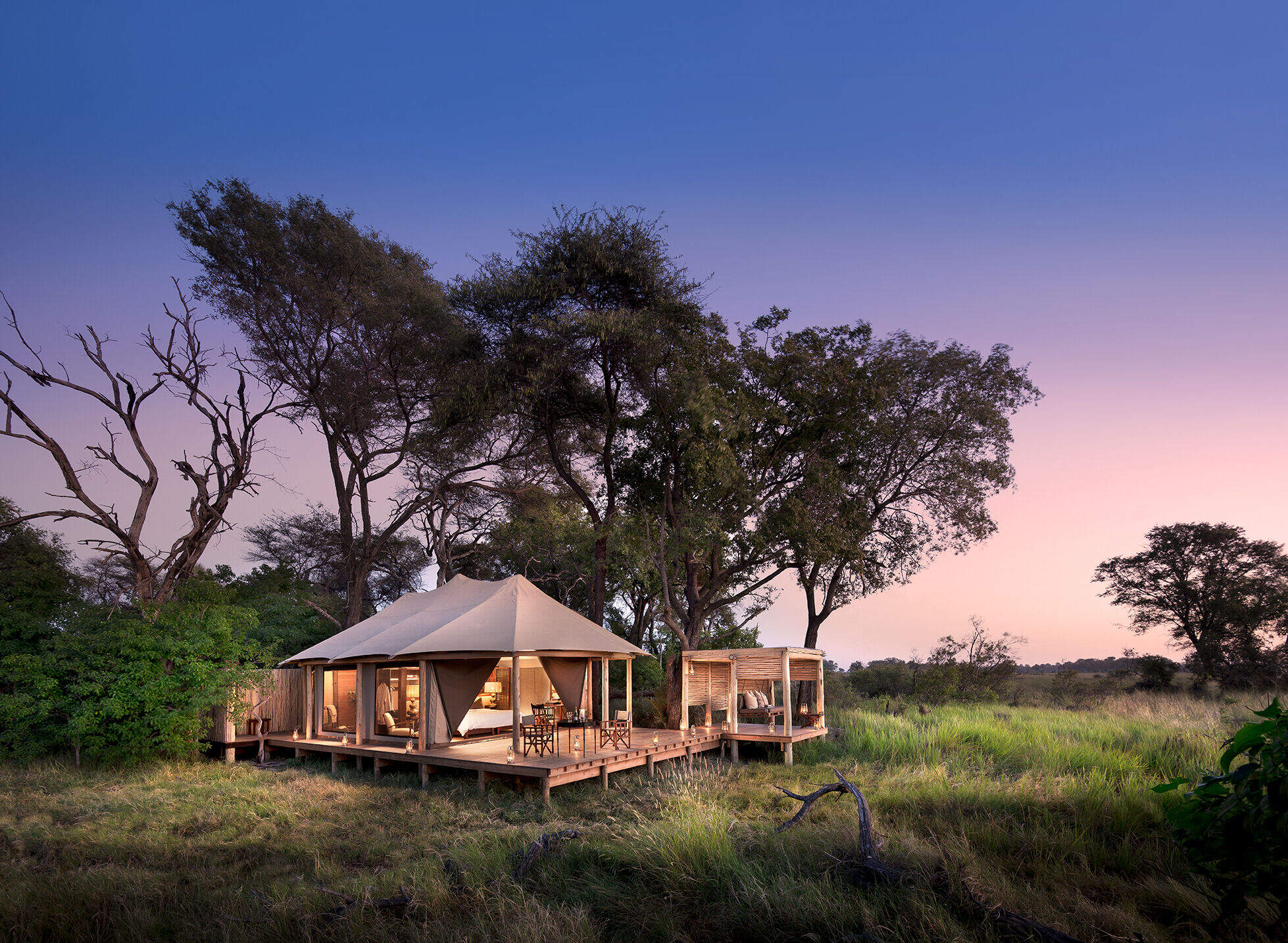
Nxabega Tented Camp
Nxabega offers a selection of both land- and water-based activities, plus very good guiding, food and service, but game viewing can be somewhat erratic.
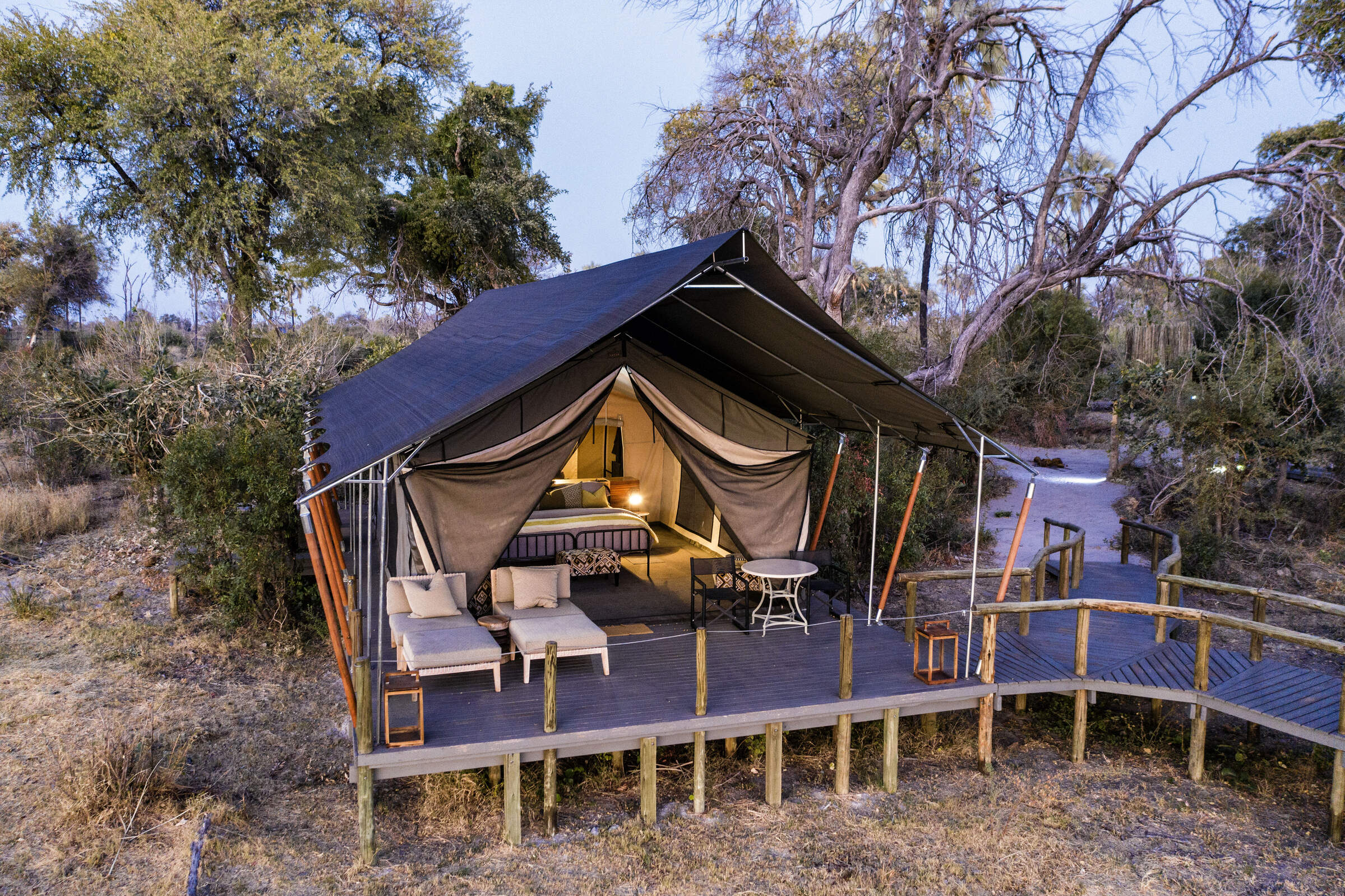
Gomoti Plains
Overlooking a tributary of the Gomoti River, Gomoti Plains Camp is a classically designed camp with very comfortable tents in a good game-viewing area.
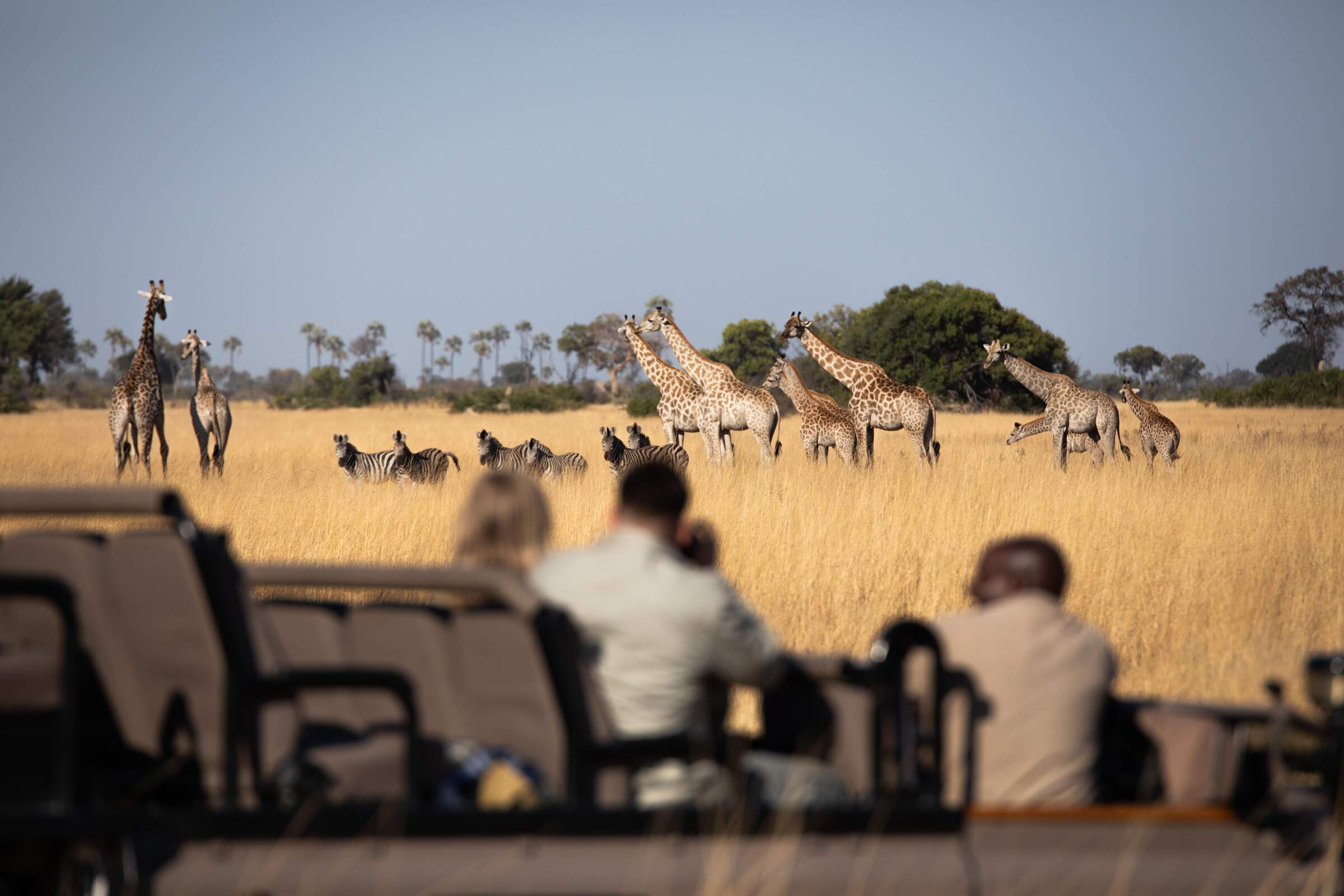
Tubu Tree Camp
A traditional tented camp with a distinctive tree-house feel, Tubu Tree offers some of the best game viewing in the Jao Reserve.
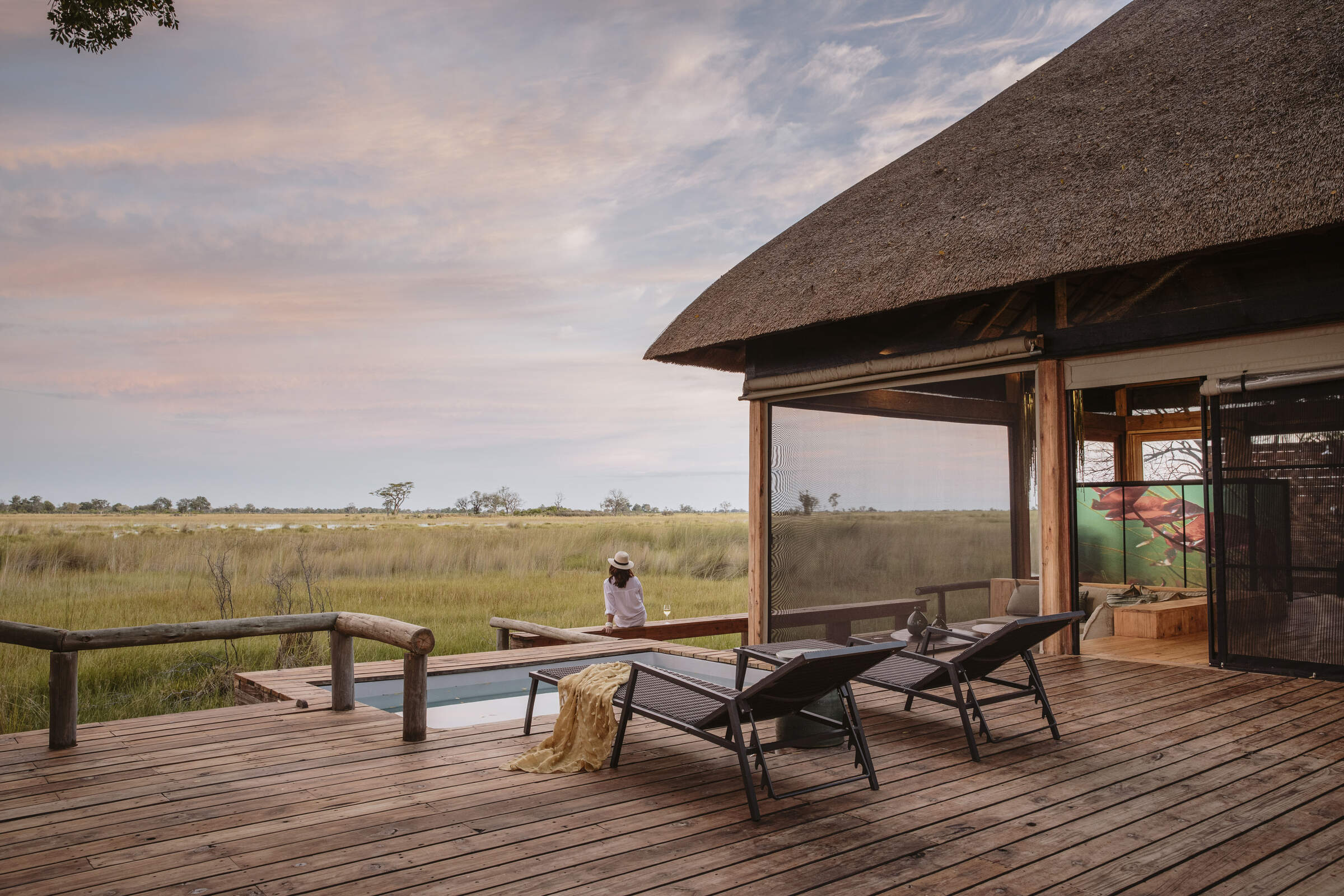
Vumbura Plains
Indulgently stylish and luxurious, Vumbura Plains offers superb game viewing and birding on an exceptionally varied private reserve.
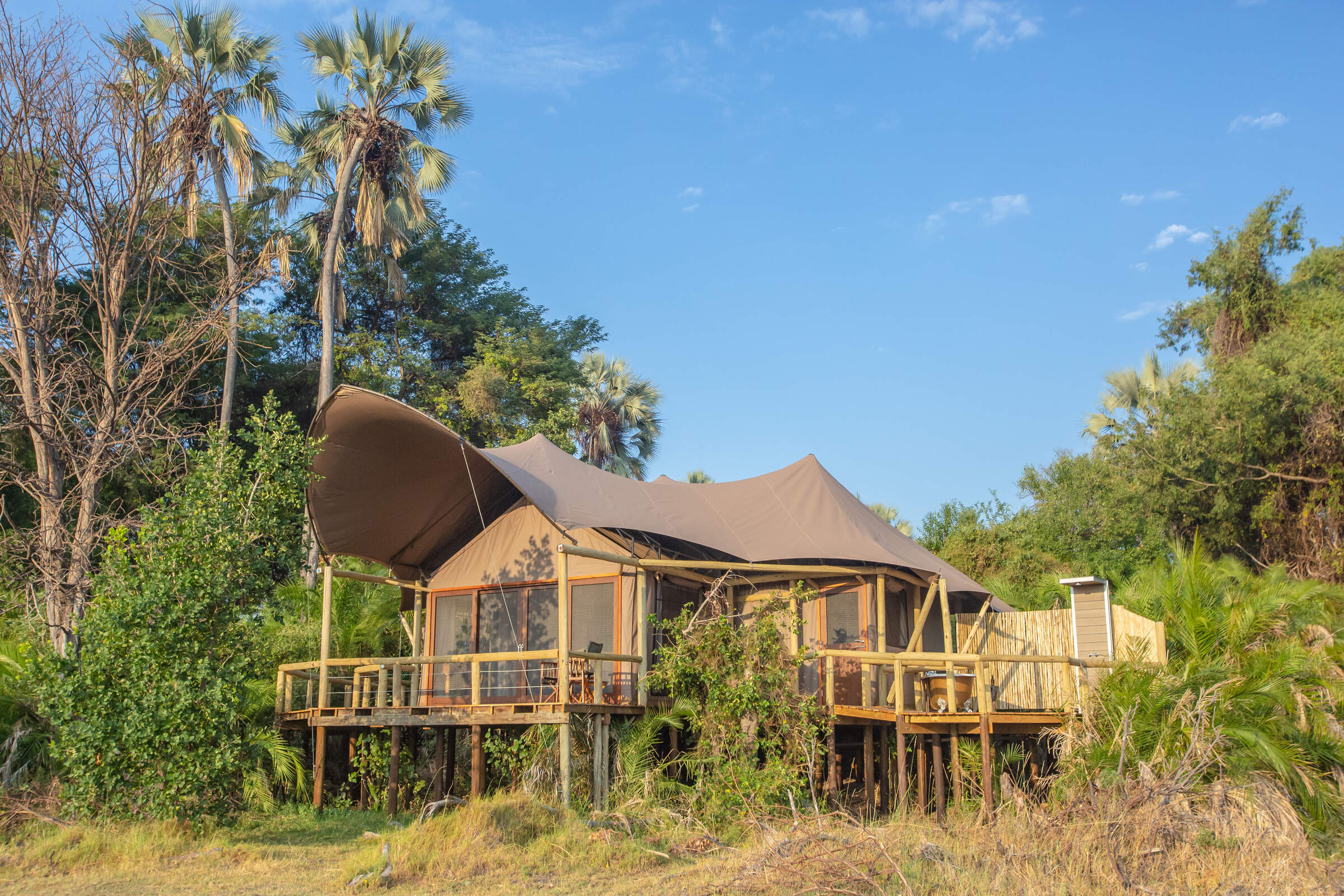
Jacana Camp
Jacana Camp is a small safari camp with an informal island feel; it is ideal for water-based activities in the Delta and offers excellent birdwatching.
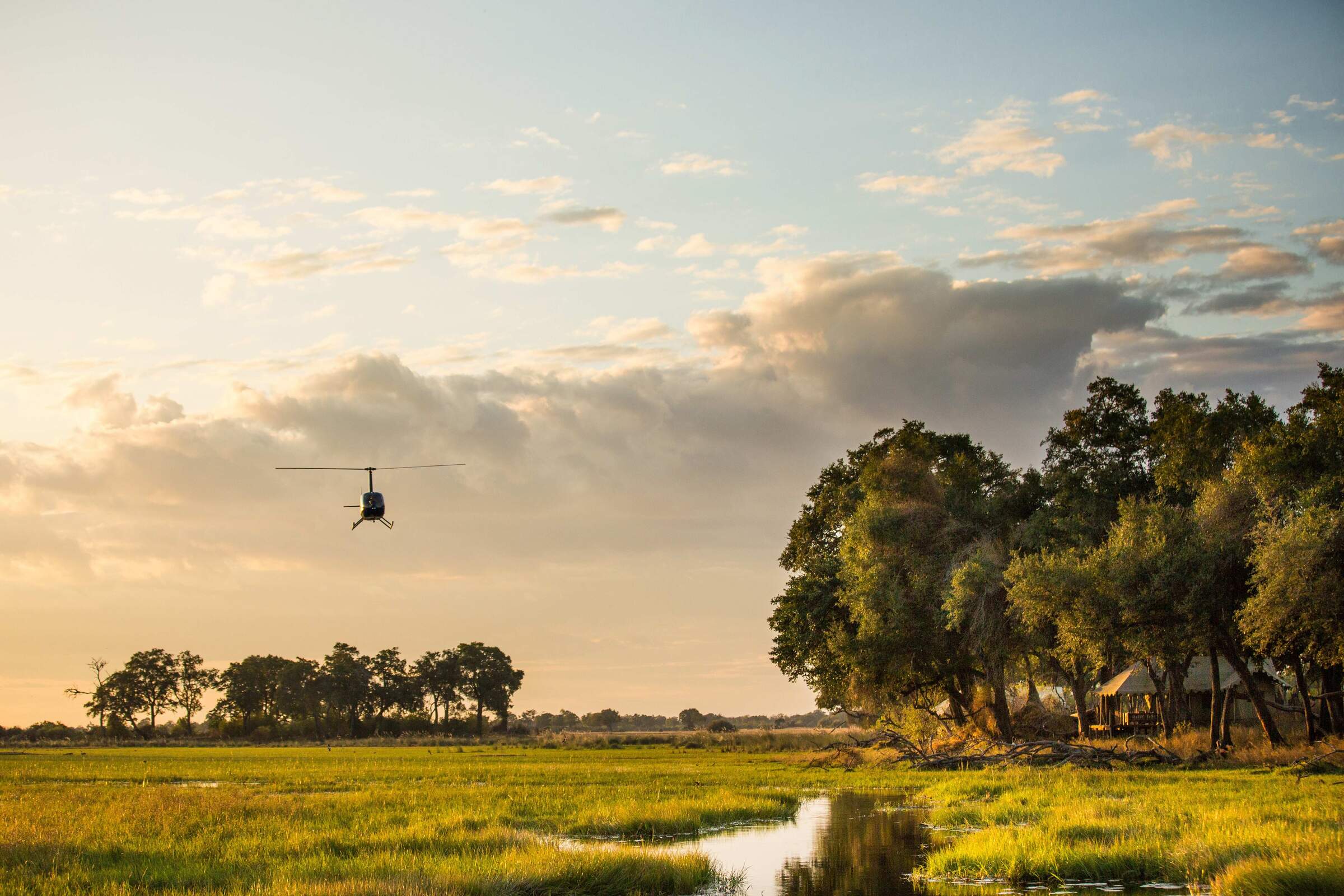
Duba Explorers Camp
Intimate and elegant, Duba Explorers Camp promises a firm safari focus in a remote corner of the Okavango, led by a team who value the highest guiding and hosting standards.
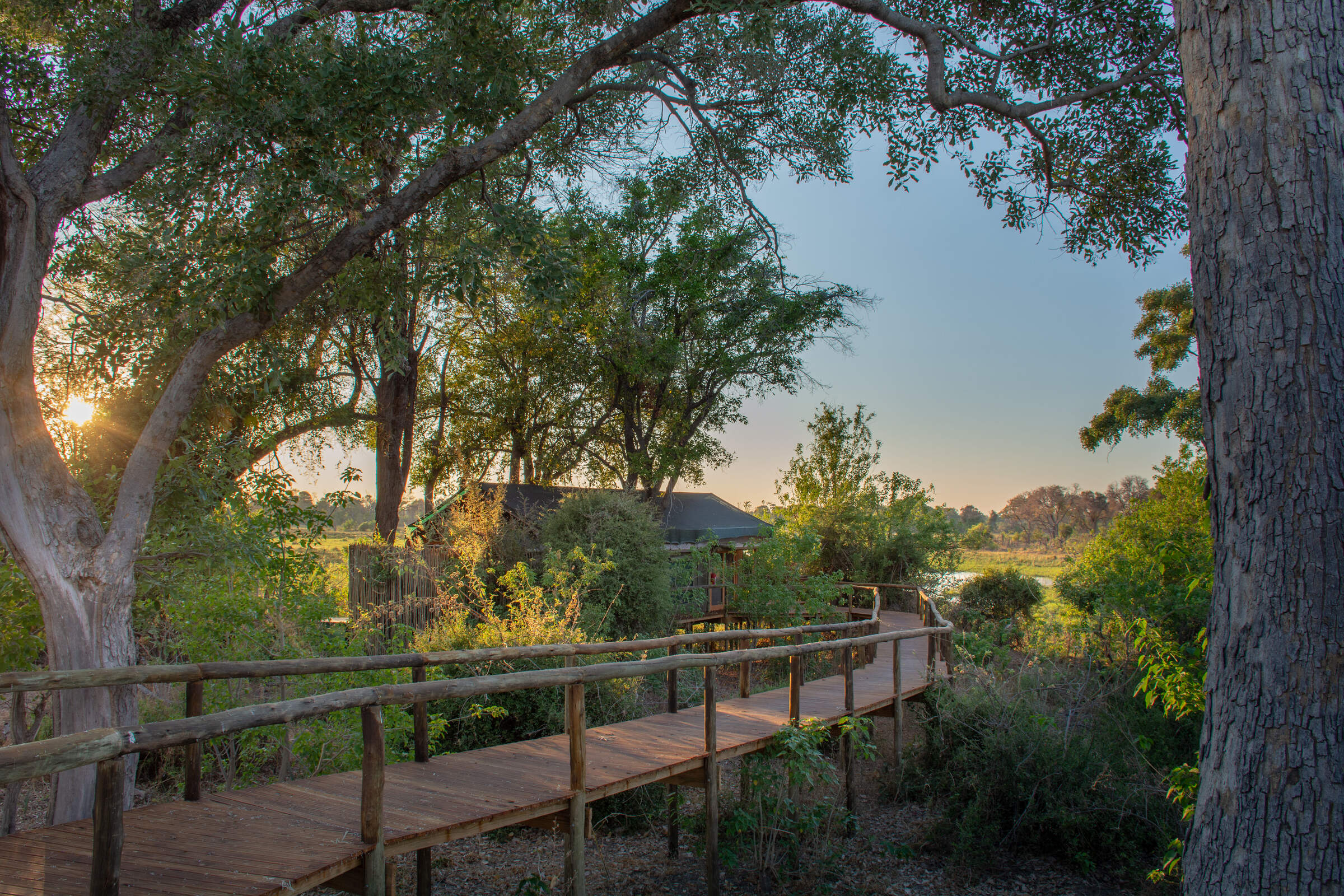
Mma Dinare
Beautifully located in a private concession overlooking the Gomoti River, the traditional Mma Dinare is very well-priced for the Okavango Delta.
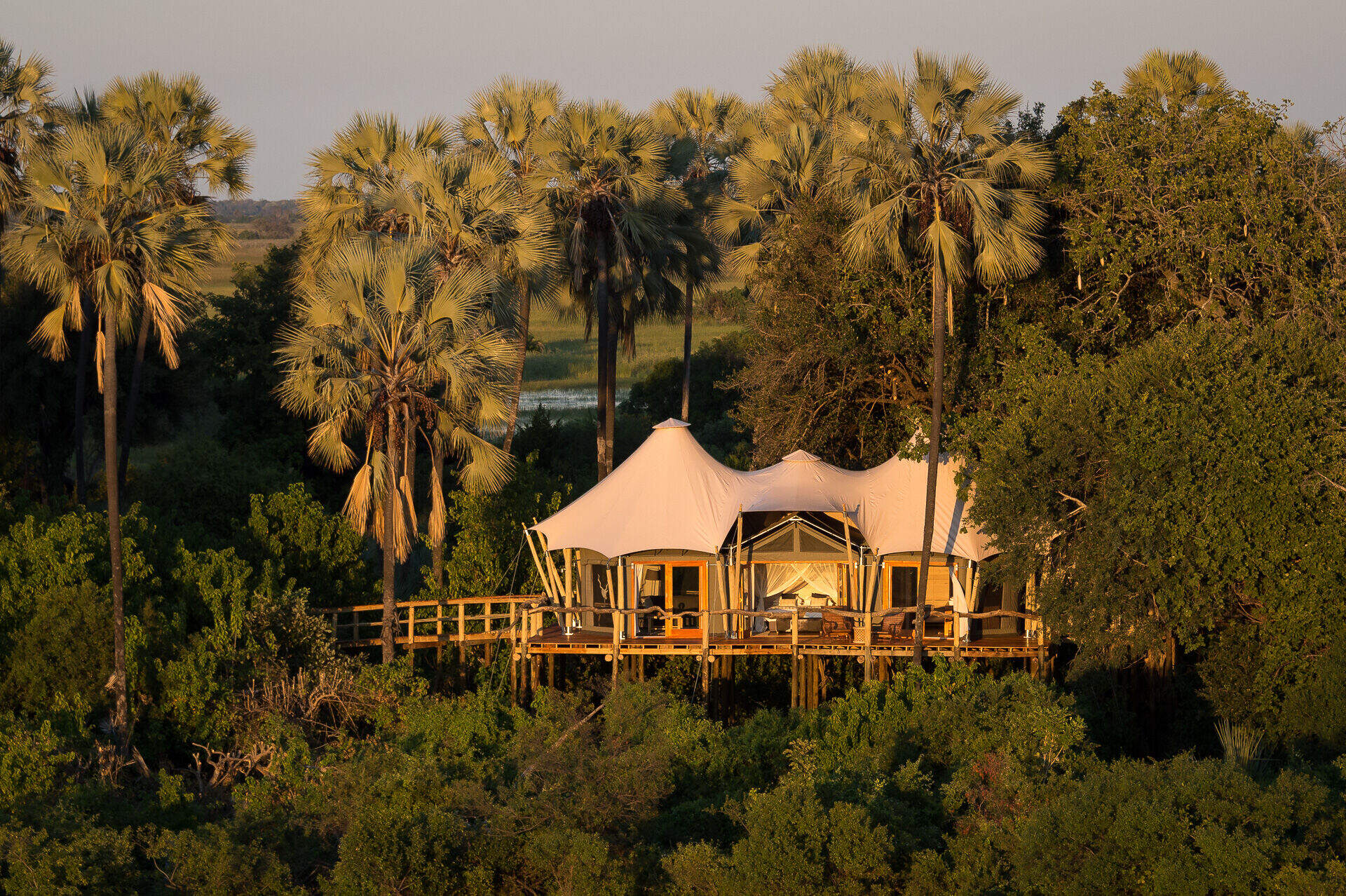
Kwetsani Camp
Deep in the Delta, overlooking a floodplain, Kwetsani Camp is a small, high-end camp with good access to areas for land and water-based activities.
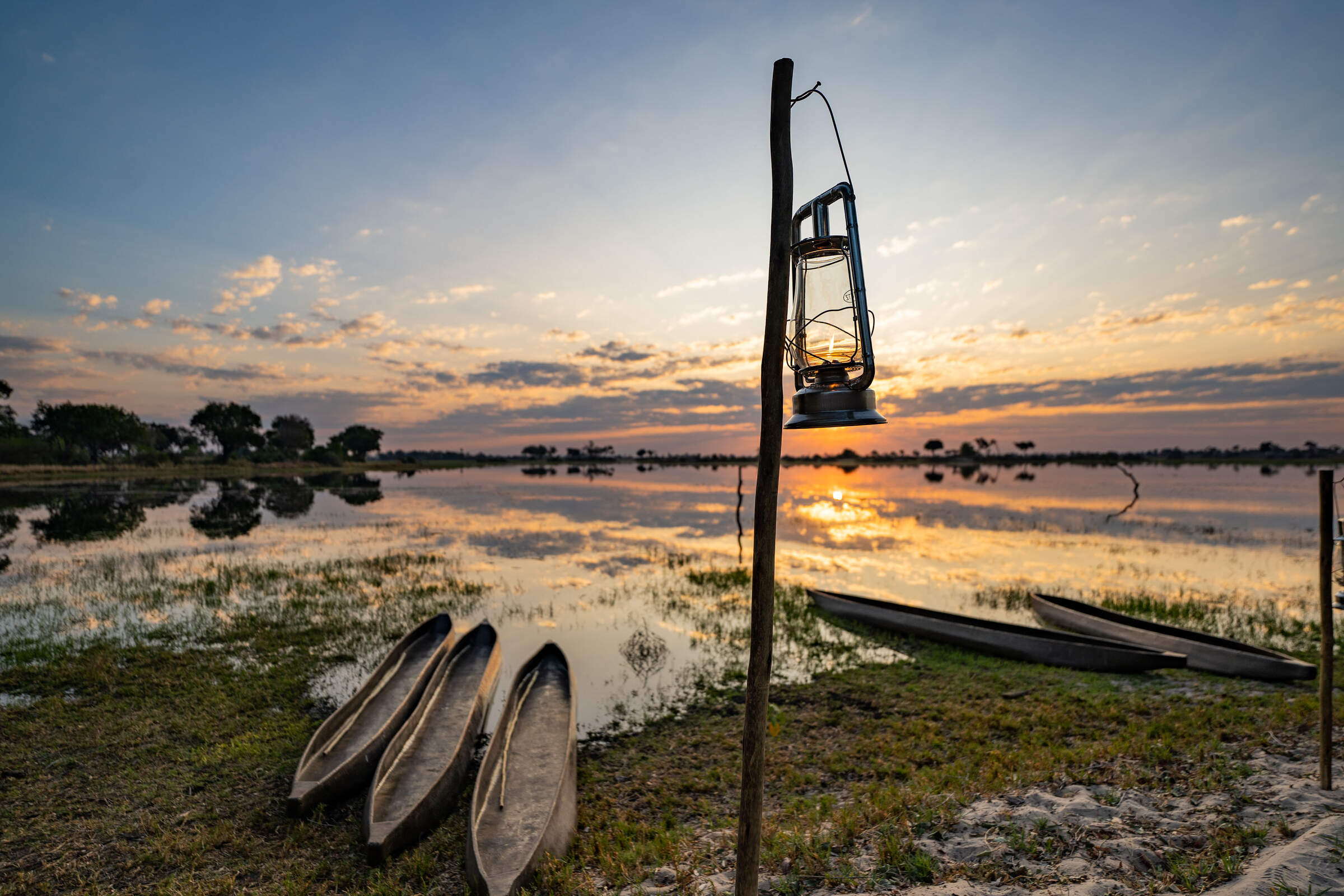
Pom Pom Camp
Amidst stunning Okavango Delta scenery, Pom Pom offers idyllic mokoro trips in season, great birdwatching, and increasingly good big-game sightings, especially leopards.
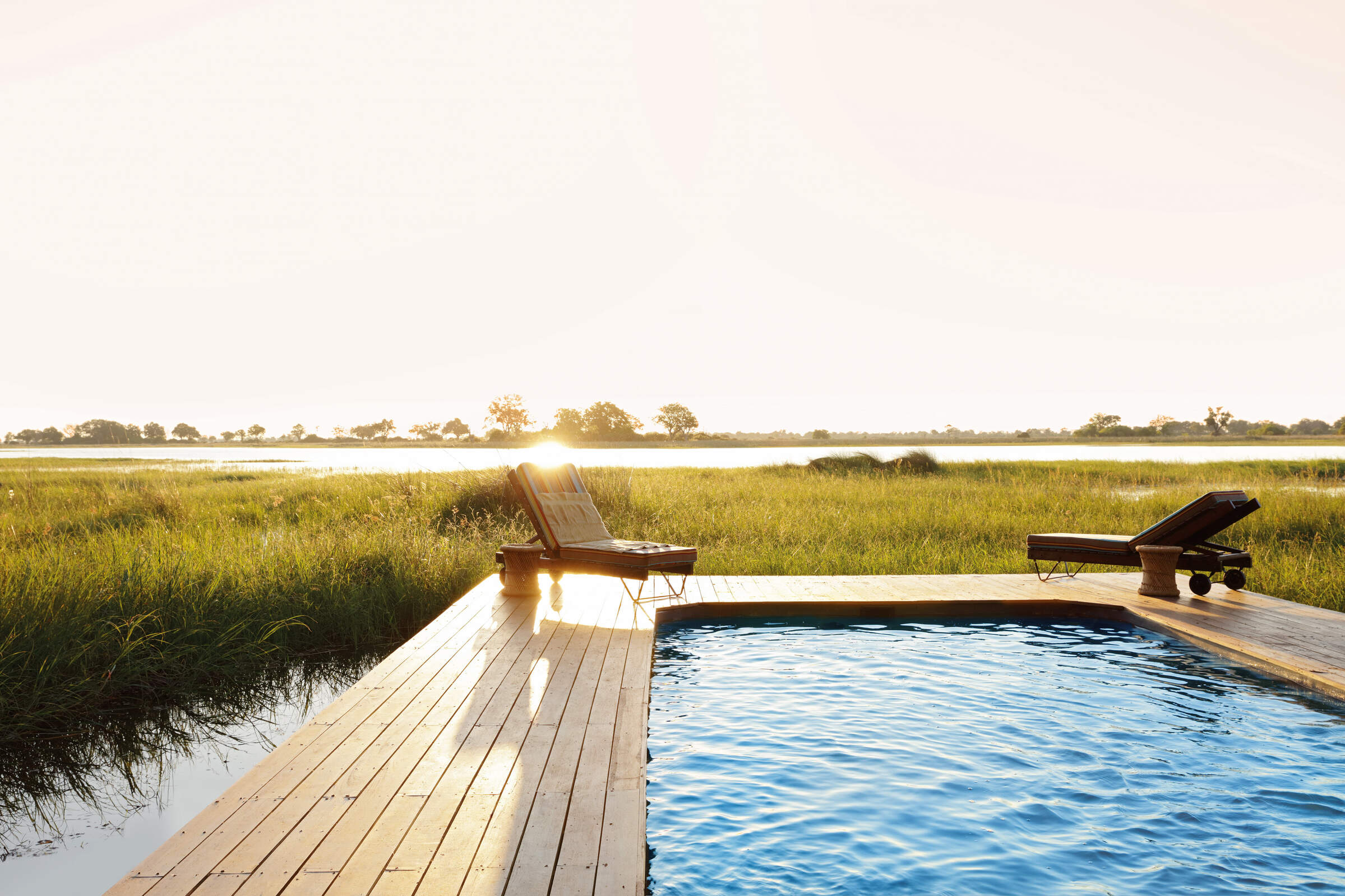
Mapula Lodge
For an affordable yet varied safari encompassing a range of eco-systems, the traditional Mapula Lodge takes a lot of beating.
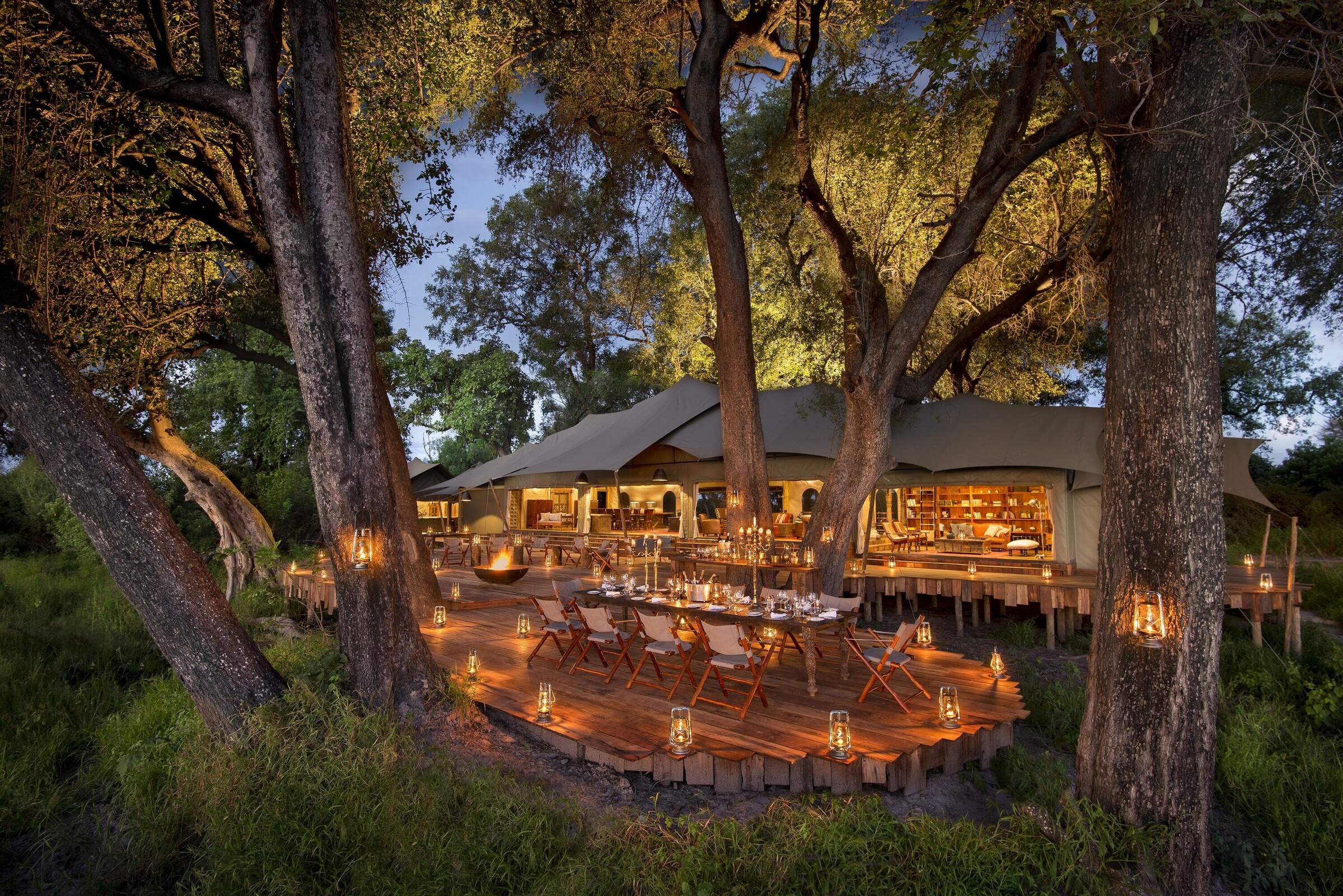
Duba Plains Camp
Duba Plains Camp is a traditional yet luxurious safari camp, best known for the thrilling lion behavior interaction that is often see during the day.
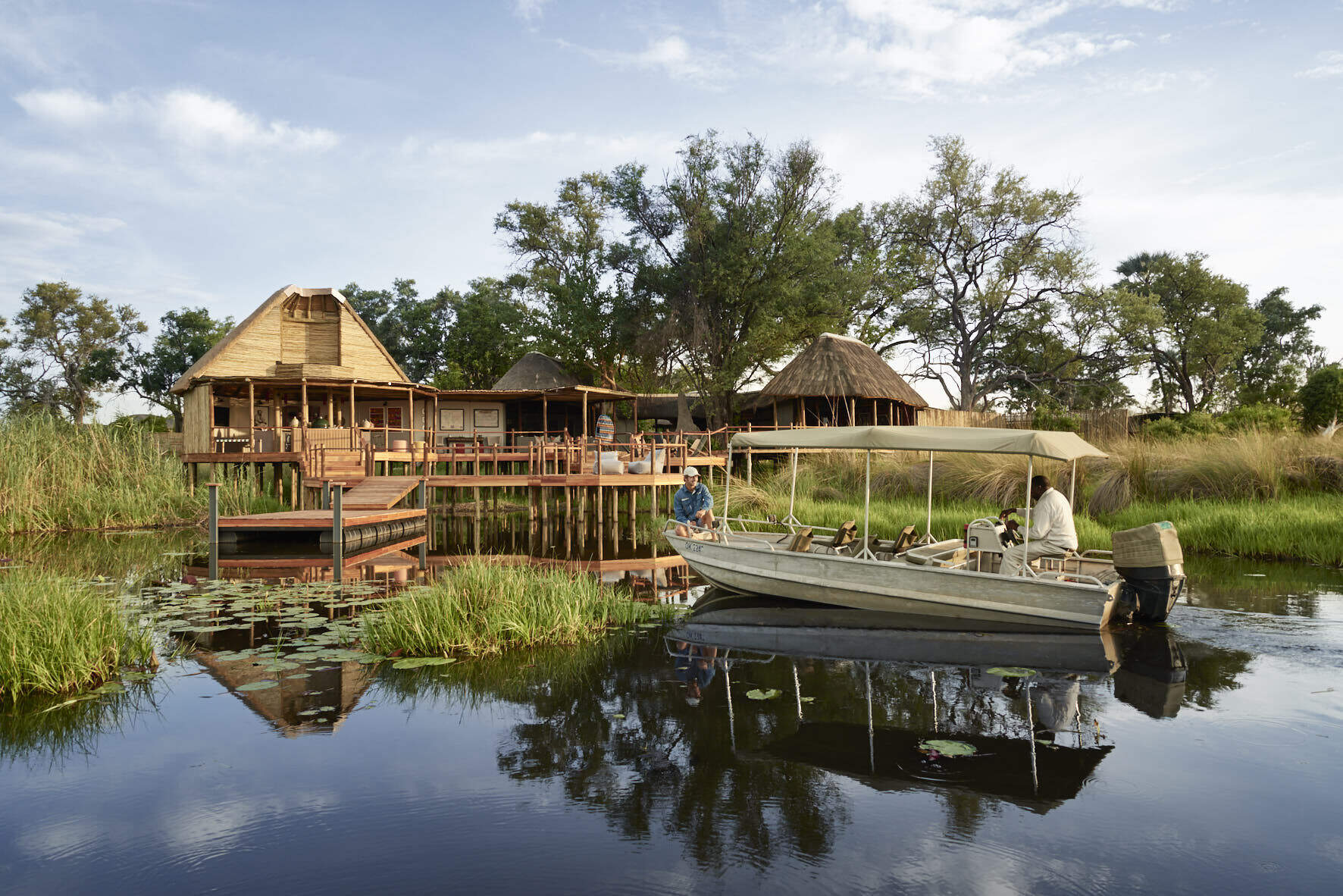
Baines' Camp
Baines' Camp is a well-run, intimate camp in a pretty part of the Okavango, offering a range of activities and the option to spend a morning walking with elephants.
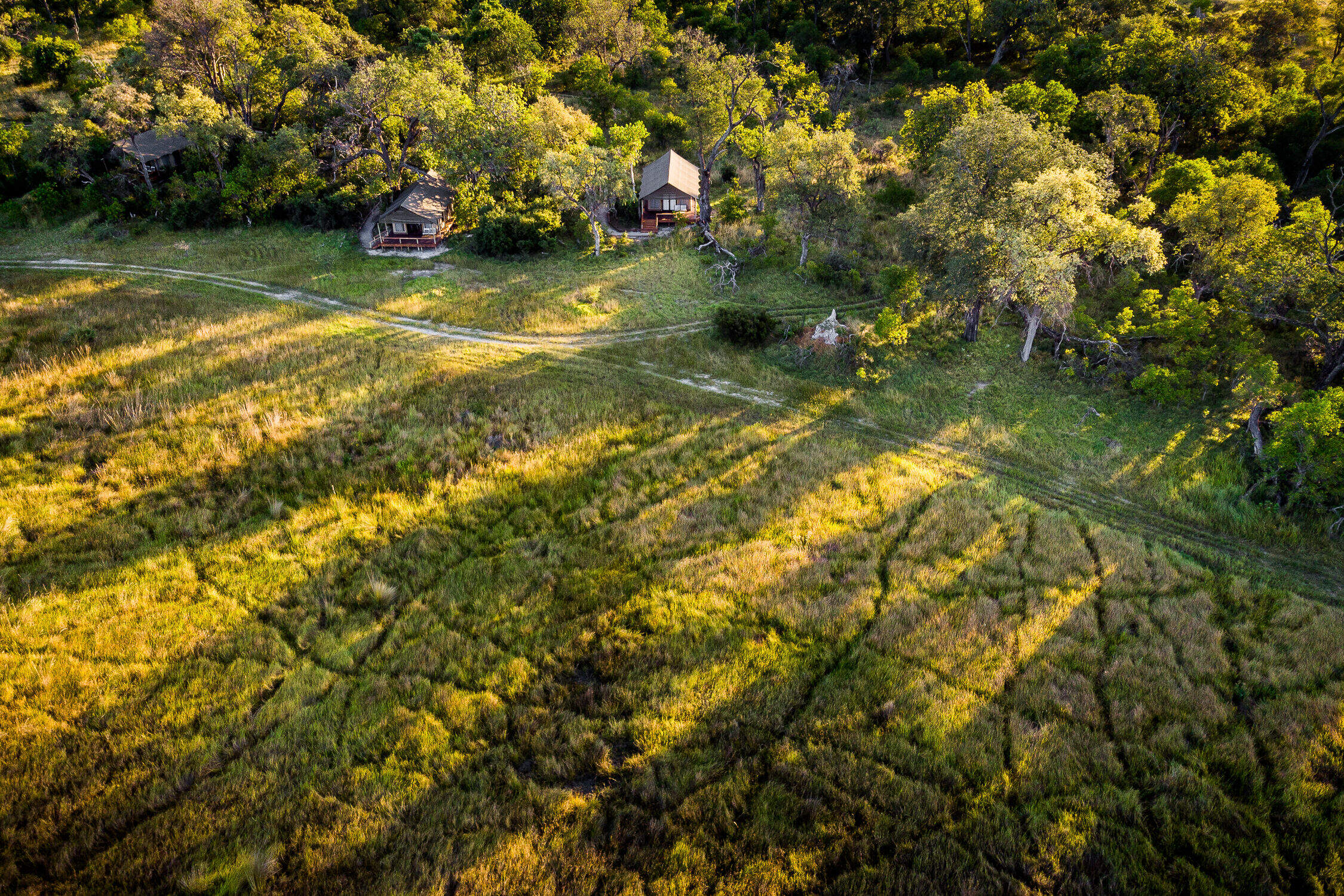
Stanley's Camp
In a private concession south of Moremi Game Reserve, Stanley's Camp offers 4WD game drives, seasonal water activities and a superb elephant interaction.
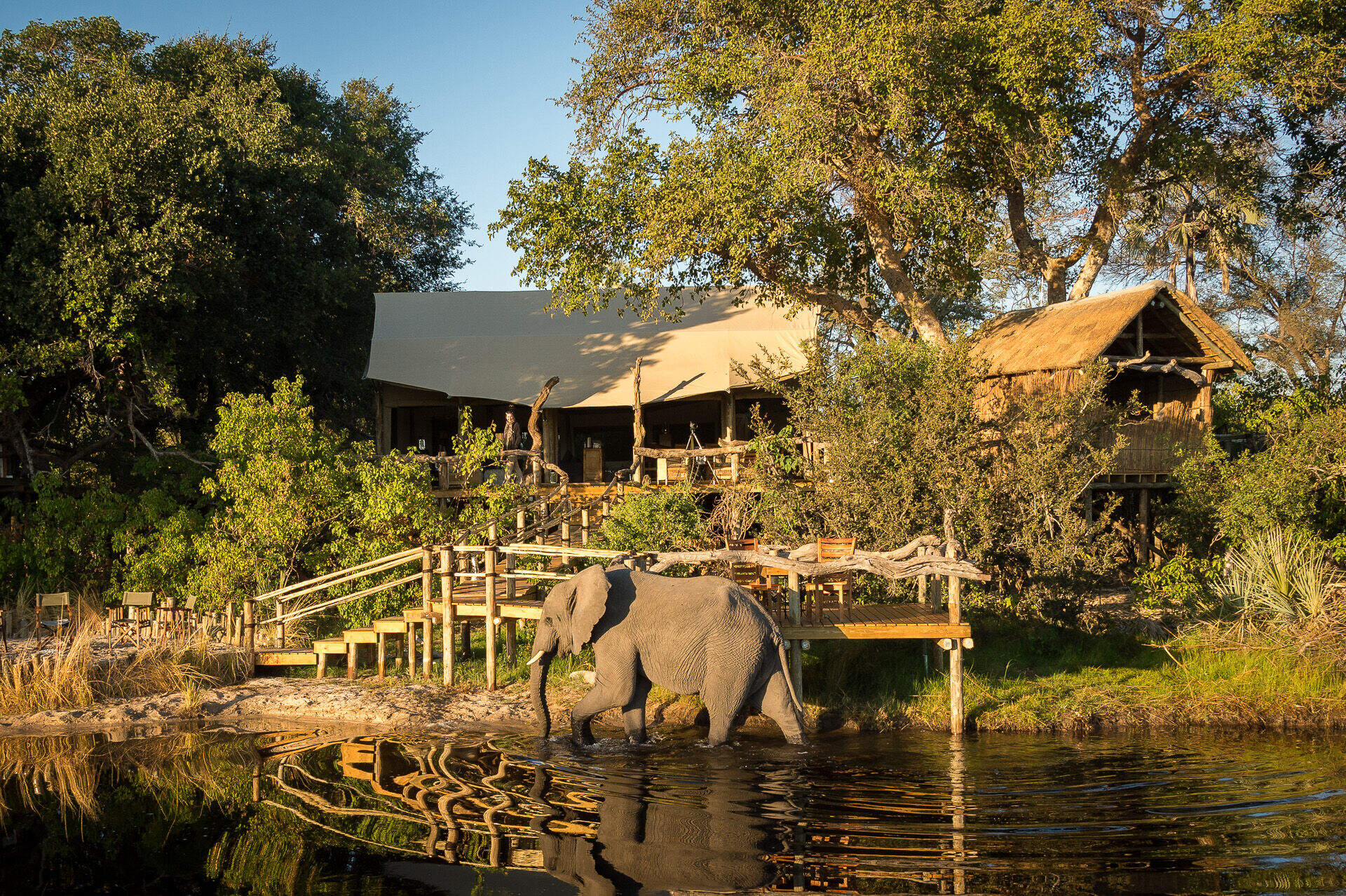
Little Tubu
Little Tubu is a new, traditional camp with just three tented chalets and a distinctive tree-house feel. The areas around it can be explored by water and land-based activities year round.
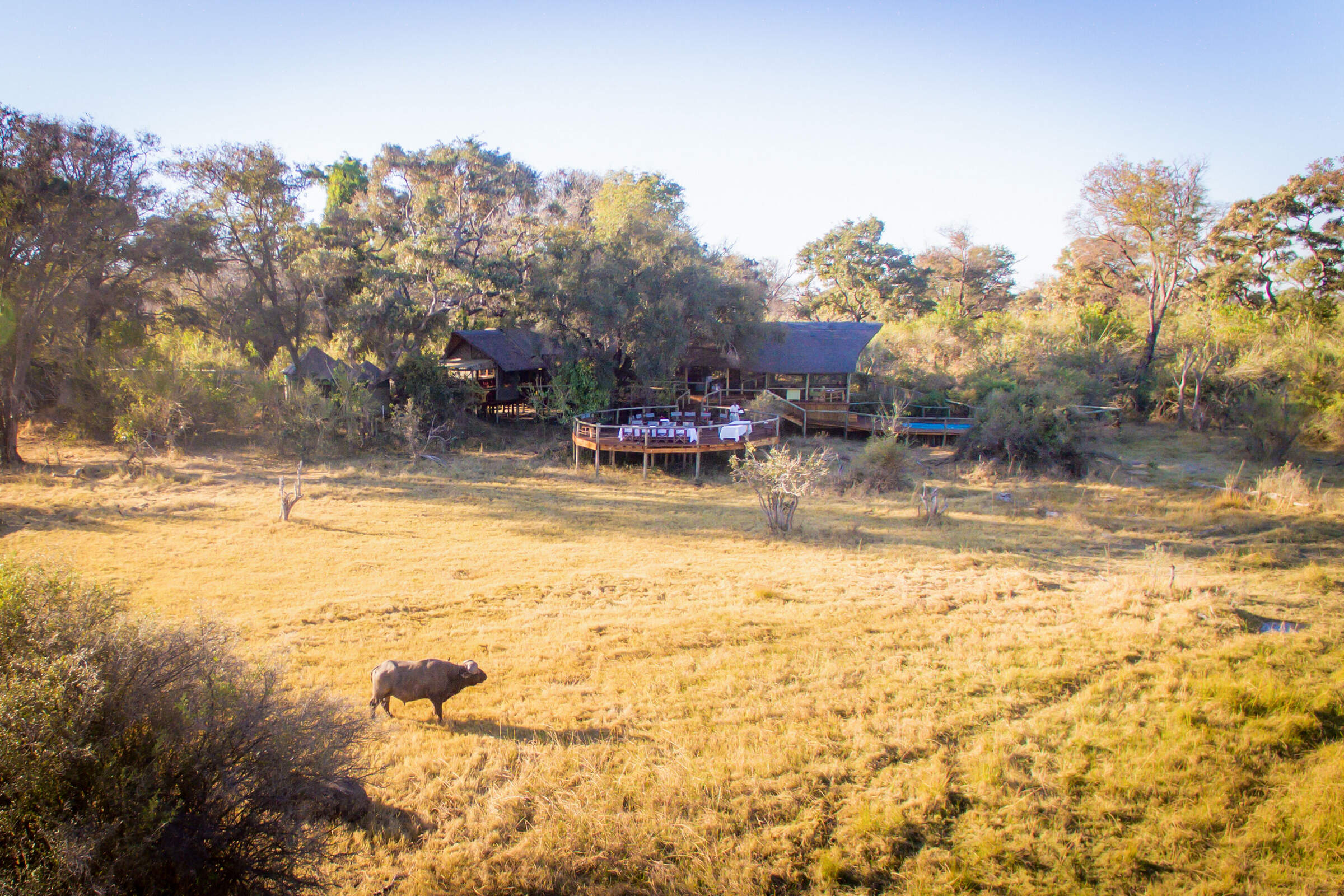
Rra Dinare
Located in a private concession in the southern reaches of the Okavango Delta, overlooking the Gomoti River, Rra Dinare is a traditional-style, well-priced camp.
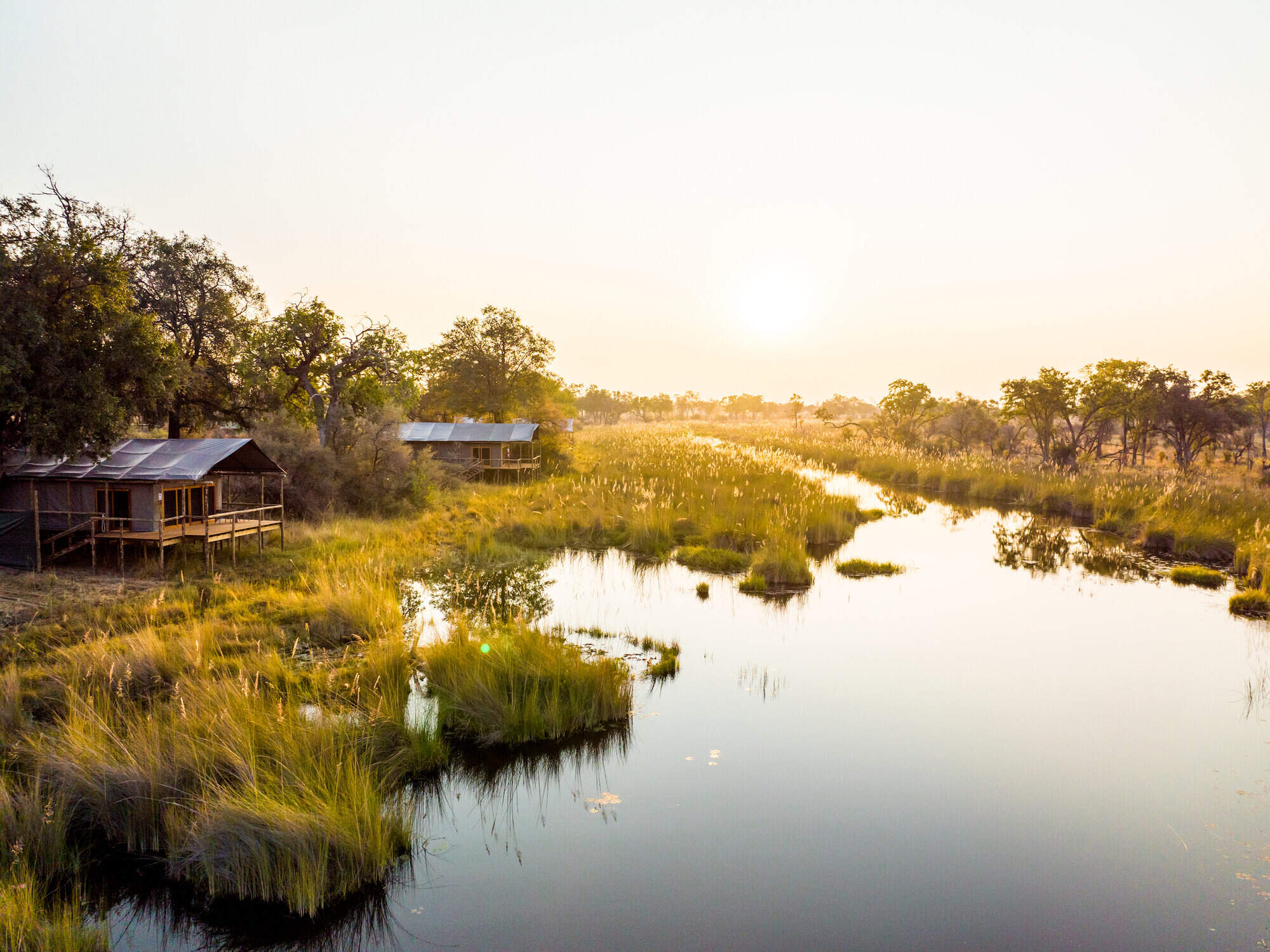
4 Rivers
4 Rivers is a new camp in a previously in accessible area of the excellent Kwara concession.
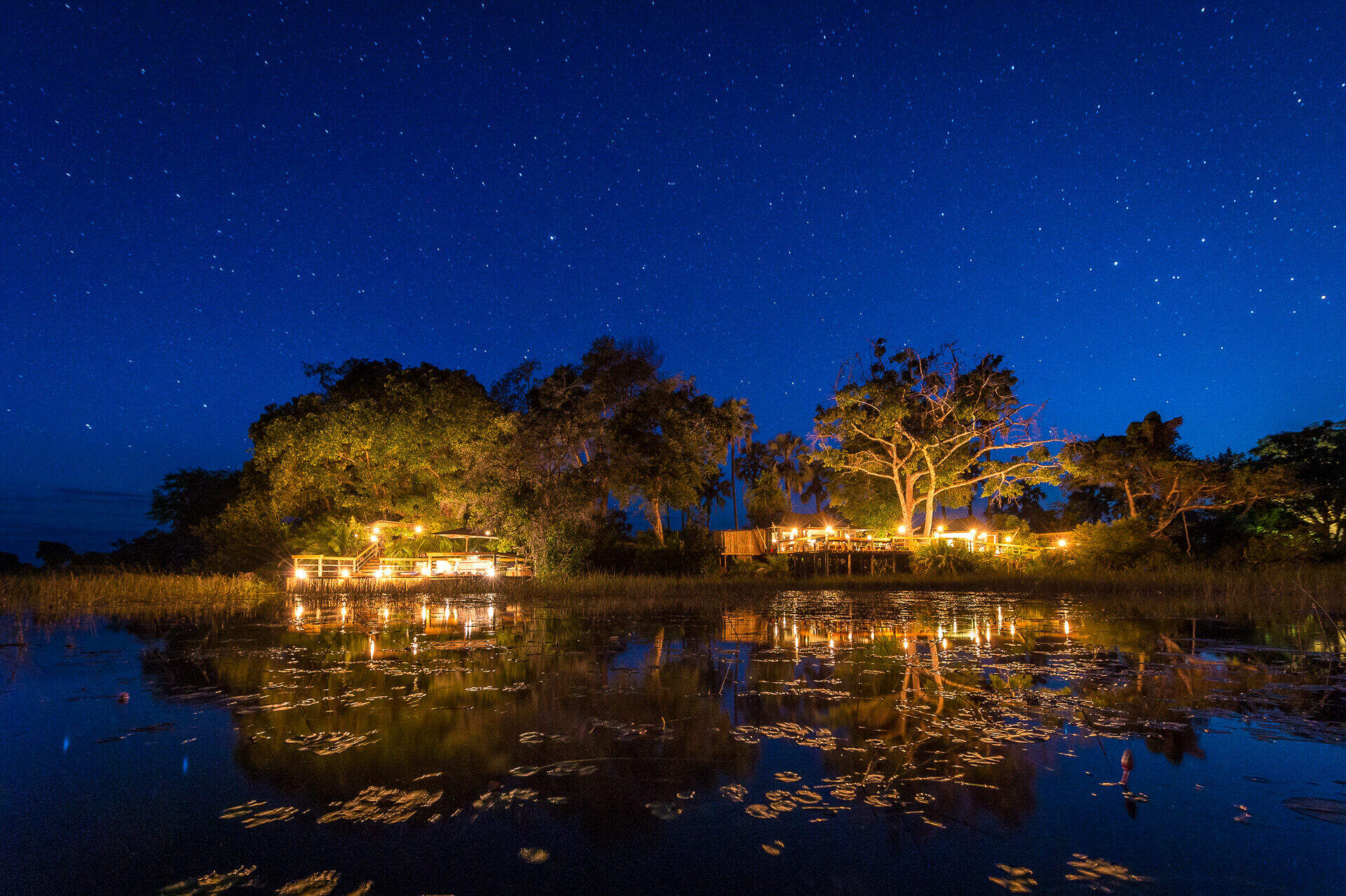
Pelo Camp
In a pristine wilderness environment deep in the Okavango Delta, the seasonal Pelo Camp is tented yet comfortable, with activities focusing on excursions by mokoro.
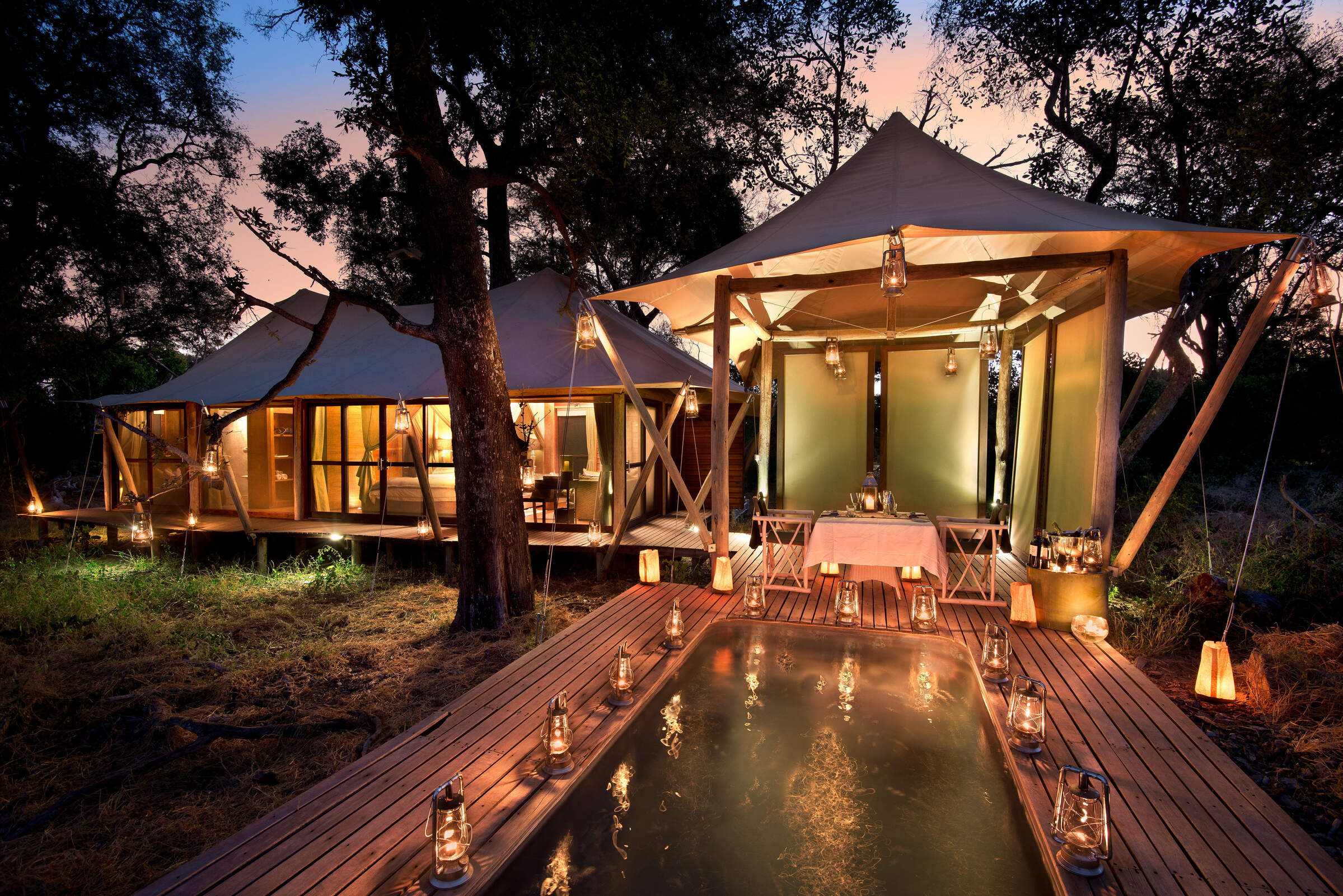
Xaranna
Xaranna is a plush tented camp amongst the idyllic waterways and islands of the Delta. Each air-conditioned tent has a plunge pool. Water activities and pampering are the focus here.
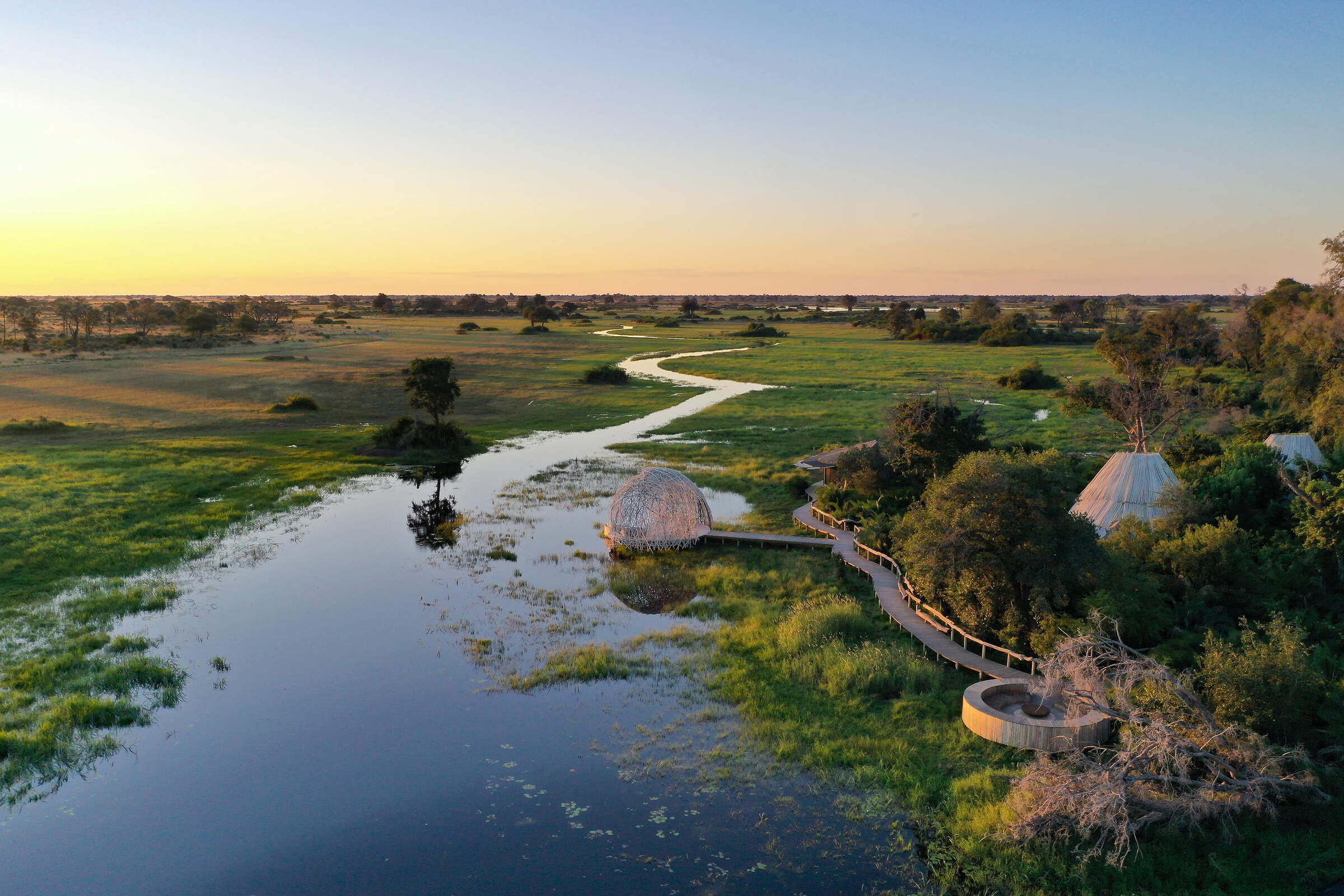
Jao Camp
In a beautiful area with fantastic water activities, Jao combines an idyllic location with high levels of luxury and service, and a top-end spa.
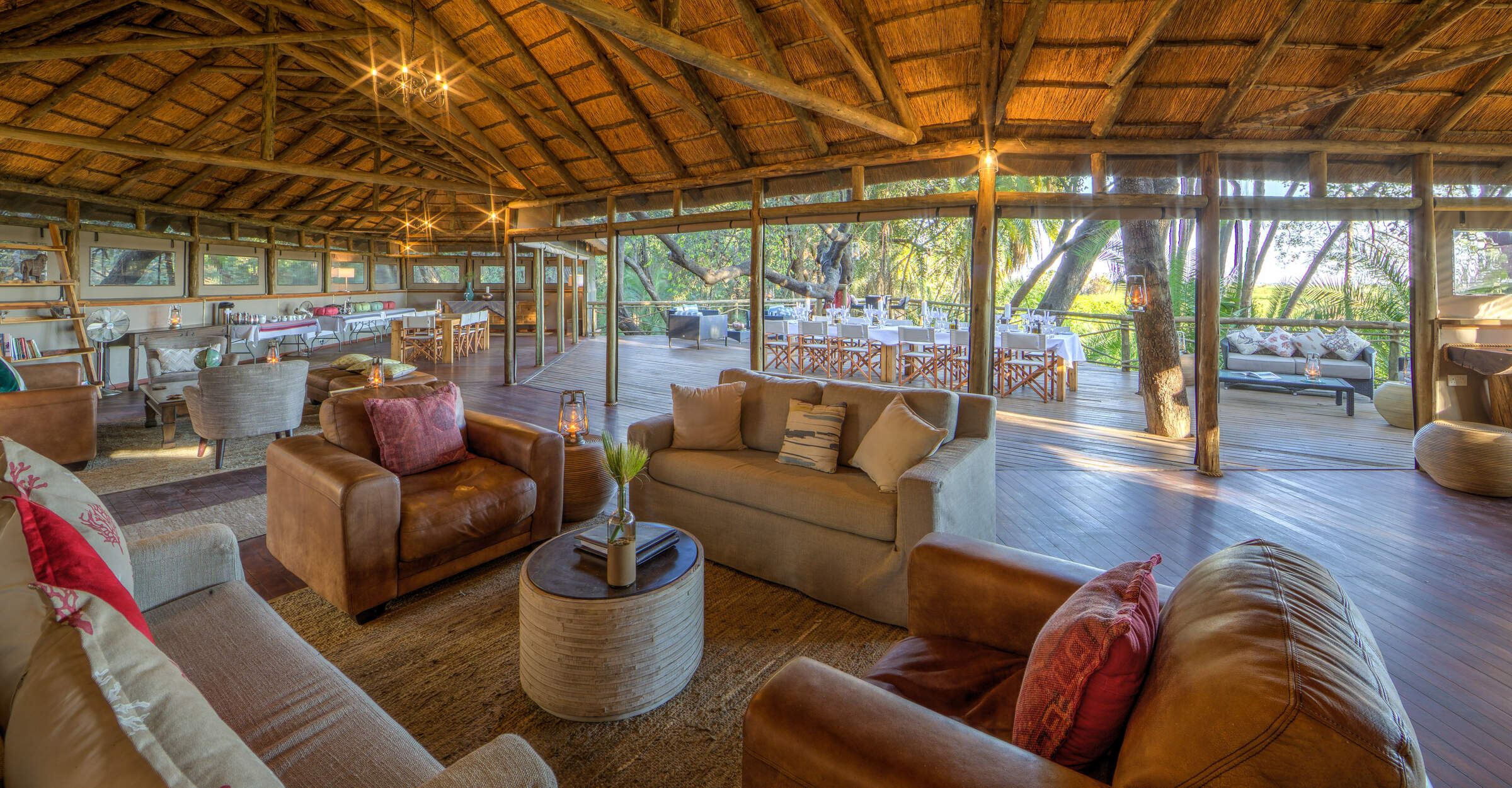
Setari Camp
Setari Camp stands on an island dotted with palm trees, close to the base of the Okavango's 'Panhandle", offering primarily water-based activities.
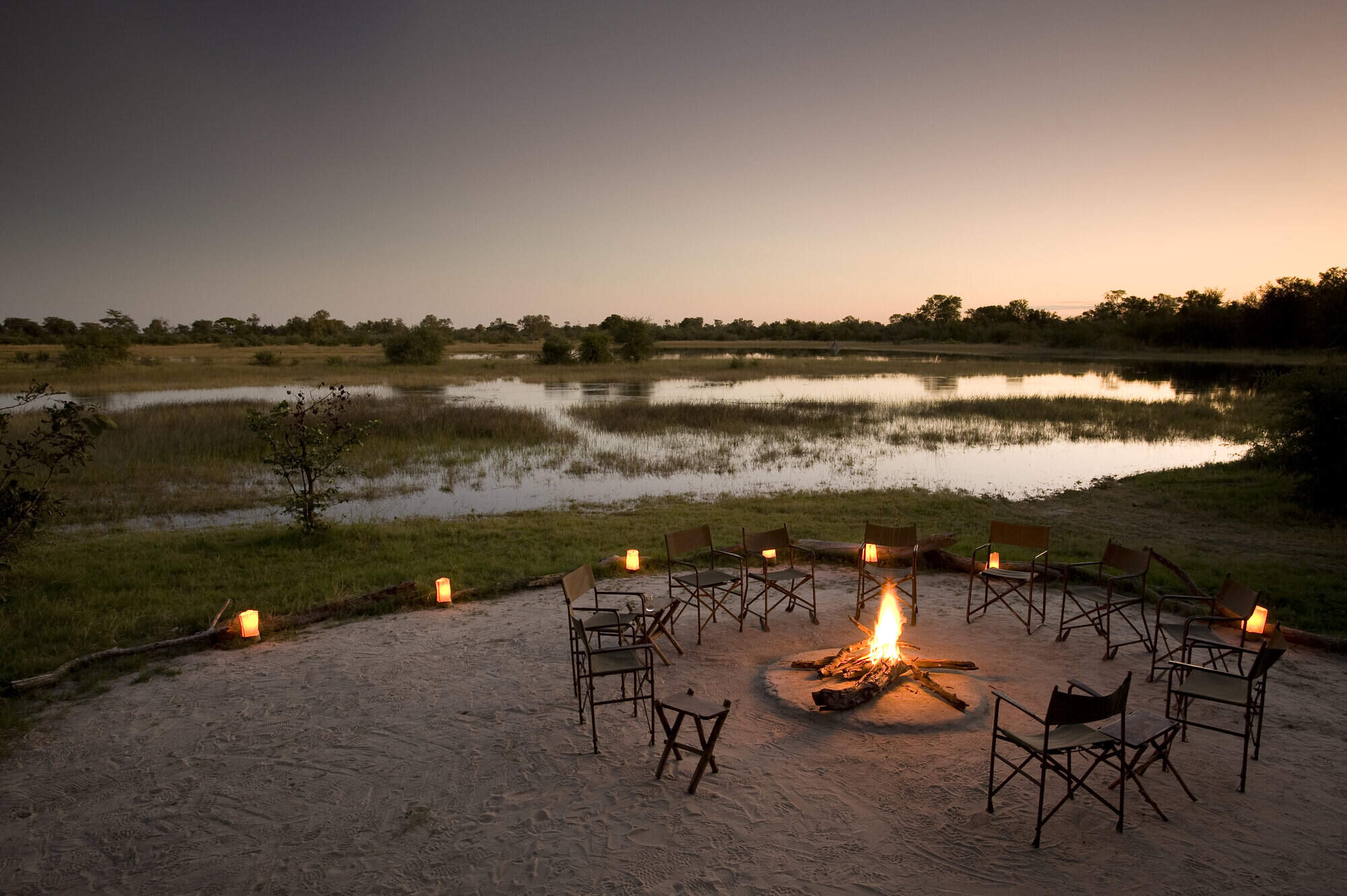
Okavango Explorers
The traditional, tented Okavango Explorers Camp offers a mix of walking, canoeing and game drives led by great guides in a wildlife-rich area.
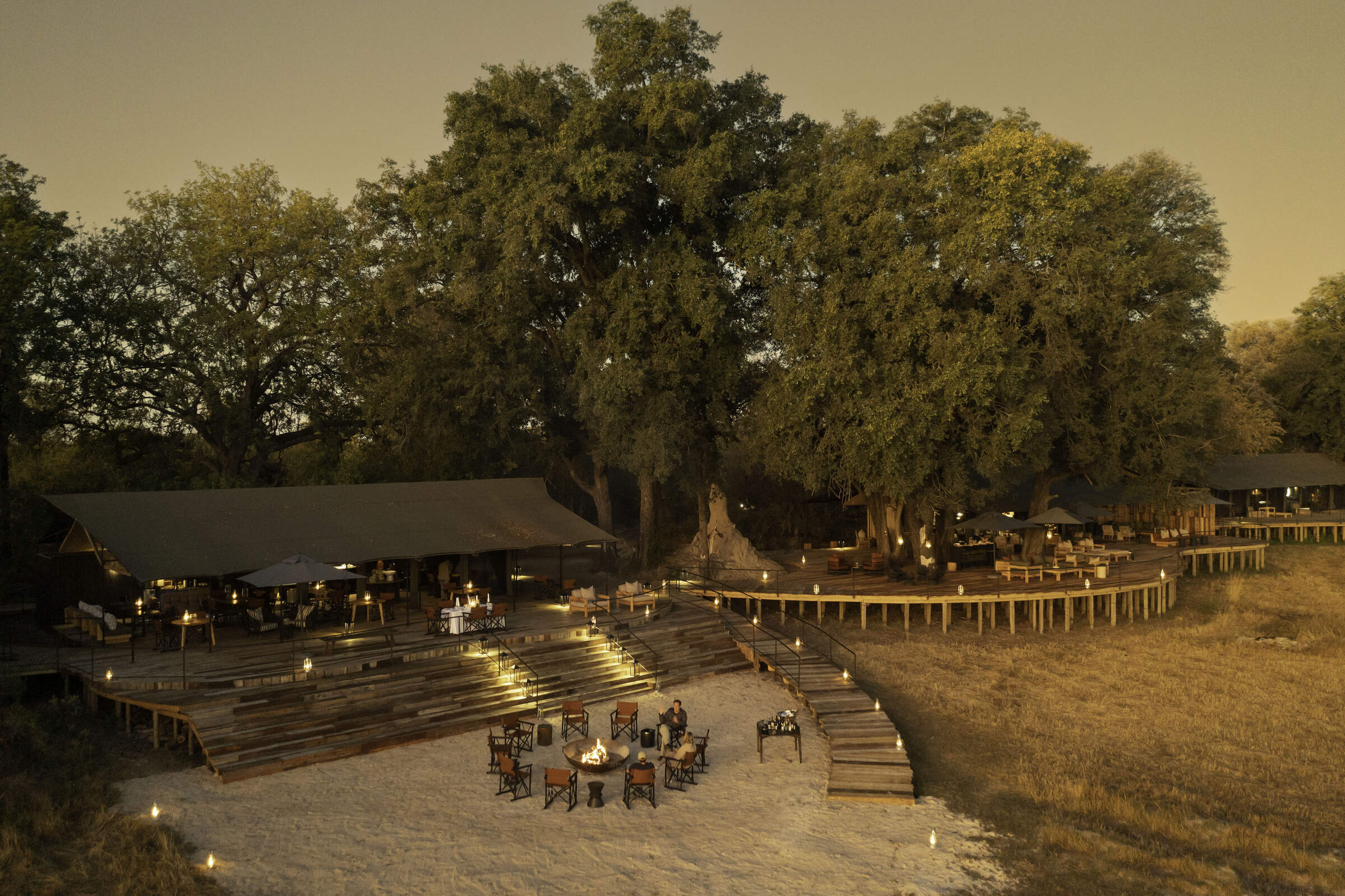
Kiri Camp
Kiri Camp is the latest Okavango offering from the excellent team behind Machaba. In an exciting new location in the heart of the Delta we cannot wait to visit this new camp.
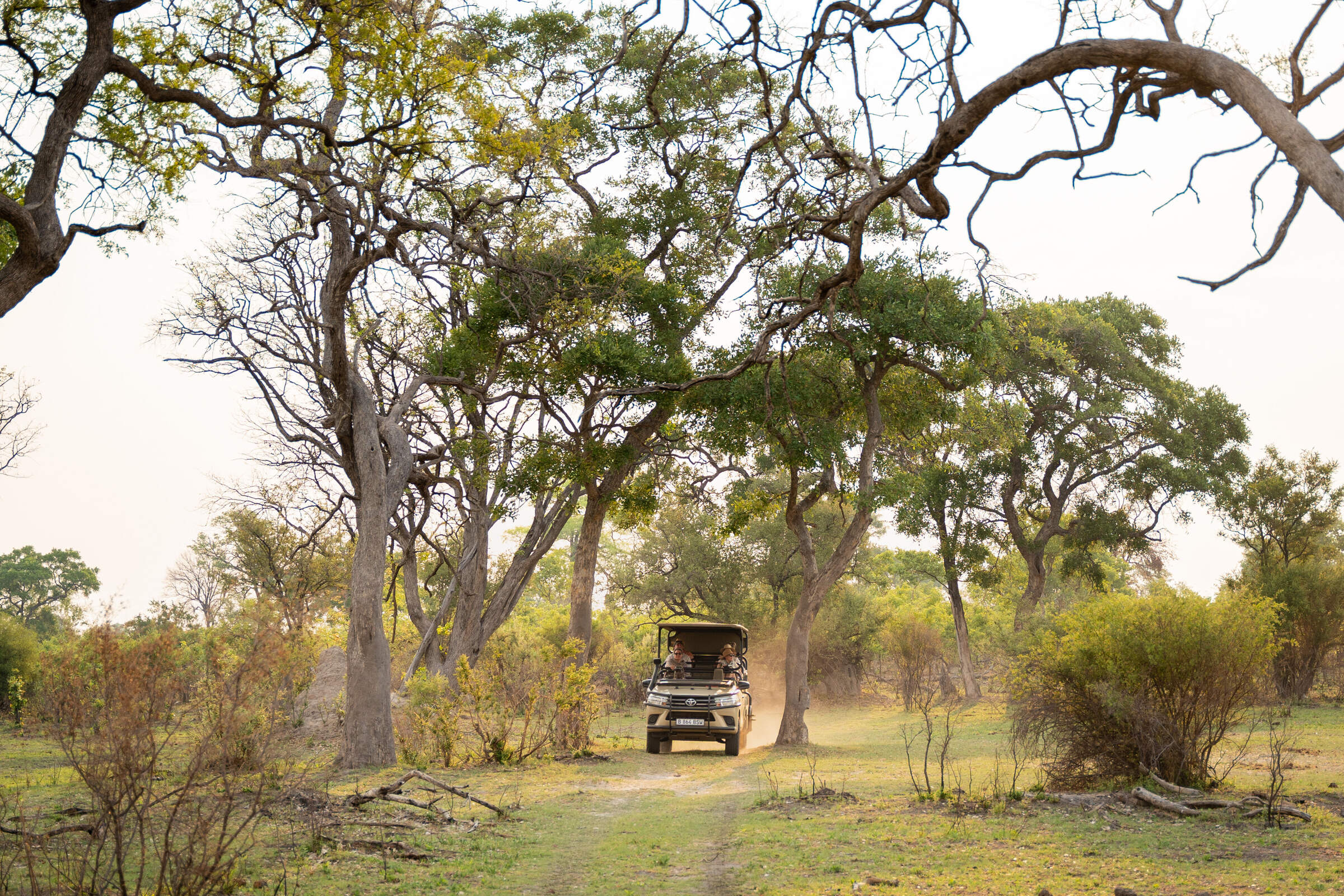
Karangoma
New for 2024, Karangoma is a classic, tented camp offering walking, canoeing and game drives, in partnership with the local Bukakwe San clan.
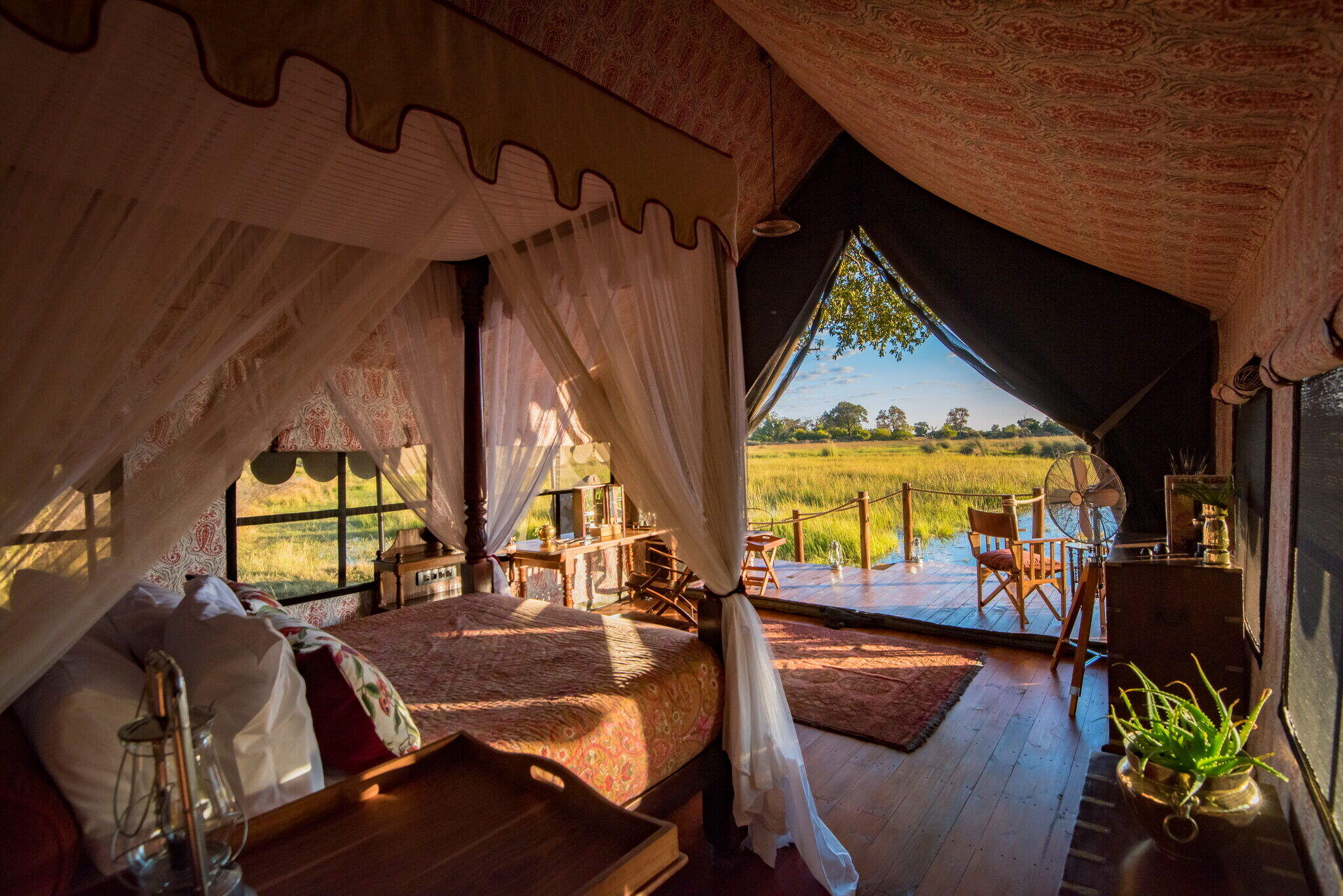
Duke’s Camp
On a remote island within a large concession, the romantic Duke's Camp and smaller Duke’s East are nestled among mature trees overlooking wildlife-rich plains and waterways of the Okavango.
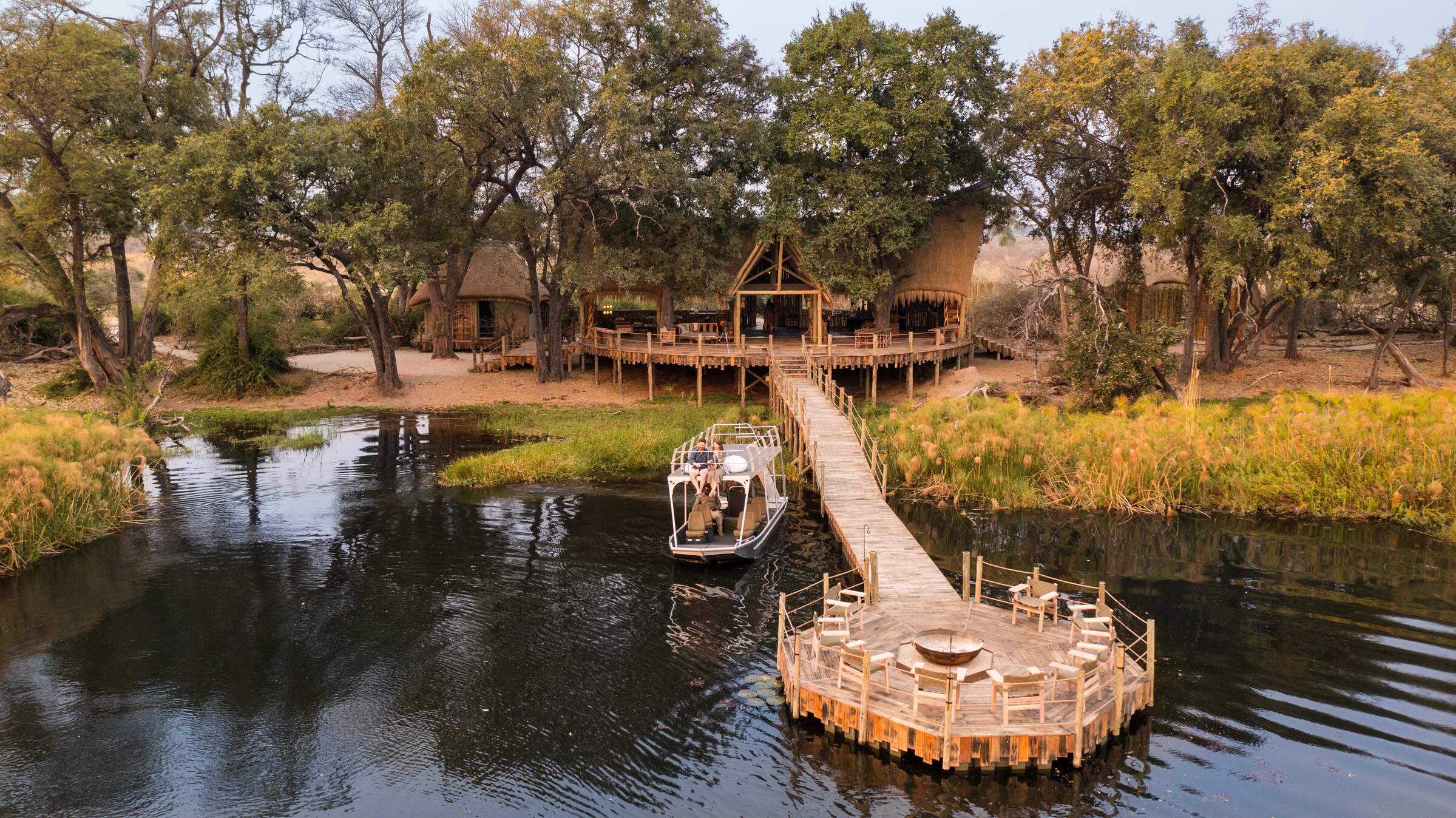
Sitatunga Island Camp
Tucked away in a pristine corner of the Okavango Delta, the exclusive Sitatunga Private Island is a water-based camp offering boating, mokoro trips and fishing.
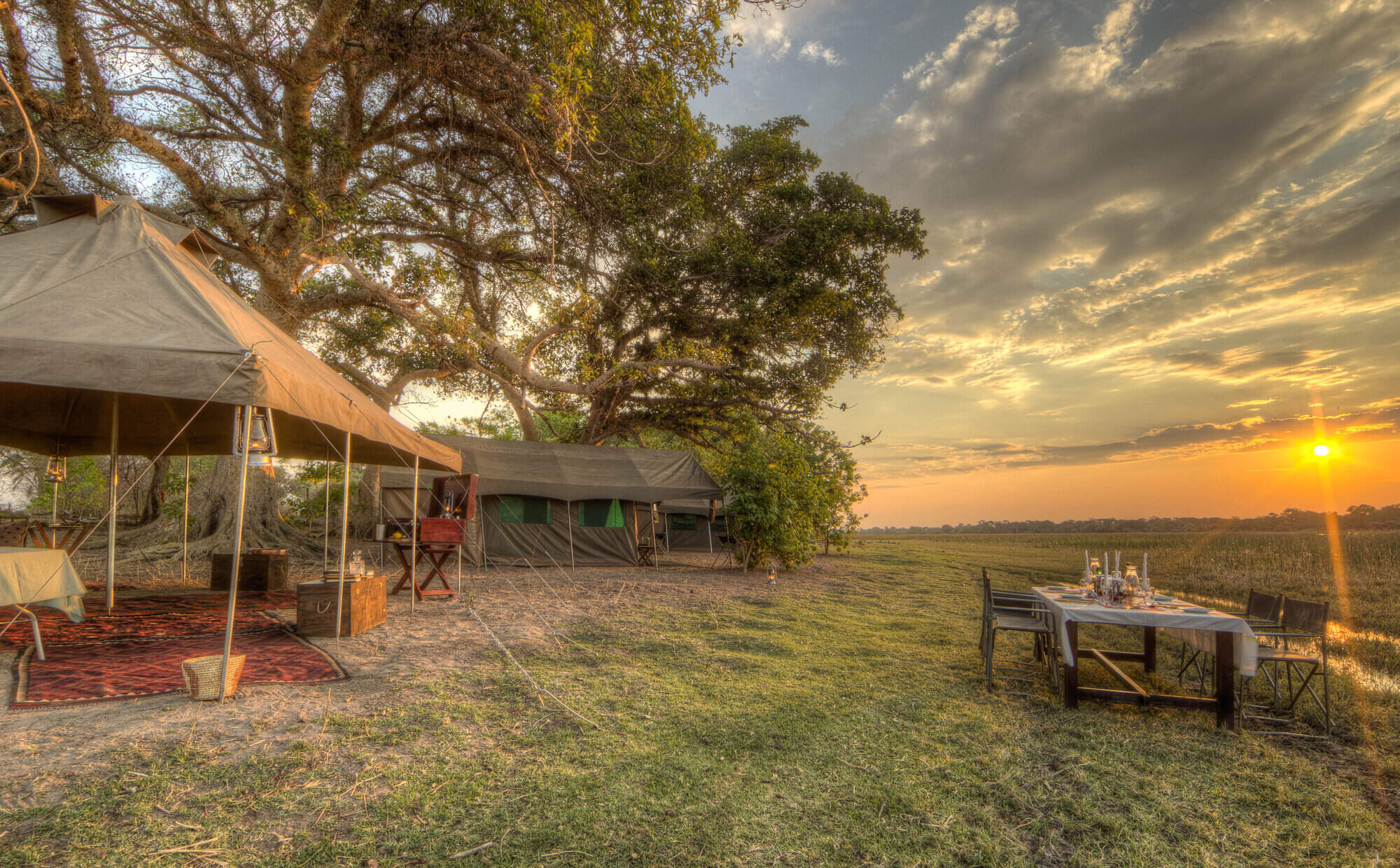
Okavango Walking Safari
The Okavango Delta Walking Safari camps in a secluded Okavango Delta Reserve where there are few roads; the ideal location for a walking trail led by an expert guide.
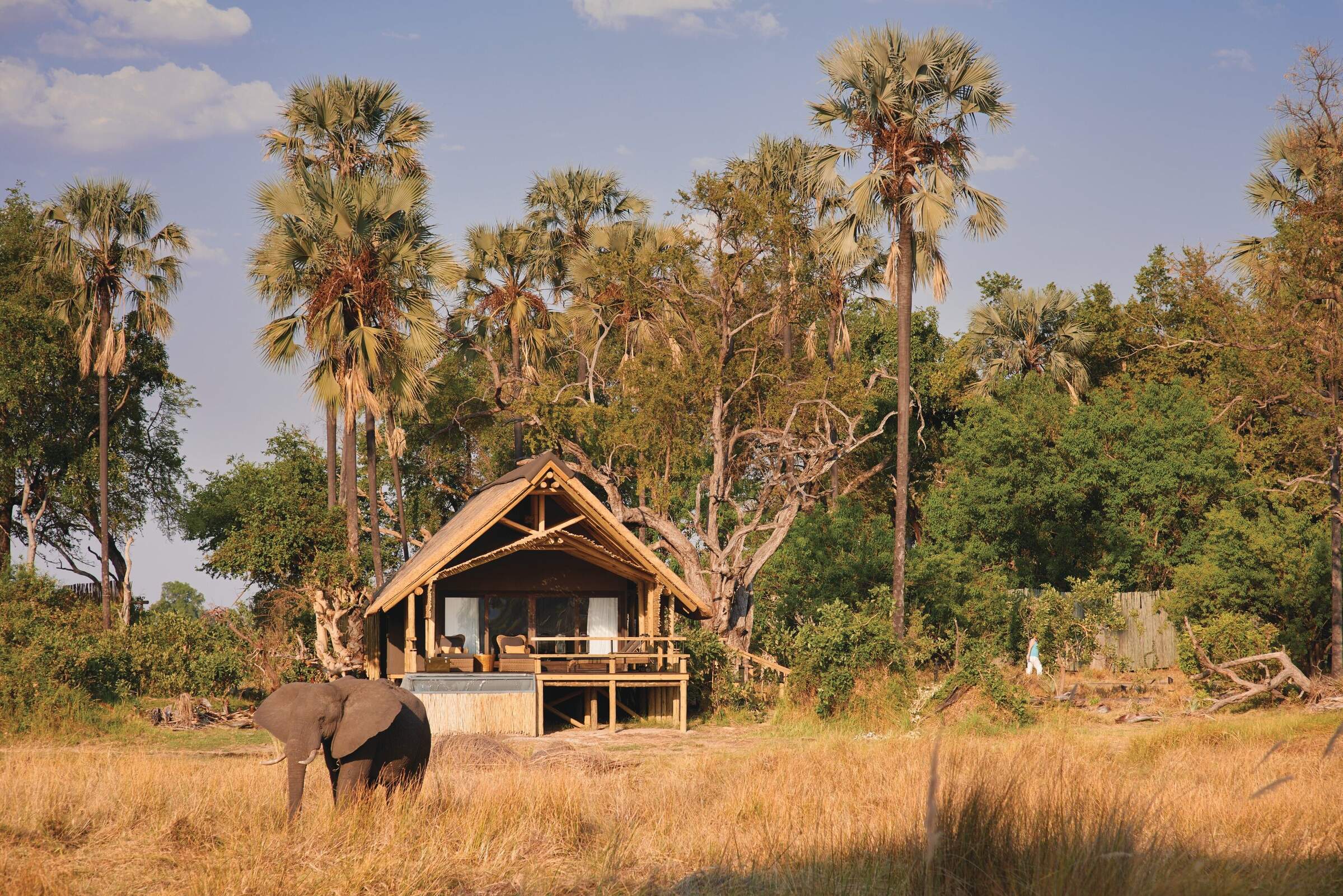
Eagle Island Lodge
Eagle Island Lodge is a luxurious camp with international-style facilities including air conditioning and intercom in each room; offering water based activities in the Okavango Delta.
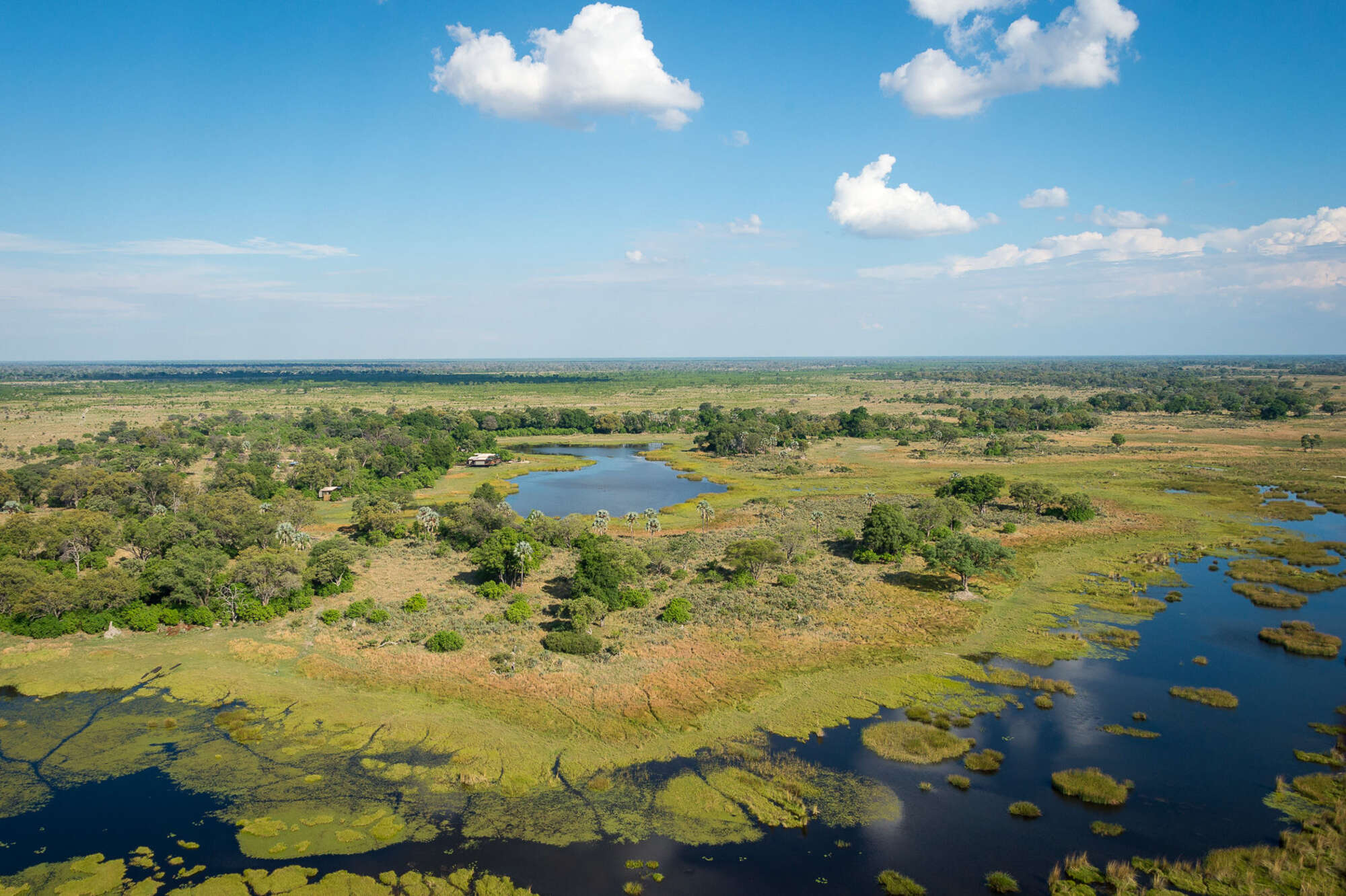
Qorokwe Camp
Luxurious and contemporary, the relatively new Qorokwe Camp is a gem in the Okavango Delta, offering land- and occasionally water-based activities in a prime wildlife area.
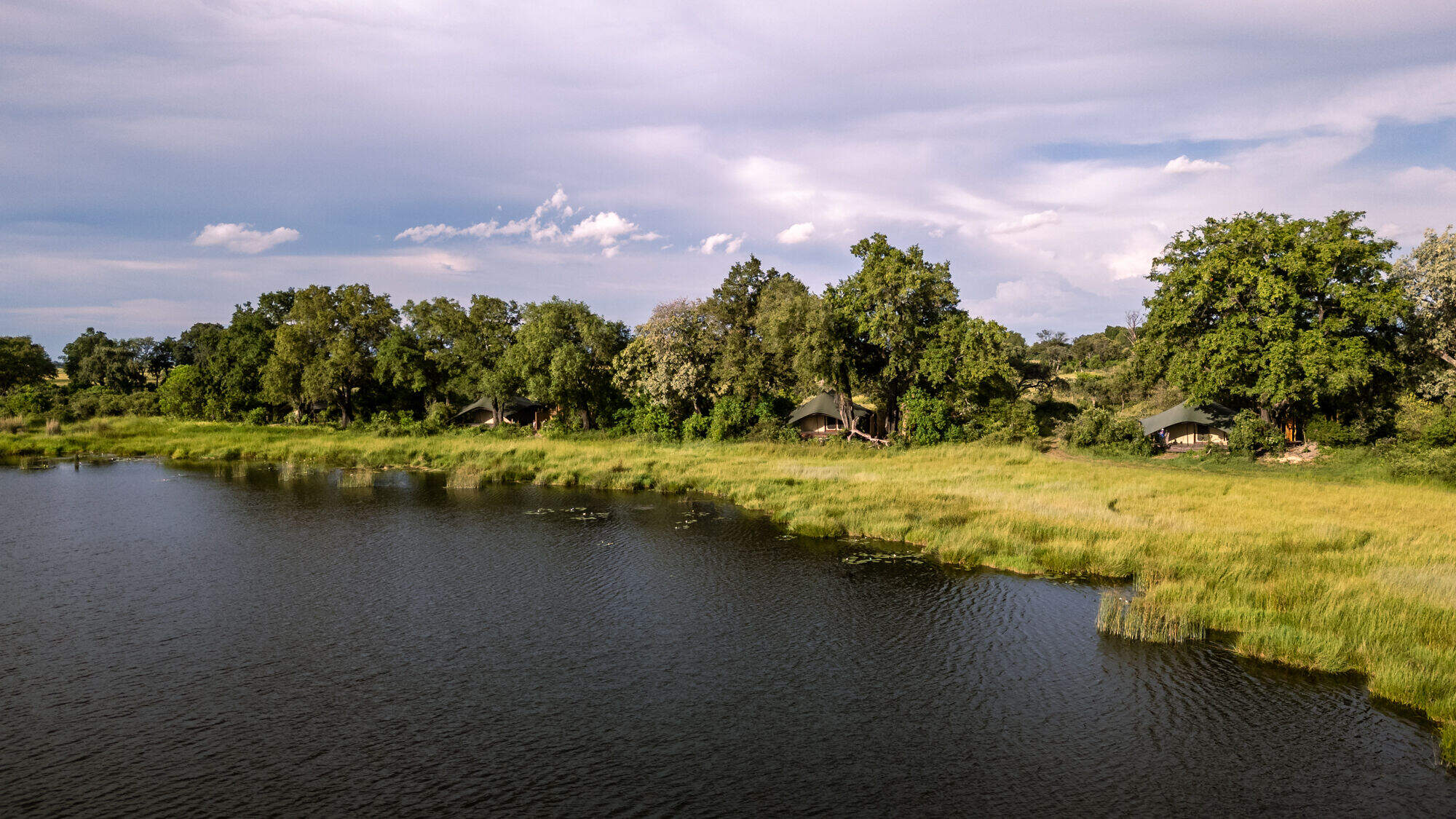
Maxa
Overlooking the permanent Maxa Lagoon, Maxa has a range of activities on offer, combining understated luxury with comfort in a remote location.
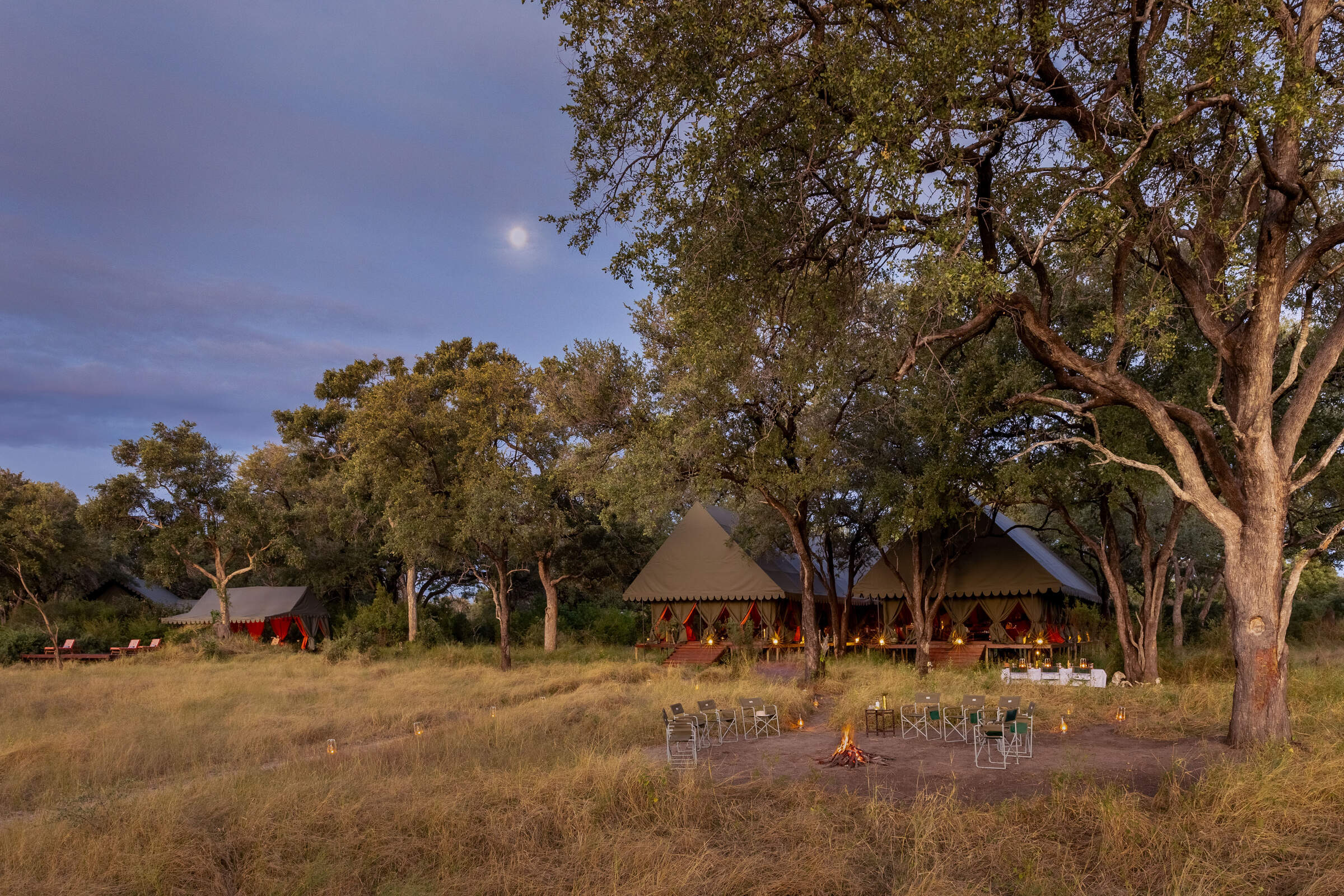
Mbamba
Deep within the northern Okavango, the classically styled Mbamba is located in the same wildlife-rich private concession as its sister camp Dukes.
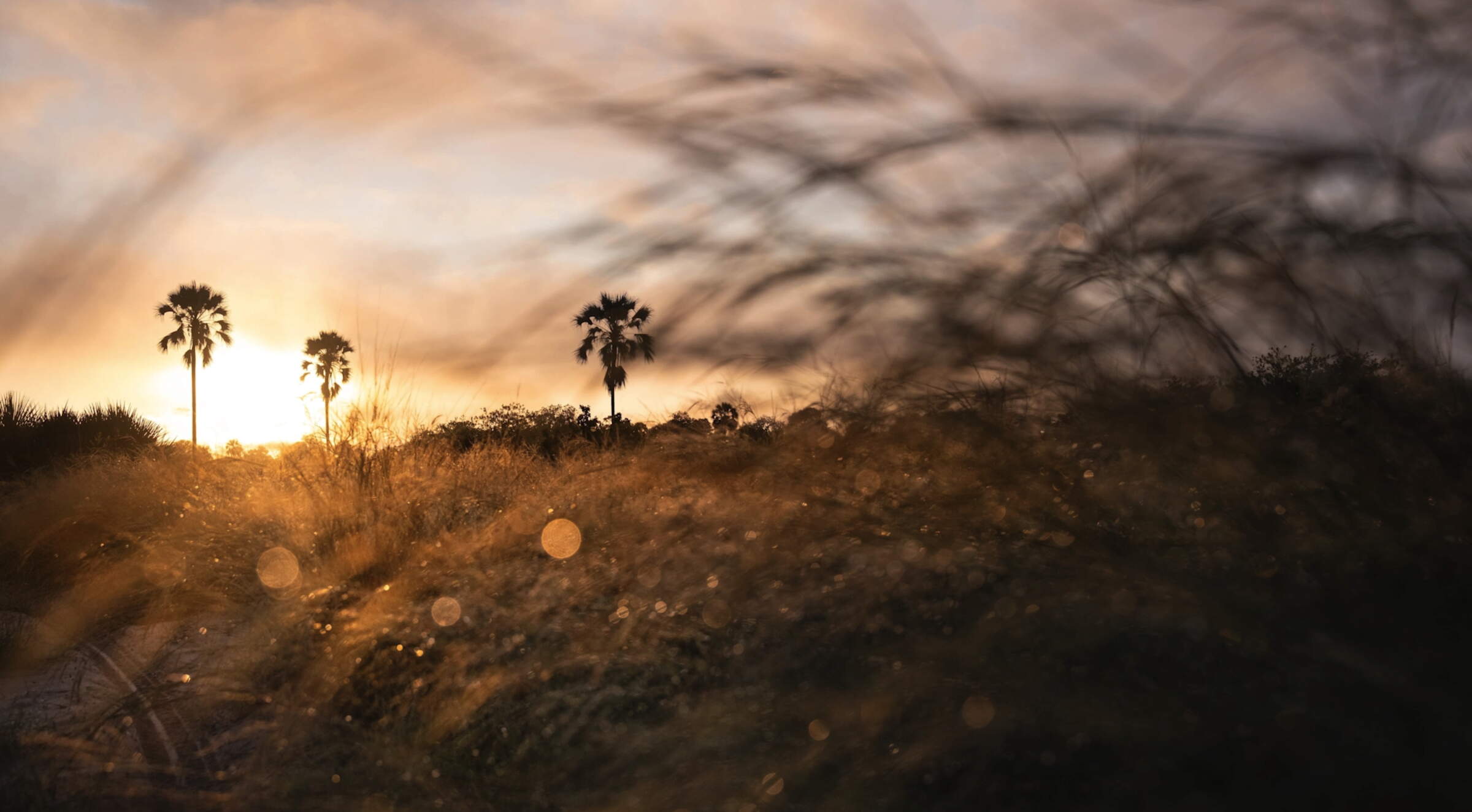
Singita Elela
Singita Elela is an exclusive safari camp on the western side of the Botswana's Okavango Delta - offering superb wildlife and water based opportunities depending on the seasonality.
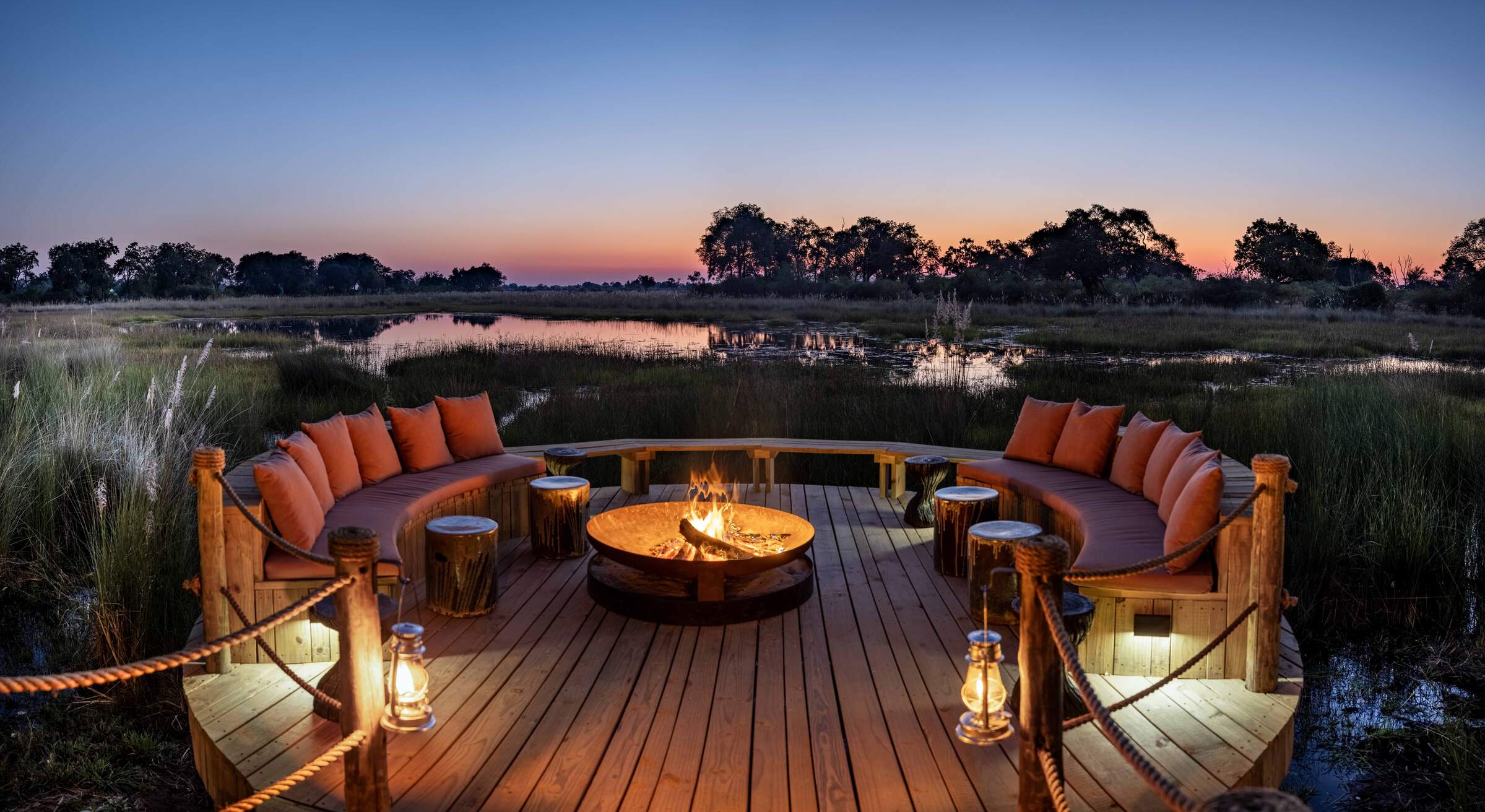
North Island Okavango
Deep in quintessentially “Okavango” territory, between deep-water and dry-land habitats, North Island focuses on a luxury safari experience with very good wildlife viewing opportunities.
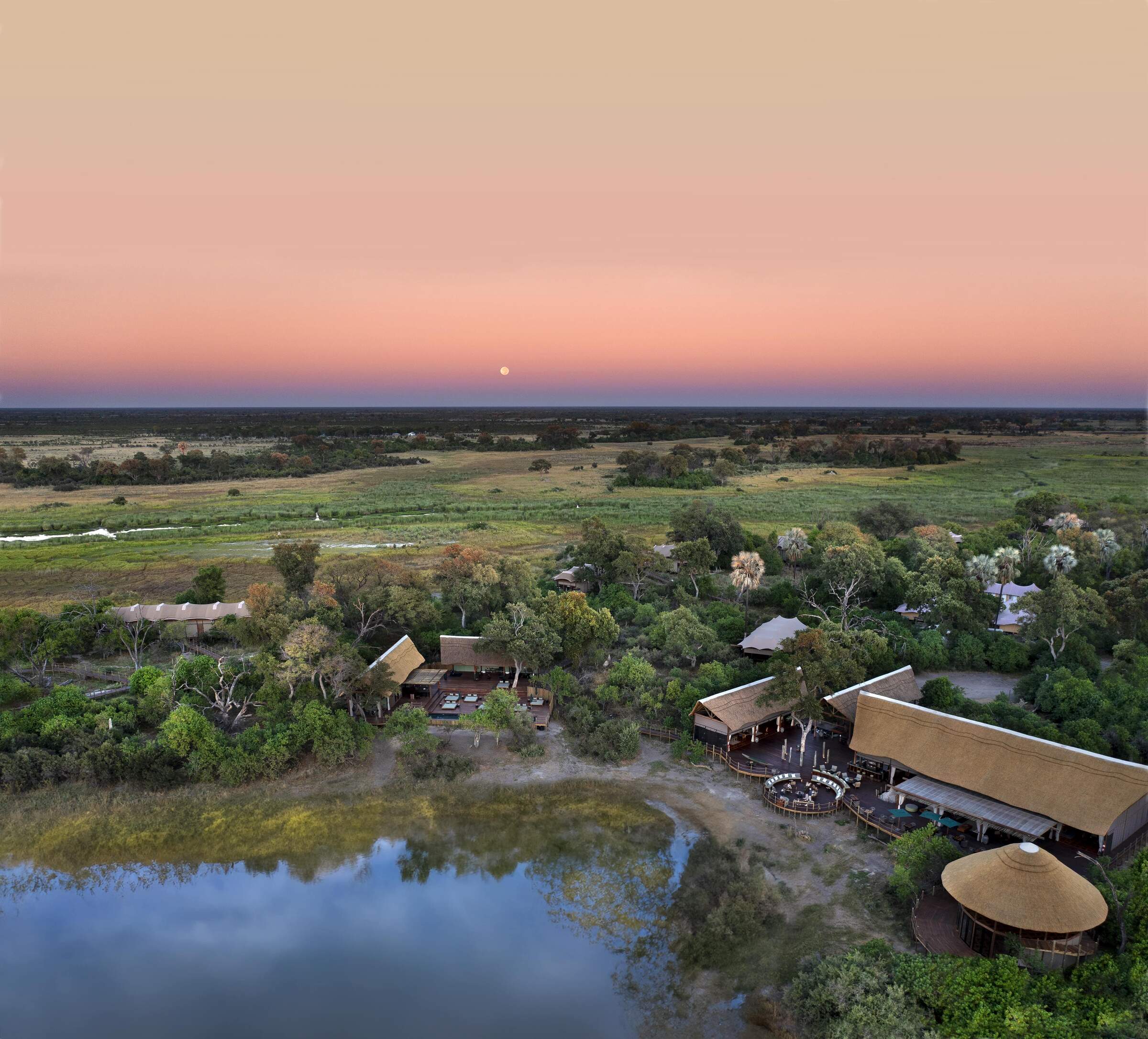
Atzaro Okavango
With a high level of tasteful luxury promised at Atzaro, we think it will be best suited to travellers seeking a touch of pampering alongside their safari.
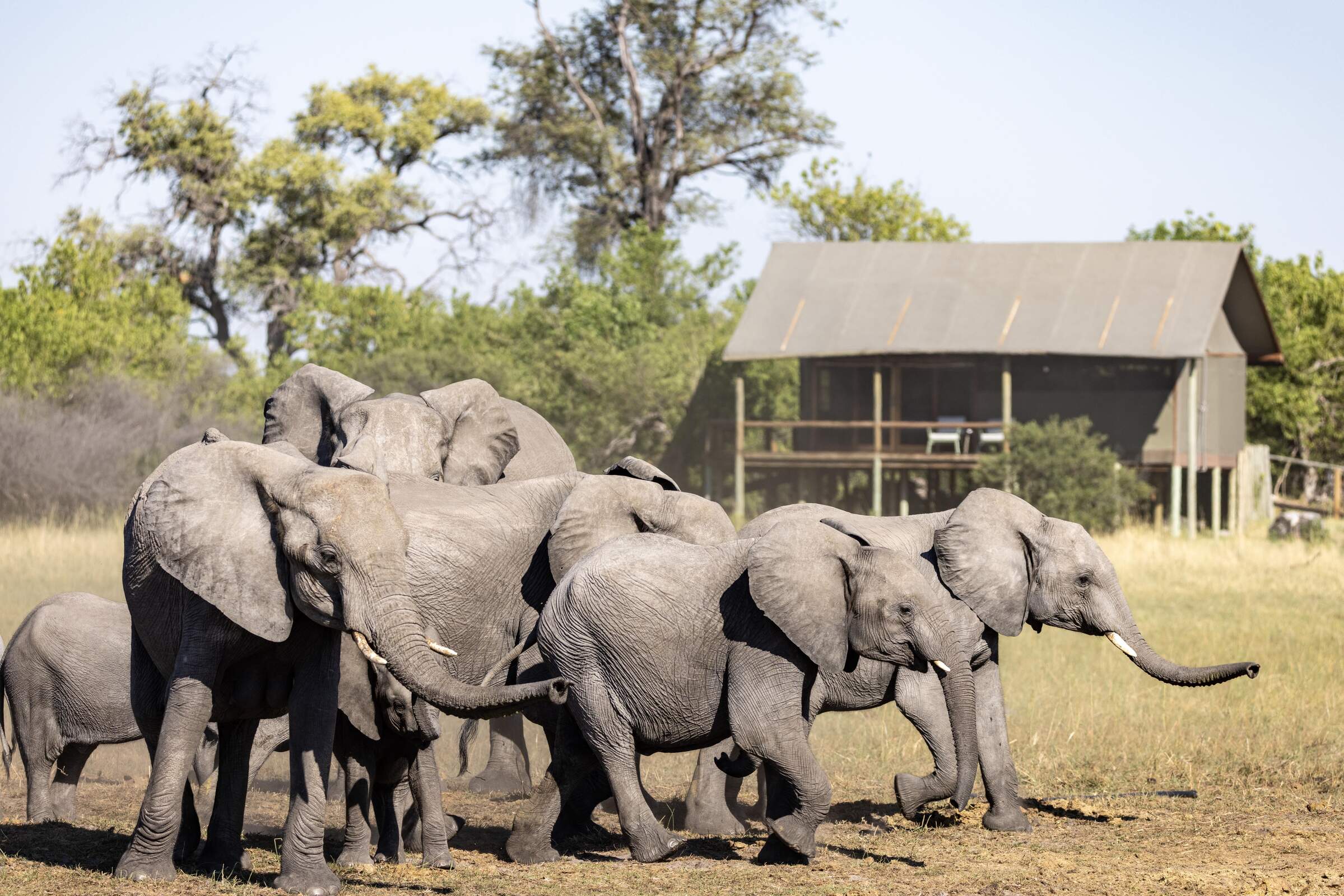
Mokolwane
Deep in the heart of the Okavango, the simple Mokolwane focuses on wildlife viewing in a large, untouched area.
When to go to Okavango Delta Safari Reserves
Our month by month guide: What it's like to visit Little Vumbura in Okavango Delta Safari Reserves
Jan
Feb
Mar
Apr
May
Jun
Jul
Aug
Sep
Oct
Nov
Dec
Okavango Delta Safari Reserves in January
January marks the peak of the rainy season in the Okavango Delta. Evening rains are often short but heavy, accompanied by occasional dramatic thunderstorms. Temperatures remain high, although cooler than the preceding months of October to December. Wildlife can be harder to spot as animals spread out across the lush floodplains.
This month is a birdwatcher’s paradise, with migratory species in abundance over flooded areas. Rising water levels in parts of the Delta make mokoro safaris possible, offering serene and immersive experiences. The vibrant greenery and dramatic skies provide stunning opportunities for photography. With relatively low rates and fewer visitors, January is ideal for those seeking a quieter, budget-conscious Botswana safari.
- Warm temperatures with frequent evening showers
- Birdlife at its most spectacular in the Delta
- Wildlife dispersed, but insects and smaller creatures abound
- Excellent availability in Delta lodges and camps
Our view
A good time to visit, with pros & cons
Weather in January
Okavango Delta Safari Reserves in February
February mirrors January’s weather patterns, with heavy rains and slightly cooler temperatures. The Delta’s landscape is at its greenest and teeming with life. Smaller animals, insects, and vibrant birdlife dominate, as many species raise their young. The rains create temporary pools and waterholes, further dispersing larger game, while thick vegetation and tall grass adds to the challenge of spotting big wildlife.
However, Moremi Game Reserve and select areas of the Delta still offer excellent game viewing opportunities. Rising water levels enhance water activities, with boat safaris providing unique access to the Delta’s watery beauty. February is particularly rewarding for photographers seeking lush landscapes and dramatic skies and birdwatchers, with many migratory species present.
- Warm with occasional thunderstorms
- Many animals with young in the Delta
- Big game dispersed throughout wetlands
- Big game dispersed, but viewing improves in drier areas
- Lower visitor numbers and great lodge availability
Our view
This is not a great time to visit
Weather in February
Okavango Delta Safari Reserves in March
March marks the gradual end of the main rainy season in the Okavango Delta. Sunny days become more frequent, with occasional afternoon thunderstorms. The Delta remains lush and vibrant, with wildlife activity increasing as animals finish raising their young and begin congregating around permanent water sources.
Rising water levels make boat safaris a highlight, offering intimate access to the Delta’s waterways. Birdwatching is excellent, with both resident and migratory species thriving. With fewer visitors, March offers a quieter, more personal safari experience.
- Rains taper off but temperatures remain warm
- Occasional small thunderstorms in Delta
- Wildlife begins congregating around water sources
- Ideal conditions for boat safaris
- Few tourists and attractive rates at camps
Our view
A good time to visit, with pros & cons
Weather in March
Okavango Delta Safari Reserves in April
April brings clearer skies to the Okavango Delta, with the landscape remaining green and lush. Night temperatures begin to drop, especially in the southern Delta. The annual floods from Angola start to flow through the northern Delta, filling channels and lagoons, creating ideal conditions for water-based activities like boat safaris.
Wildlife viewing improves as vegetation thins and predator activity increases with cooler evenings. Moremi Game Reserve and the private concessions offer rewarding game drives, and walking safaris on the larger islands, such as Chief’s Island, become popular during this time. Birdwatching remains excellent, with many migratory species still present. April’s combination of pleasant weather, wildlife activity, and relatively low rates makes it a rewarding time to visit.
- Cooler evenings and occasional light showers
- Floodwaters begin to fill Delta channels
- Predator-prey interactions increase
- Ideal for walking safaris and boat trips
- Popular shoulder season, rates fairly low
Our view
A good time to visit, with pros & cons
Weather in April
Okavango Delta Safari Reserves in May
May is a popular time to visit the Okavango Delta, marking the last month of the shoulder season. The annual floods continue to spread through the Delta, transforming the landscape. Cooler mornings and evenings encourage predator activity, while thinning vegetation makes wildlife spotting easier, though some tall grasses may still obstruct views.
May offers excellent photographic opportunities with clear, crisp air. It's a favourite time for many visitors, combining good wildlife sightings with pleasant weather. Camp bookings throughout the Delta fill up quickly during this period.
This is a perfect month for scenic flights, offering breathtaking views of the advancing floodwaters. Mokoro trips through the Delta’s tranquil waterways provide a unique perspective on the environment. Camps start to fill quickly as the Delta’s combination of pleasant weather and excellent wildlife sightings makes it a favourite among safari-goers.
- Cool mornings and evenings with little rain
- Improved game viewing as Delta grasses thin
- Predator activity increasing in drier areas
- Scenic flights and water activities highly recommended
- Last month of shoulder season for camps
Our view
A very good time to visit
Weather in May
Okavango Delta Safari Reserves in June
June signals the start of the dry season in the Okavango Delta. Days are warm, with clear skies, while mornings and evenings can be cold, occasionally reaching freezing temperatures. The annual floods reach their peak, creating spectacular conditions for water-based activities like boat safaris along the Khwai River and in private concessions.
Wildlife concentrates around permanent water sources as surface water dries up, improving game viewing. The thinning vegetation and crisp, clear air make June perfect for photography. High demand for camp bookings reflects its popularity, as this month combines great game viewing and pleasant weather.
- Warm days, cold mornings and nights
- Peak floodwaters make boat safaris unforgettable
- Wildlife congregates around permanent water sources
- Excellent conditions for photography
- High demand for camps and lodges
Our view
Fantastic: the very best time to visit
Weather in June
Okavango Delta Safari Reserves in July
July offers cool mornings and evenings with warm, sunny days, making it ideal for wildlife viewing. The floodwaters remain at their peak, providing excellent opportunities for boat safaris. Vegetation continues to thin, enhancing visibility on game drives in Moremi Game Reserve and the Okavango’s private reserves.
Large herds of elephants and buffalo are common sights as they gather near water sources. Predator sightings, including lions and leopards, increase as prey concentrates. Birdwatching is rewarding, and the crisp winter air creates stunning photographic conditions. July is one of the most popular months to visit, with many lodges fully booked well in advance.
- Comfortable days, cold mornings and nights
- Excellent game viewing and predator activity
- Moremi and Khwai areas become busy
- Private concessions offer exclusivity
- High season rates; advance bookings essential
Our view
Fantastic: the very best time to visit
Weather in July
Okavango Delta Safari Reserves in August
August remains a highly sought-after month for visiting the Okavango Delta. Nights are cool, while daytime temperatures rise gradually. Wildlife viewing is exceptional as animals concentrate near water sources, while the Delta’s floods are typically at their peak, offering picturesque settings for excellent boat safaris.
Walking safaris and game drives in areas like Moremi Game Reserve and Chief’s Island are particularly rewarding. Large herds of elephants and buffalo are common sights, and predator activity is high, with increased chances of seeing lions, leopards, and wild dogs hunting. The clear skies and lack of humidity create excellent stargazing conditions. With many travellers visiting during European and North American holidays, lodge availability can be challenging.
- Dry, warm days and cool nights in the Delta
- Fantastic wildlife viewing near water sources
- Excellent opportunities for game drives and boat safaris
- Cloudless skies, spectacular stargazing
- High demand for accommodation – book early
Our view
Fantastic: the very best time to visit
Weather in August
Okavango Delta Safari Reserves in September
September is a favourite for many safari-goers in the Okavango Delta. Daytime temperatures rise, but nights remain cool. The landscape transforms as greenery fades, and hazy conditions create dramatic sunsets. Wildlife viewing peaks as animals cluster around permanent water sources, with especially large numbers of elephants and buffalo. This concentration of prey attracts predators, increasing chances of witnessing exciting hunts.
The return of migratory birds enhances birdwatching. Water levels begin to recede, but boat cruises are still possible. Dusty conditions may challenge photographers, but the stunning landscapes and wildlife action more than make up for it.
- Warm days, cool nights in the Delta
- Prime month for Okavango wildlife viewing
- Migratory birds return, enriching birdwatching
- Spectacular sunsets and dramatic scenery
- High season rates, many Delta camps full
Our view
Fantastic: the very best time to visit
Weather in September
Okavango Delta Safari Reserves in October
October is the hottest and driest month in the Okavango Delta. Wildlife concentrates around the last remaining water sources, creating some of the most dramatic game viewing opportunities of the year. Predator-prey interactions are frequent and visibility is excellent, making for thrilling safaris.
Walking safaris are particularly rewarding, especially on smaller islands, but early starts are essential to avoid the midday heat. Towards the end of the month, the first rains may bring relief and begin rejuvenating the parched landscape. Despite the heat, October offers excellent big-game viewing and dramatic photographic moments of animal interactions.
- Hot days, with late-month chances of rain
- Outstanding big-game viewing near water sources
- Water activities limited as floods recede
- Walking safaris provide unique experiences
- Final month of the peak safari season
Our view
Fantastic: the very best time to visit
Weather in October
Okavango Delta Safari Reserves in November
November marks the start of the green season in the Delta. Rising humidity and temperatures often lead to the first heavy rains; these are typically short, heavy showers in the late afternoon or night, creating spectacular scenes and bringing a flush of green to the parched landscape. Wildlife begins to disperse as waterholes refill, but game drives still offer rewarding sightings.
Water levels may be low, limiting boat activities, but November is exceptional for birdwatching, with the arrival of many migratory species. Scenic flights highlight the contrast between dry and wet areas. The first two weeks are popular for travellers seeking good game viewing at lower rates as the Delta transitions into its shoulder season.
- Hot, humid days in the Delta
- Dramatic rain showers , increasing as month progresses
- Migratory birds arrive in abundance
- Wildlife watching good, but less predictable
- Shoulder season offers mid-range rates
Our view
A good time to visit, with pros & cons
Weather in November
Okavango Delta Safari Reserves in December
December sees the rainy season in full swing across the Okavango Delta, bringing some respite from high temperatures. Game viewing becomes more challenging as wildlife disperses, but great sightings can still be had. The landscape transforms dramatically, with lush vegetation sprouting across the Delta. This period is excellent for birdwatching, with numerous migratory species present.
Water levels begin to rise, gradually improving conditions for boat safaris. The green season offers unique photographic opportunities, with dramatic skies and newborn animals. December is ideal for visitors seeking a more intimate Delta experience, with fewer tourists and lower rates at many camps and lodges. The combination of wildlife, birdlife, and scenic beauty makes it a rewarding time to visit.
- Warm temperatures
- High chance of rain in short, heavy storms
- Wildlife more dispersed across Delta
- Game viewing more challenging in wetlands
- Low-season rates and fewer visitors in most Delta camps
Our view
A good time to visit, with pros & cons
Weather in December

Looking for inspiration on where to travel next?
Visit our trip chooser to explore your options and find inspiration for your perfect African adventure
Inspire me